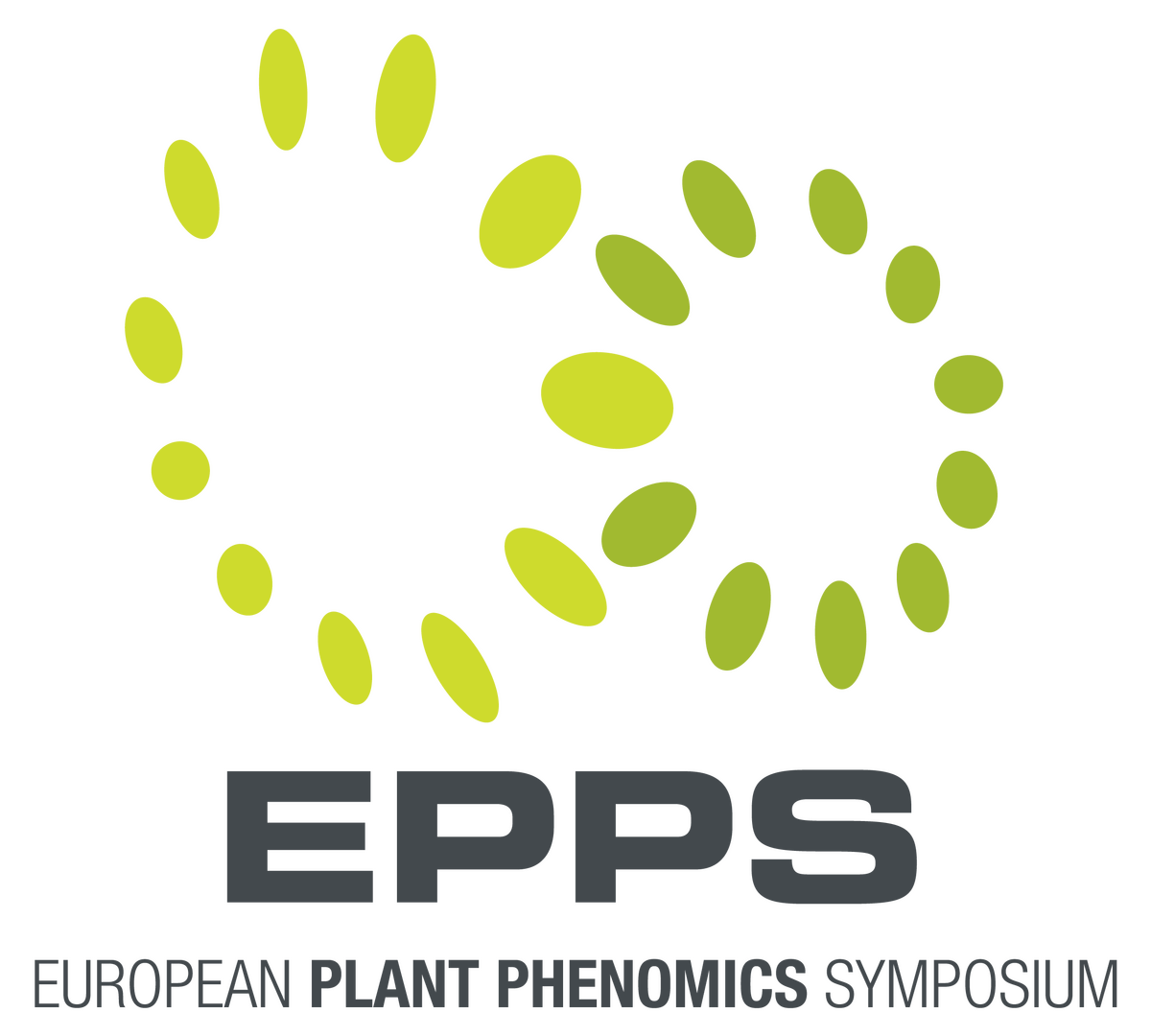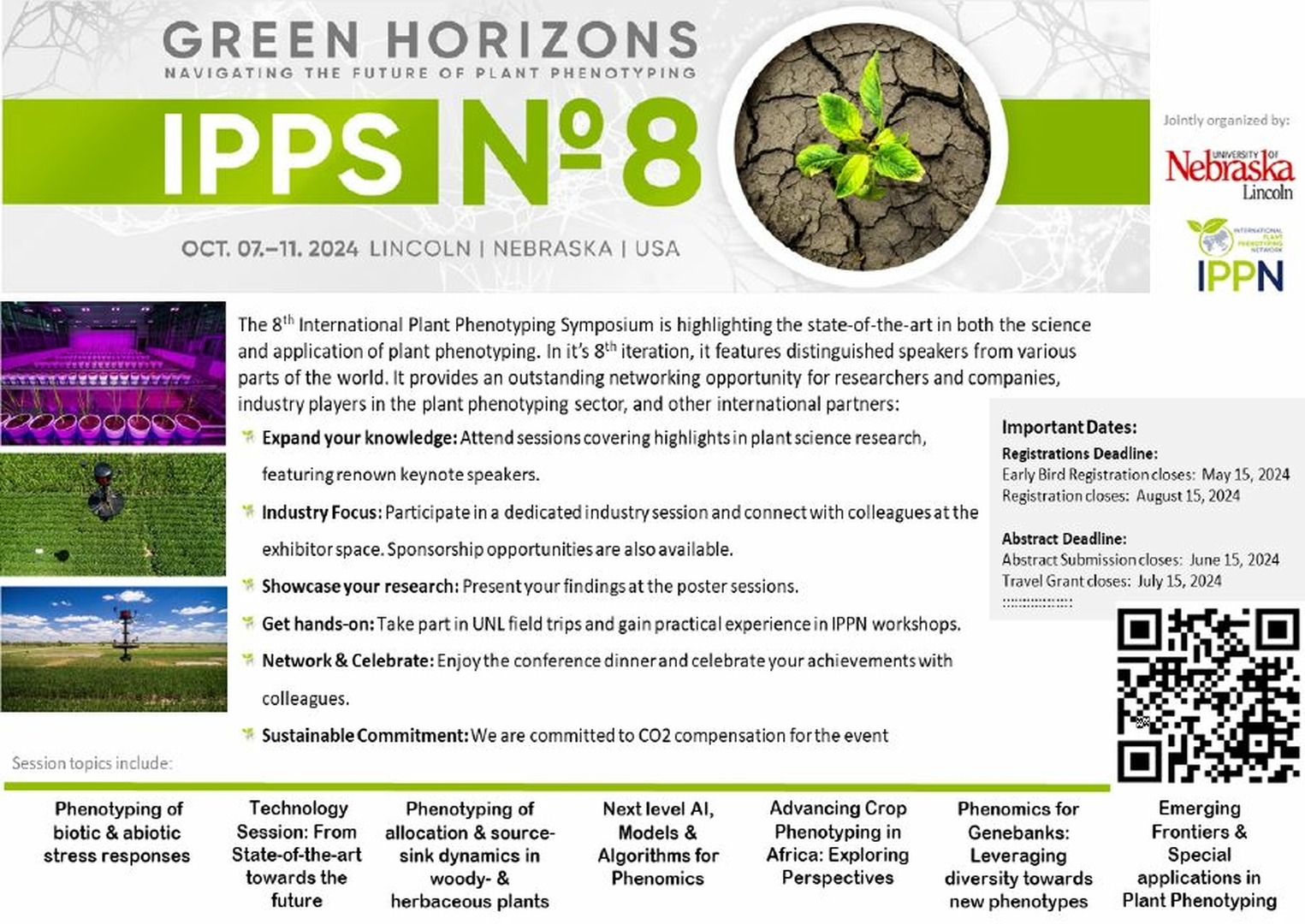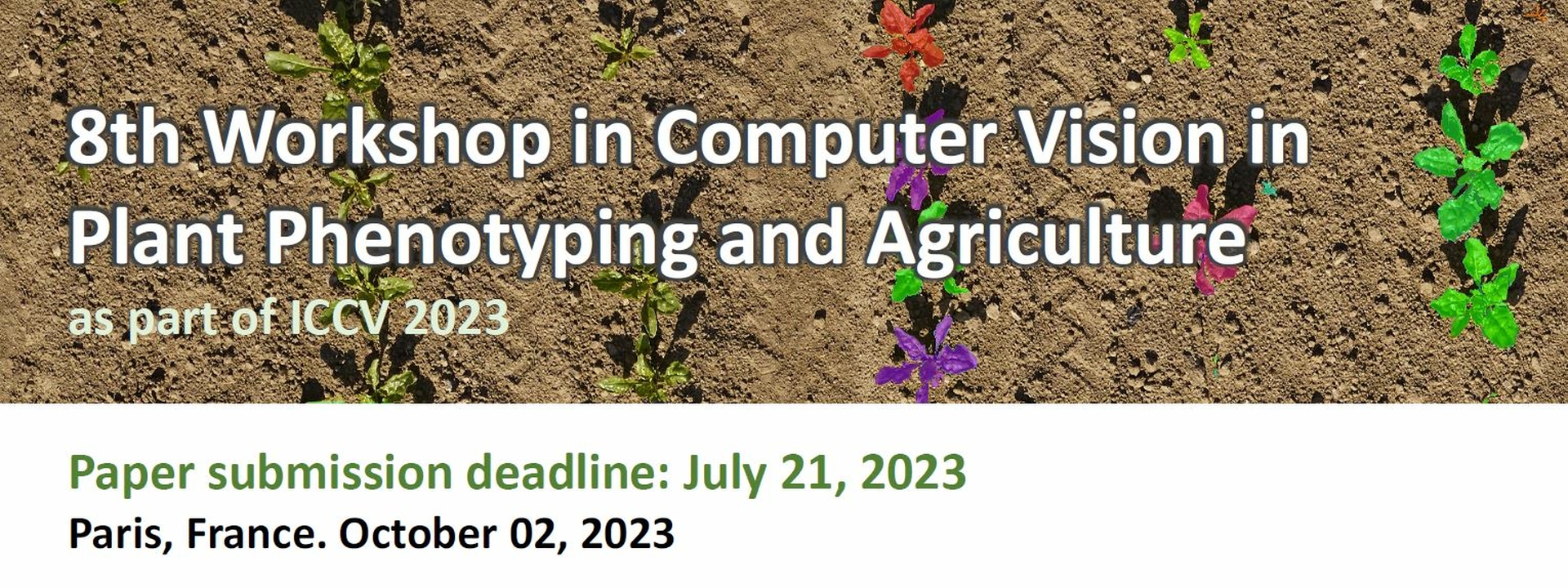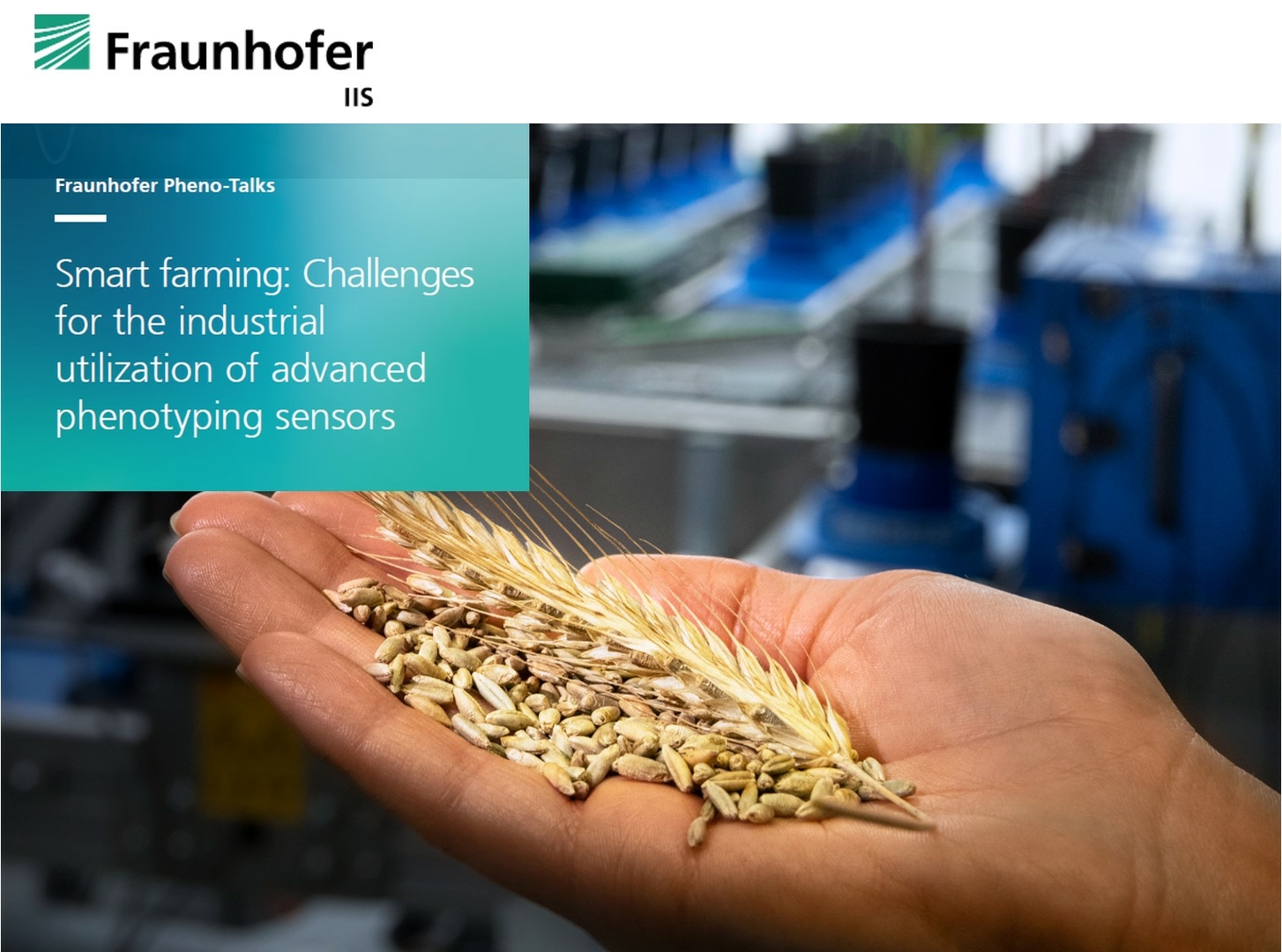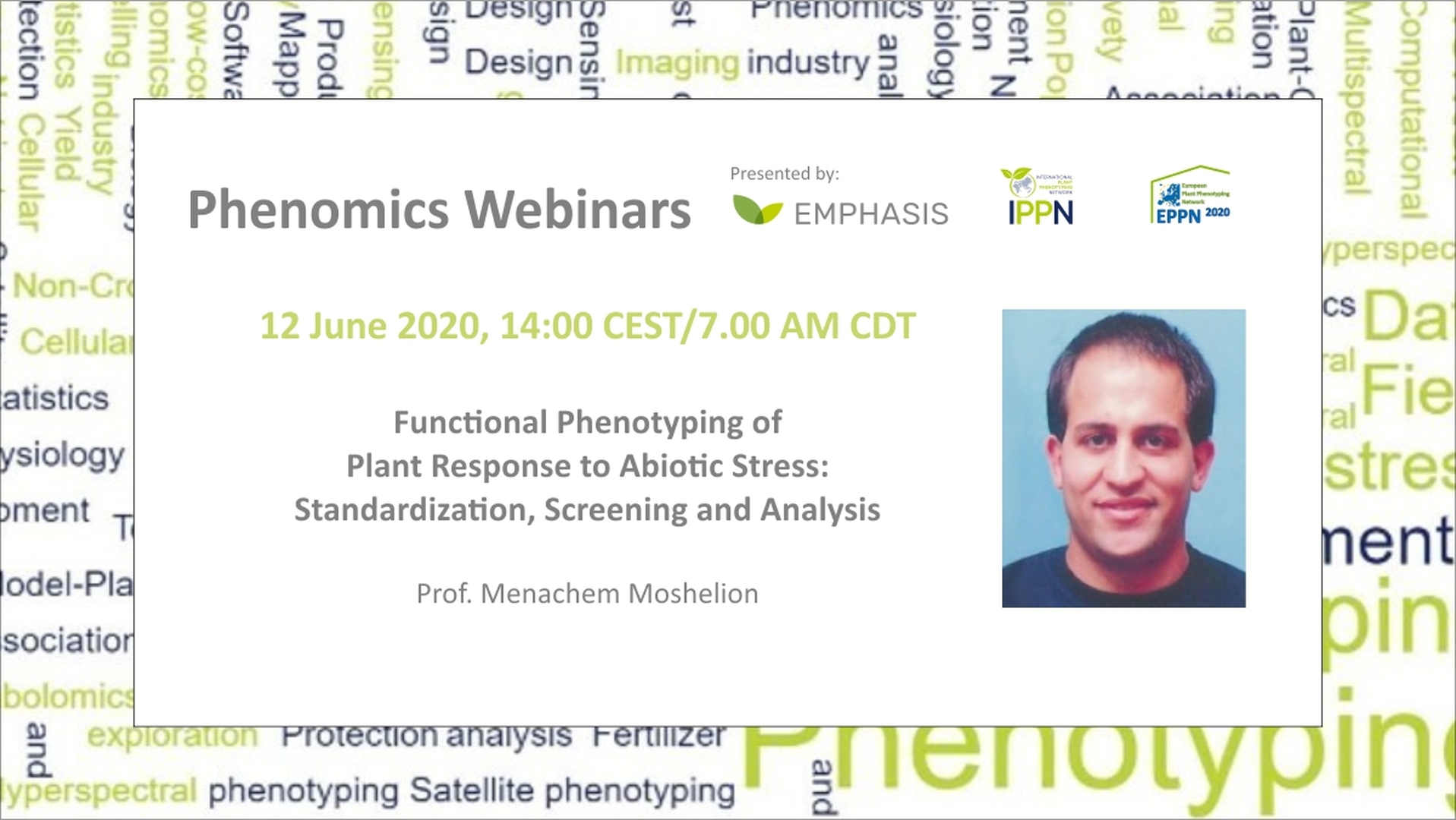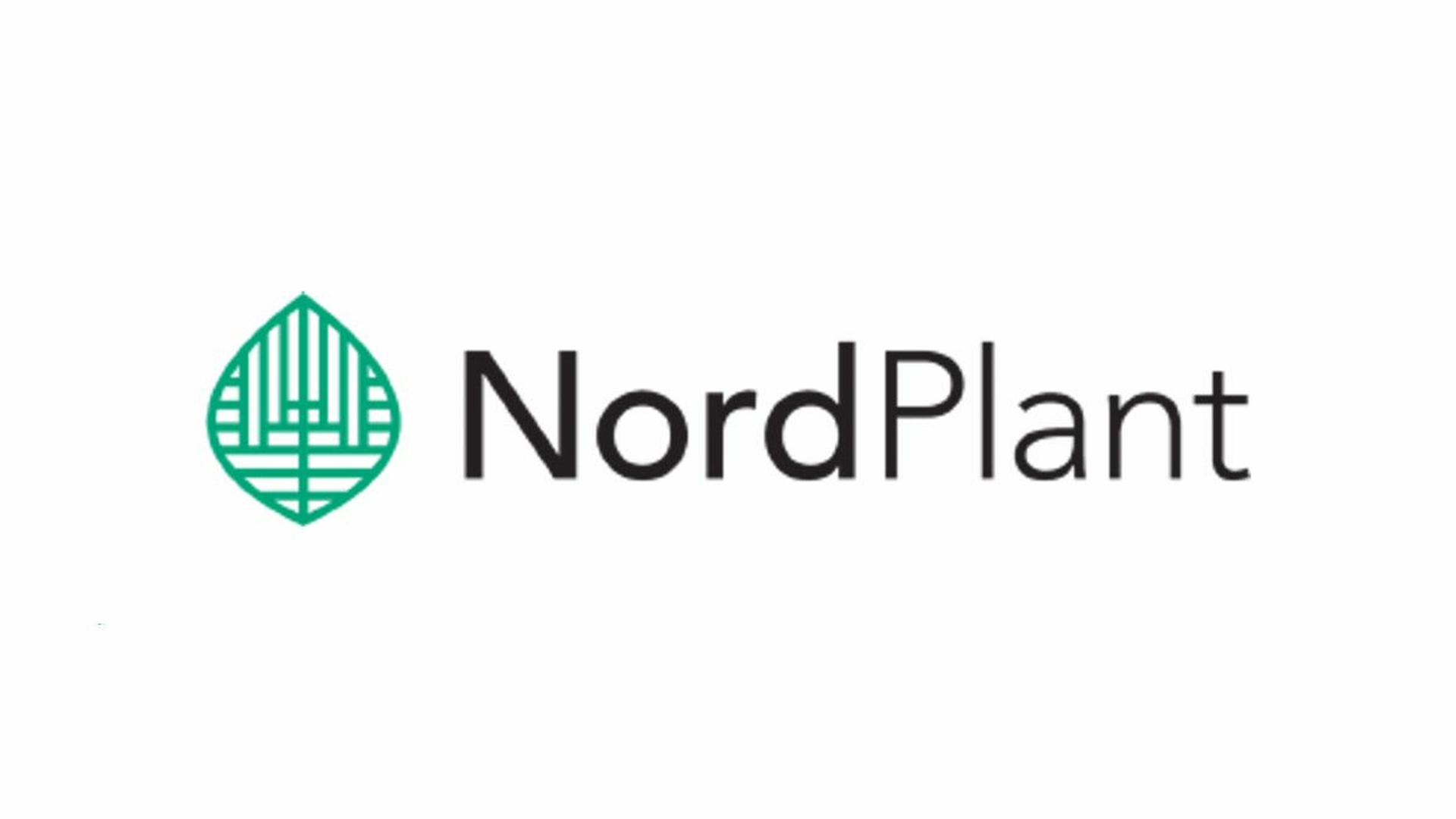University of Wyoming Launches Controlled Environment Agriculture Network
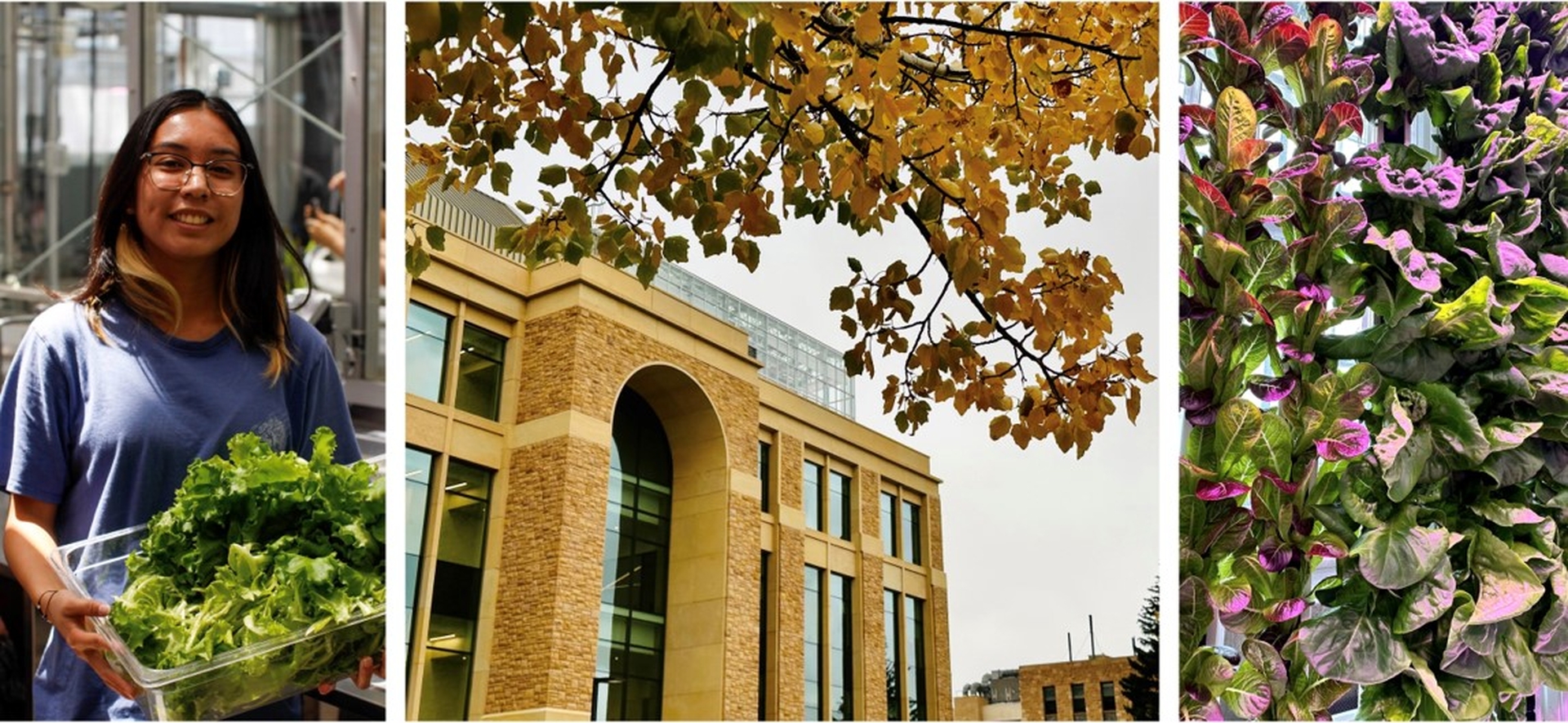
The UW has launched the Controlled Environment Agriculture (CEA) Network, a major new initiative aimed at accelerating workforce development, research, and innovation in the rapidly growing CEA sector.
Press Release: AgResearch becomes a division of the newly established New Zealand Institute for Bioeconomy Science (Bioeconomy Science Institute)

From this date, AgResearch will operate as a division of the New Zealand Institute for Bioeconomy Science (Bioeconomy Science Institute).
DPPN-Access 2.0: Next call is open

"DPPN-ACCESS" offers access to phenotyping infrastructures of the Research Center Jülich (FZJ), the Leibniz Institute of Plant Genetics and Crop Plant Research (IPK) in Gatersleben and the Helmholtz Zentrum München (HMGU) to researchers from publicly funded research institutions in Germany.
Application Deadline 04.11.2025, 5:00 pm (German time)
EPPS2025: Apply for the training school on “Phenotyping Practice, Machine Learning and Industry Insights”
Wheat Initiative Highlights Importance of Global Collaboration at the 2025 MACS-G20 Meeting

From May 26 to 28, the G20 Meeting of Agricultural Chief Scientists (MACS-G20) took place in Polokwane, South Africa under the G20 presidency of South Africa. The Wheat Initiative (WI), as an initiative endorsed by the G20 Agricultural Ministers, was invited to present on the 27th of May, as it has emerged as a pivotal organisation in fostering international collaboration on wheat to address global food security challenges.
Shape the Future of Plant Phenomics – Join the Early Career Professionals Network's Forum!
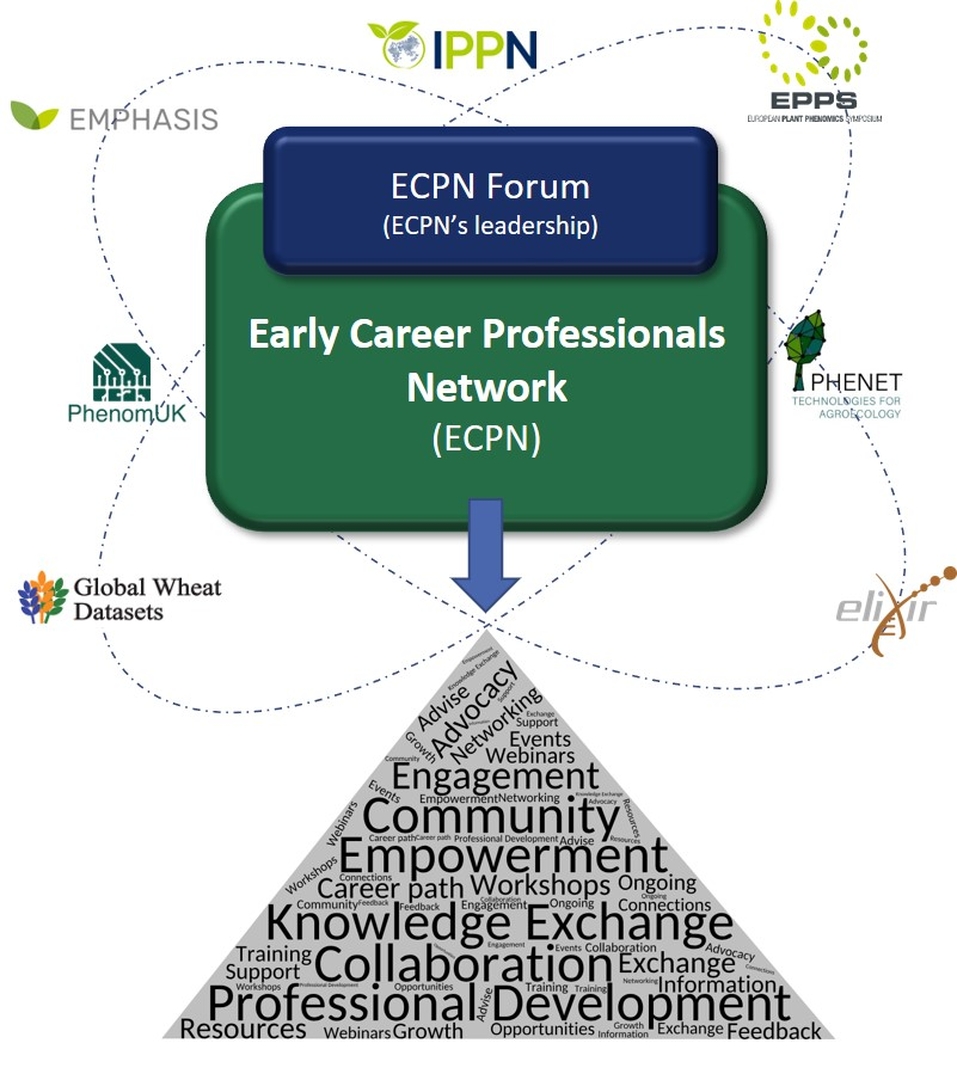
The EPPS Organizing Committee & IPPN are excited to announce the launch of a dedicated Early Career Professionals Network (ECPN) at the upcoming European Plant Phenomics Symposium (EPPS), 16 - 19 Sep this year in Bonn. We are seeking passionate & driven Early Career researchers & industry Professionals (ECPs) to form an inaugural ECPN Forum.
Call for Applications: Co-Host IPPS9 with IPPN in Africa
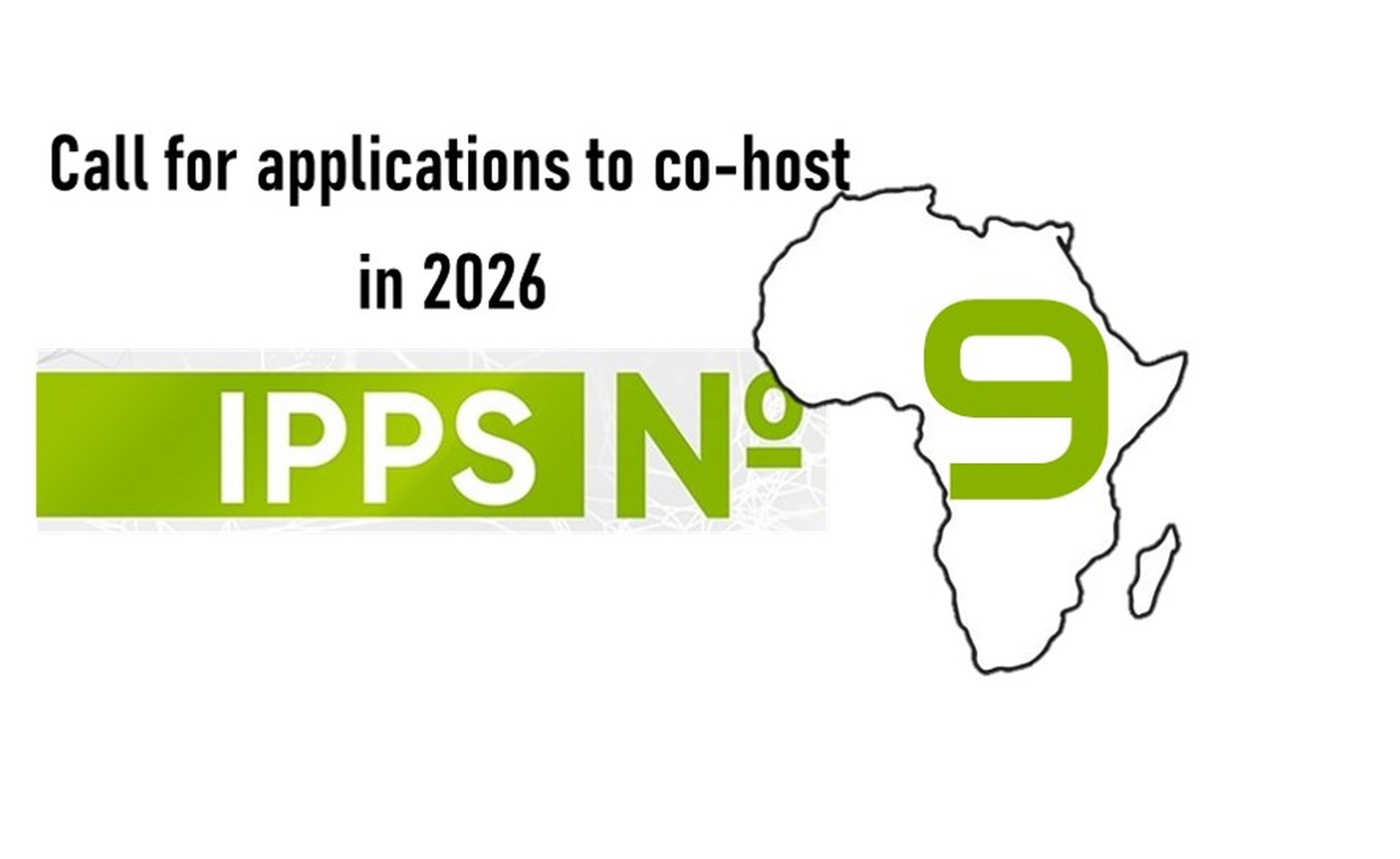
IPPN is excited to announce a unique opportunity for African institutions to co-host the 9th International Plant Phenotyping Symposium (IPPS9) in 2026.
IPPS9_application (DOCX)
China Calls: First International Plant Phenomics Conference Announced!

Mark your calendars! The inaugural International Conference on Plant Phenomics (ICPP) will convene in Sanya, China, from November 10-13, 2025.
DPPN-Access 2.0: Next call is open. Application Deadline 08.04.2025, 5:00 pm (German time)

"DPPN-ACCESS" offers access to phenotyping infrastructures of the Research Center Jülich (FZJ), the Leibniz Institute of Plant Genetics and Crop Plant Research (IPK) in Gatersleben and the Helmholtz Zentrum München (HMGU)
Hiphen Acquires Aurea Imaging’s Phenotyping Branch
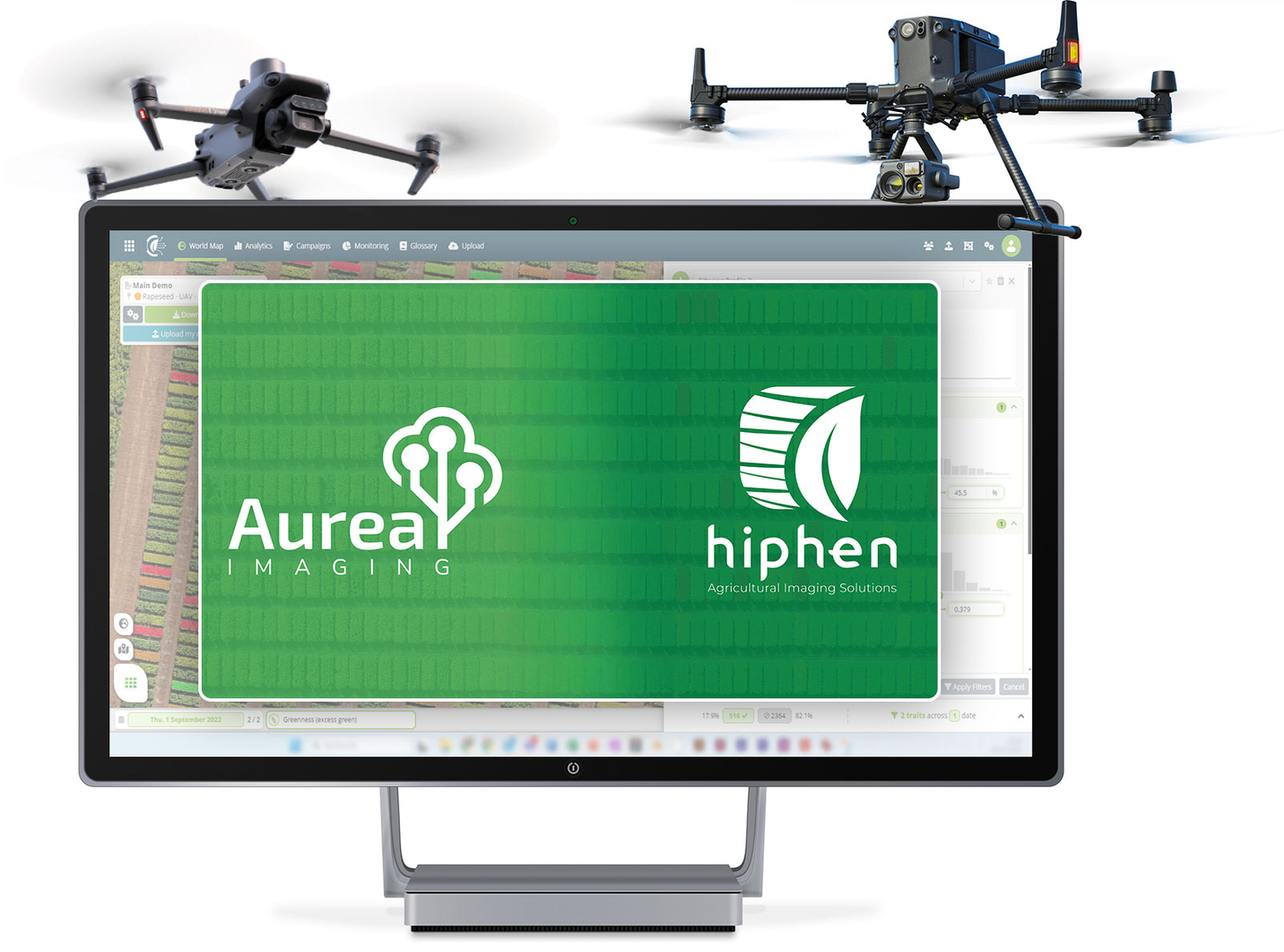
Hiphen and Aurea Imaging, two trailblazers in remote sensing, computer vision, and artificial intelligence for agriculture, have announced a major transaction that will bring image analytic solutions to crop researchers and producers: Hiphen is acquiring Aurea Imaging’s drone phenotyping activities.
39th EPSO Plant Science Seminar

We would like to announce the 39th of our European-wide seminar series by the European Plant Science Organisation (EPSO) and aimed at the Plant Science community and its stakeholders. We continue to provide a stimulating set of seminars once a month on a hot and/or emerging topic in plant science, giving the floor to both eminent world leaders and talented up-and-coming early career researchers.
Flyer (PDF)
38th EPSO Plant Science Seminar

We would like to announce the 38th of our European-wide seminar series by the European Plant Science Organisation (EPSO) and aimed at the Plant Science community and its stakeholders. We continue to provide a stimulating set of seminars once a month on a hot and/or emerging topic in plant science, giving the floor to both eminent world leaders and talented up-and-coming early career researchers.
Flyer (PDF)
Announcement of Coffee session series
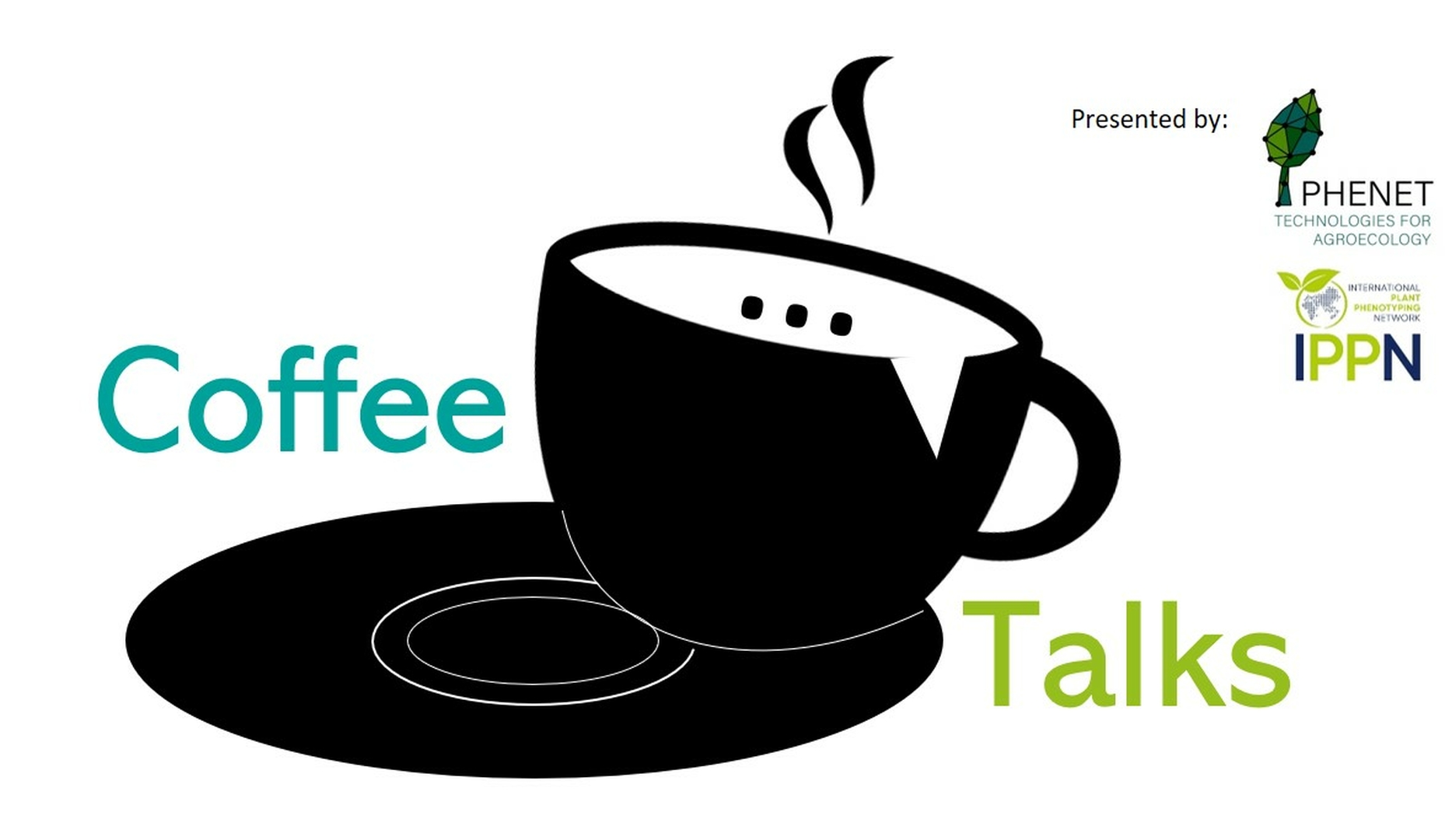
Are you focusing on plant phenotyping or envirotyping topics in your research and interested in how you can benefit from research infrastructure services in that area?
IPPS8 Special Issue with The Plant Phenome Journal

This TPPJ special issue will be the official peer-reviewed publication associated with the IPPS8. Preference will be given to material presented at the IPPS8, although contributions from the broader plant phenotyping community are welcome.
Submissions open: August 1, 2024
Submission deadline: January 1, 2025
IPPS8: Registration & abstract submission open!!
Announcement: Results of IPPN Board Elections
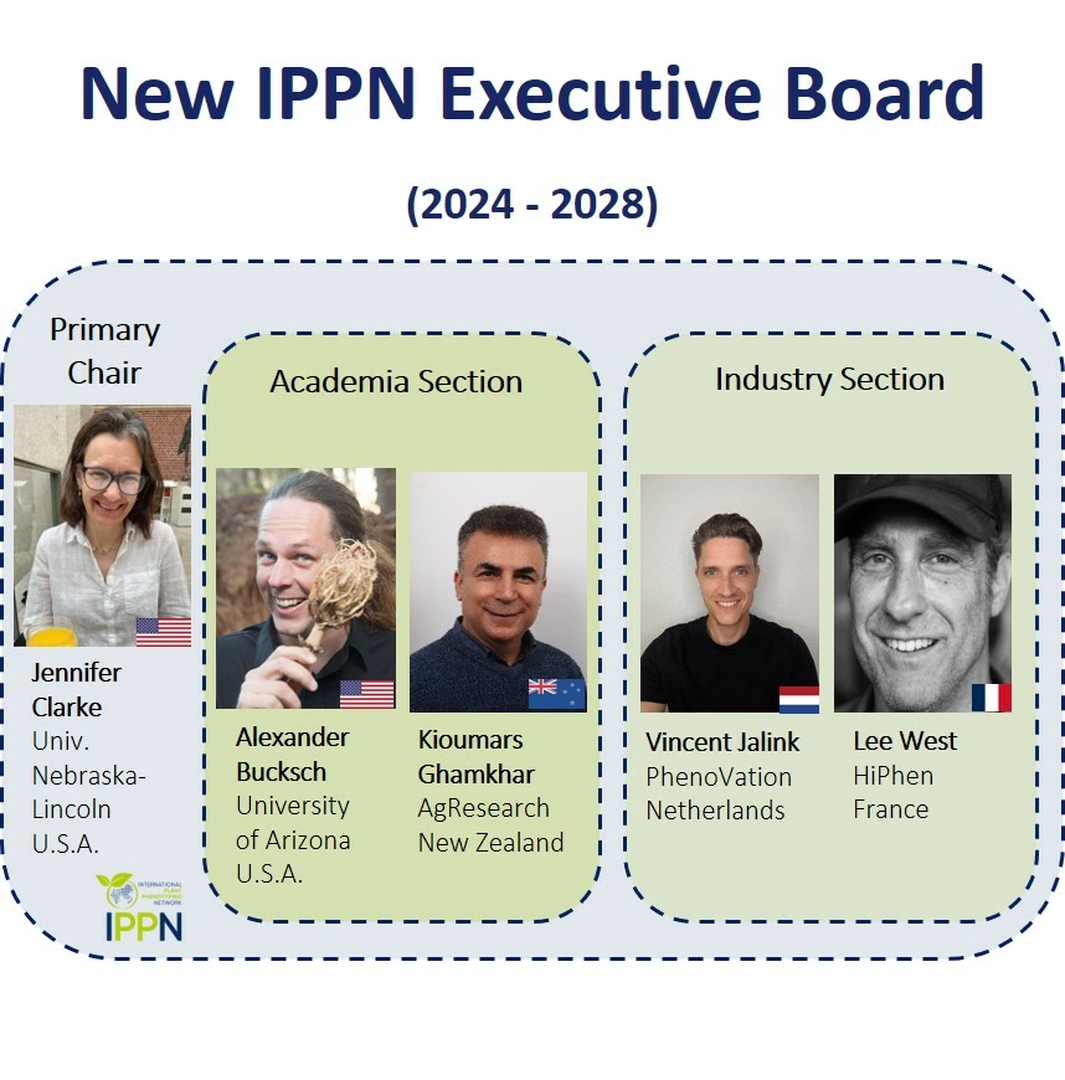
We are eager to announce the results of the IPPN Board Elections, which took place from December 2023 until January 2024
[Special Issue: Agronomy ] Advances in Data, Models, and their Applications in Agriculture
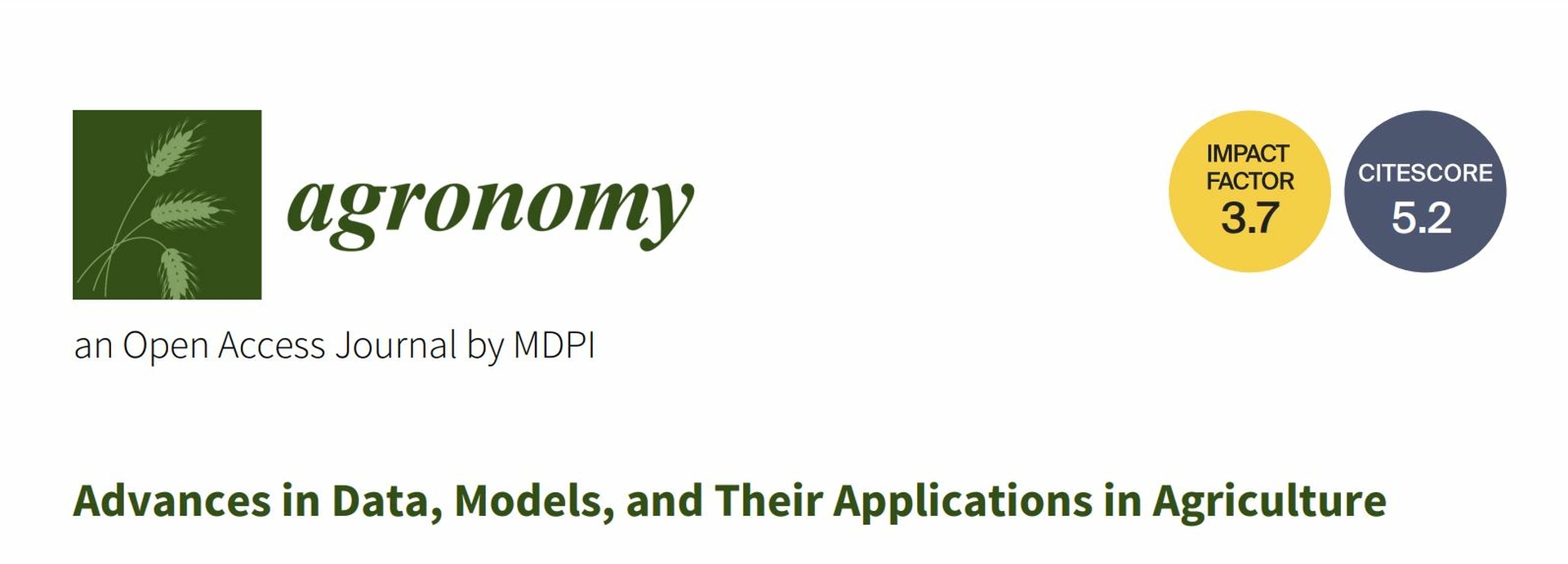
Toni Kazic and Addie Thompson invite your submissions to a special issue of Agronomy
Target date is April 1, 2024
Special Issue Flyer (PDF)
IPPS2024 UPDATE
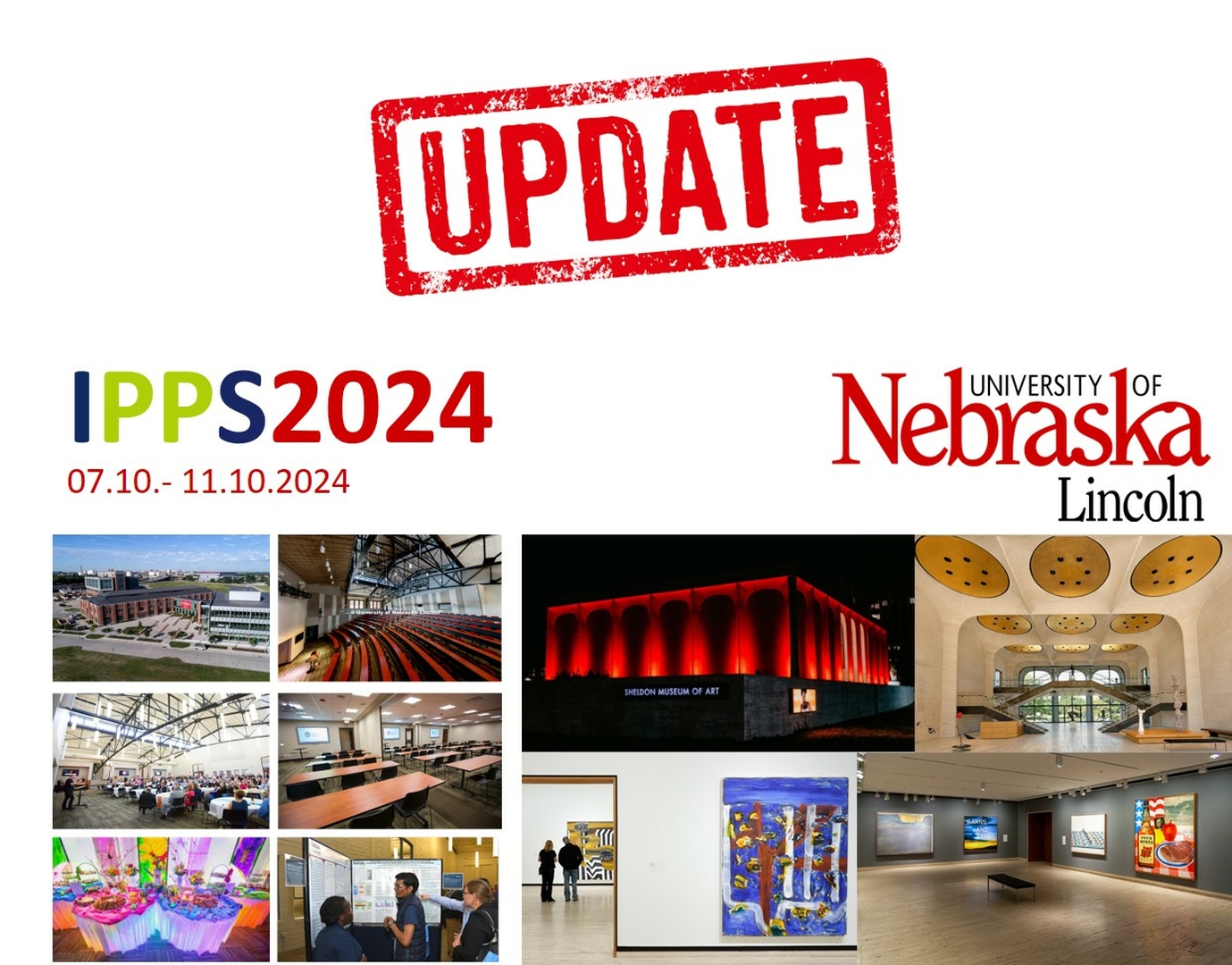
In order to keep you updated on any upcoming & relevant information in course of the planning activities, IPPN Office makes the following announcement:
IPPS2024 will take place from October 07. – 11. 2024, in Lincoln (Nebraska)
[Special Issue] Affordable Phenotyping to Enable Desirable Discoveries in Plant Research in PlantPhenomics
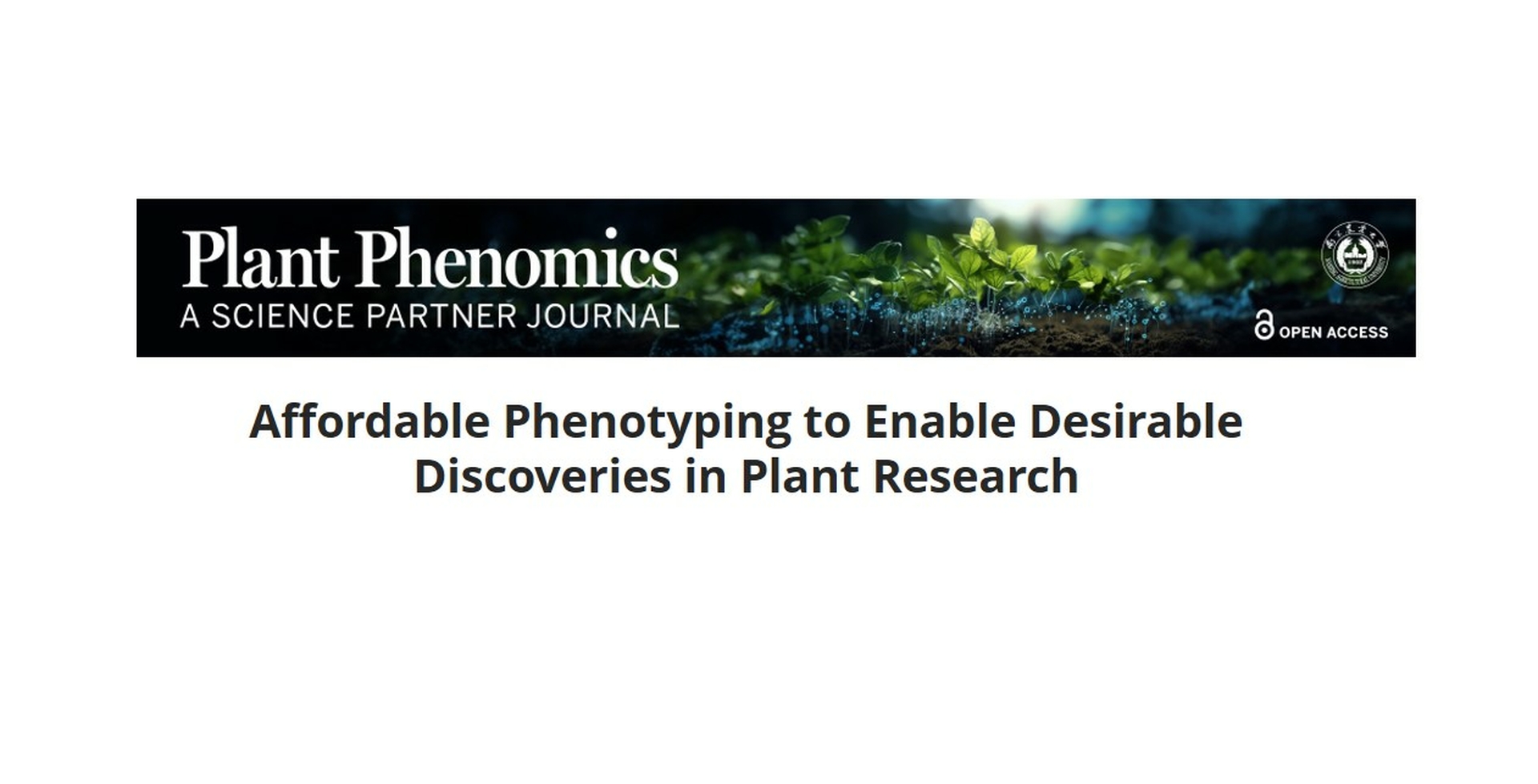
The main objective of this special issue is to present recent developments in affordable phenotyping and trait analysis that have or potentially could lead to valuable biological discoveries in different areas of plant sciences, for either fundamental or applied purposes.
Submission Deadline: November 30, 2024
APPF and EMPHASIS formalise future collaboration
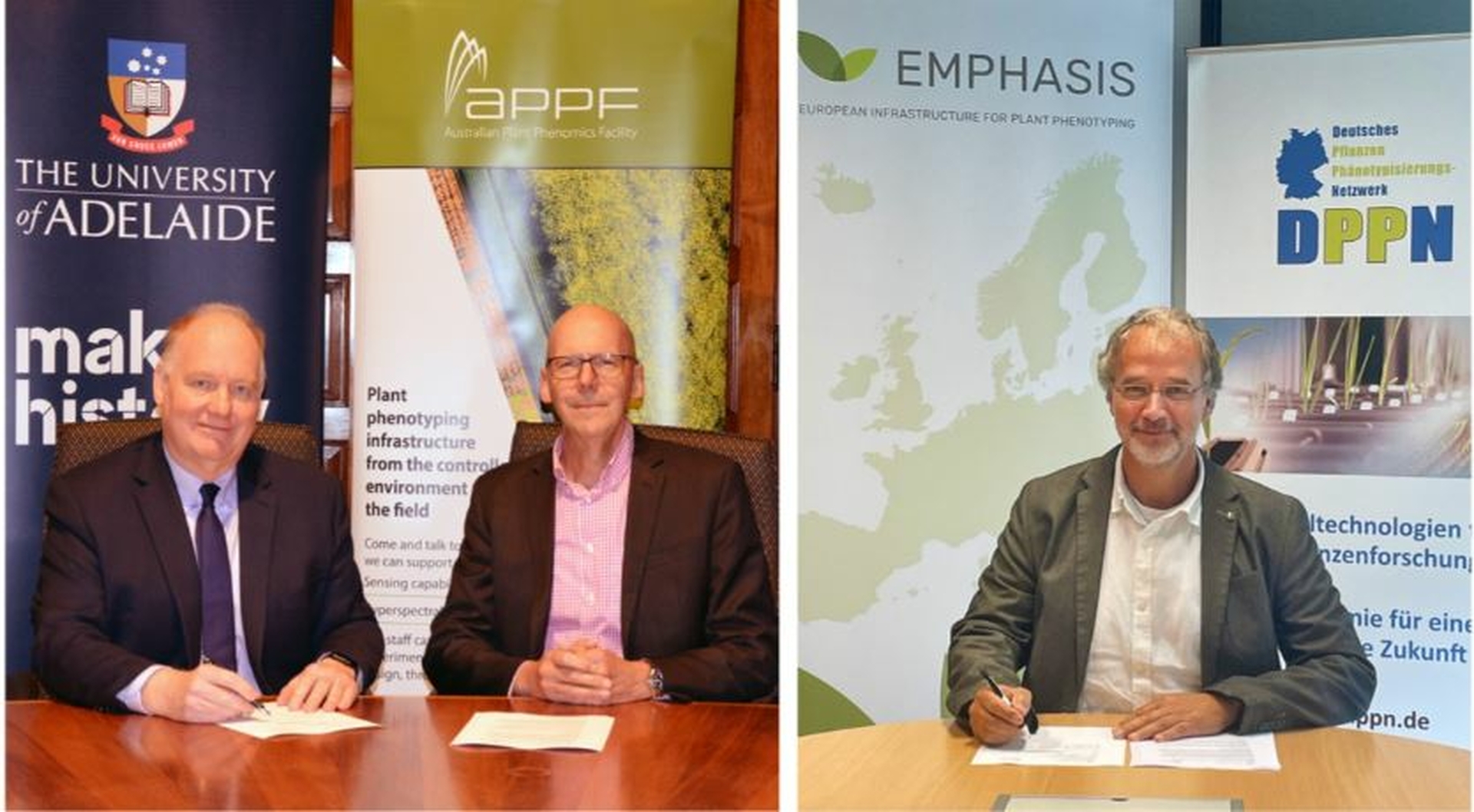
A Memorandum of Understanding signed between the Australian Plant Phenomics Facility (APPF) headquartered at the University of Adelaide and the European Infrastructure for Plant Phenotyping (EMPHASIS) coordinated at Forschungszentrum Jülich in Germany, has formalised the two organisations’ commitment to cooperate on enabling crop improvement via advancements in plant phenotyping.
AgroServ first Call for Proposals open to scientists working on topics related to agroecology
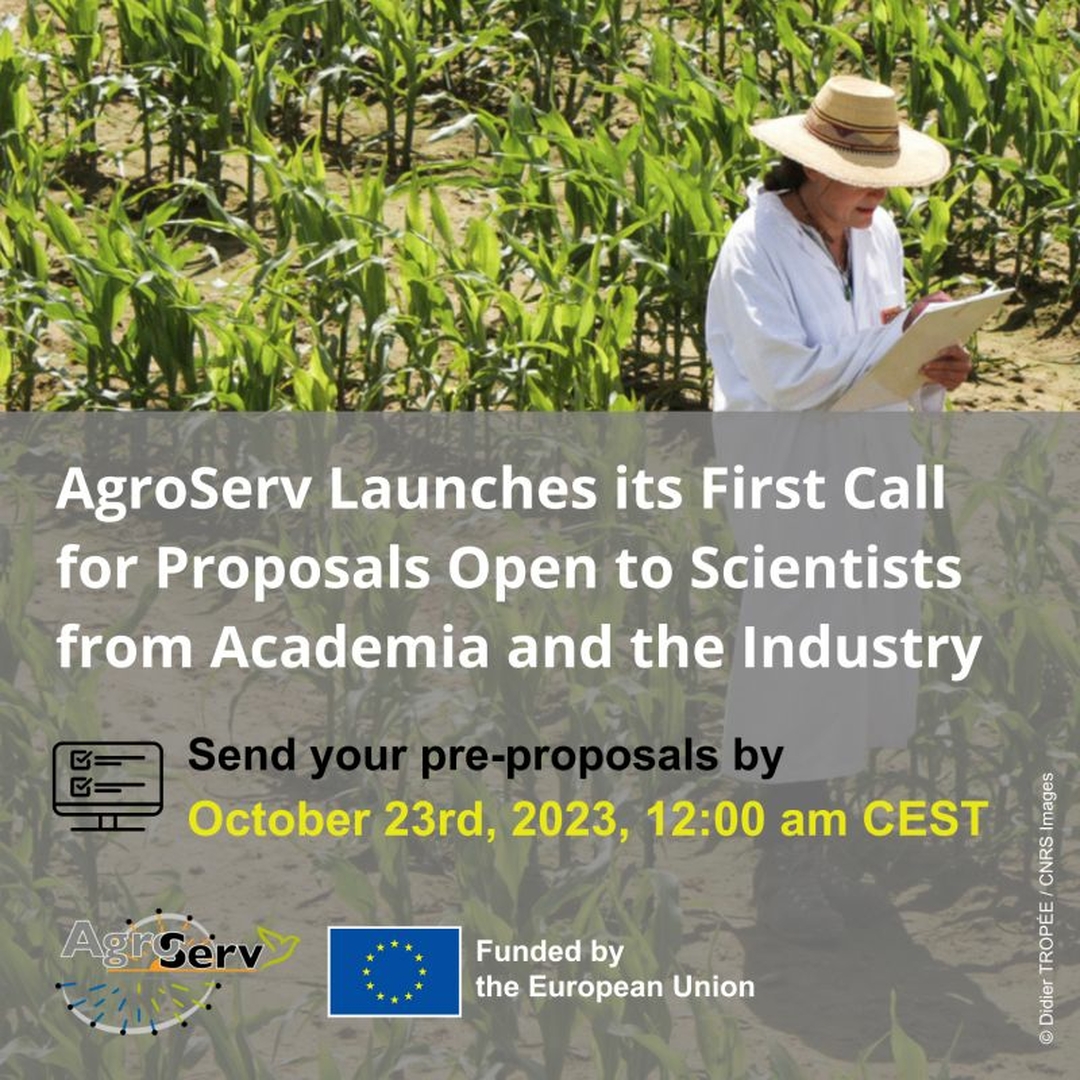
The Horizon Europe project AgroServ is pleased to announce the official launch of its first call for proposals open to scientists from academia and/or the industry.
[Special Issue] Plant BioDesign Hub: Automation for Plant Biodesign

The special issue theme on “Automation for Plant Biodesign” seeks original research manuscripts as well as reviews on new technologies enabling automated plant biodesign research or any component of Design-Build-Test-Learn (DBTL) cycles for plants in lab, greenhouse, or field settings.
GRDC Request for Proposal: Phenomics methods and tools to enable improved resource capture efficiency in grain crops
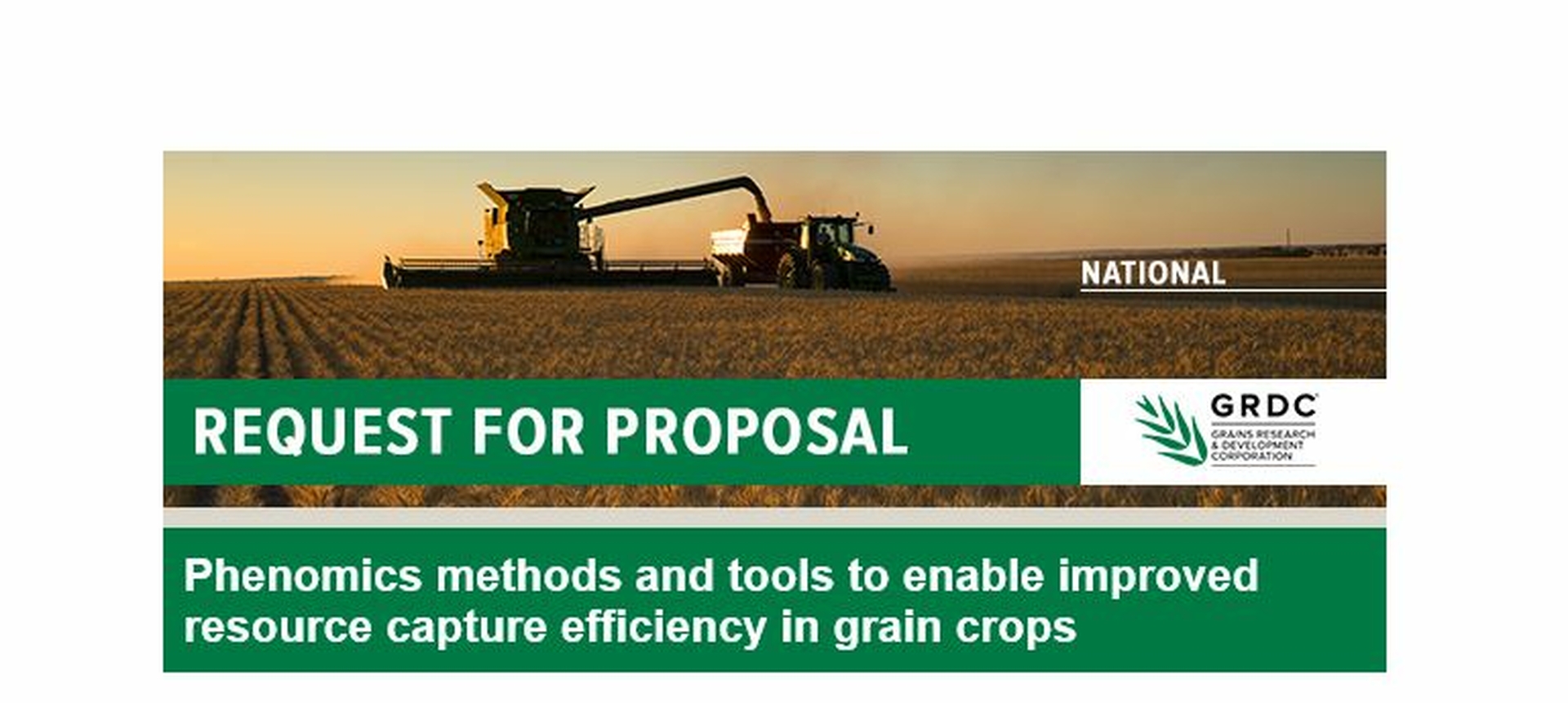
This Request for Proposal (RFP) process will source new projects focussed on developing tools and methods to phenotype the traits involved in improving crop resource use-efficiency and unlocking plant potential. A cross-business consultation process was undertaken to identify the highest priority traits for which we need suitable phenomics tools and methods for to deliver GRDC’s aspirations, particularly related to the Reach New Frontiers Pillar.
Wheat Initiative: MENTORSHIP PROGRAMME TO SUPPORT PhDs AND YOUNG RESEARCH FELLOWS IS LAUNCHED
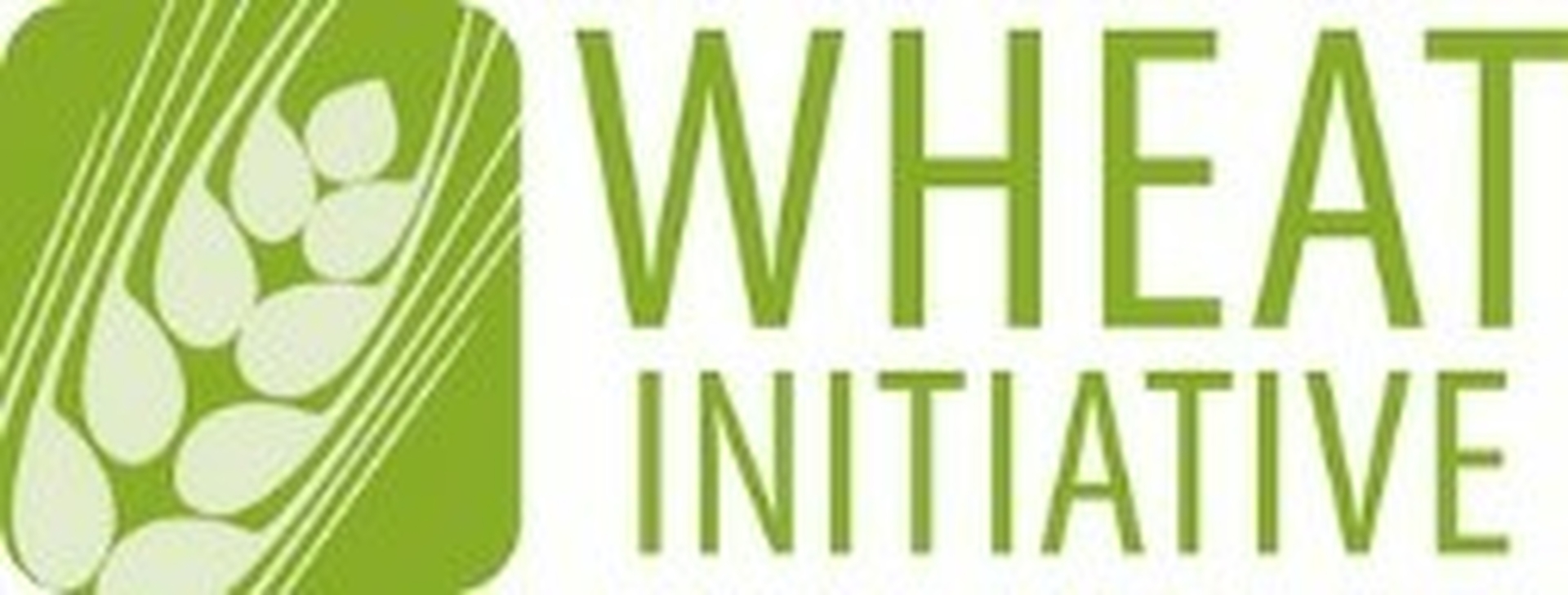
The Wheat Initiative is proud to present the newly launched Mentorship Programme! The programme will support PhDs and young researchers from regions with limited existing support or capacity (non-OECD countries…) undertaking durum wheat research or planning research focussed on durum wheat. This international contest will foster a supportive professional network for early career researchers, offering access to tutor´s laboratories and collaboration with senior researchers.
Call For Papers: 8th Workshop in Computer Vision in Plant Phenotyping & Agriculture
New Webinar Mini-series: Fraunhofer Pheno-Talks start in collaboration with IPPN's PhenomicsWebinars starting April 19
Research Topic / Special Issue: IPPS2022 – Plant Phenotyping for a Sustainable Future

This Research Topic aims to collect selected contributions from attendees and members of the research community of IPPS 2022, the 7th International Plant Phenotyping Symposium, which was held in Wageningen, Netherlands (September 26-30 2022).
Spontaneous submissions are also welcome.
[Special Issue]: Integrating Phenotyping & Modelling Approaches
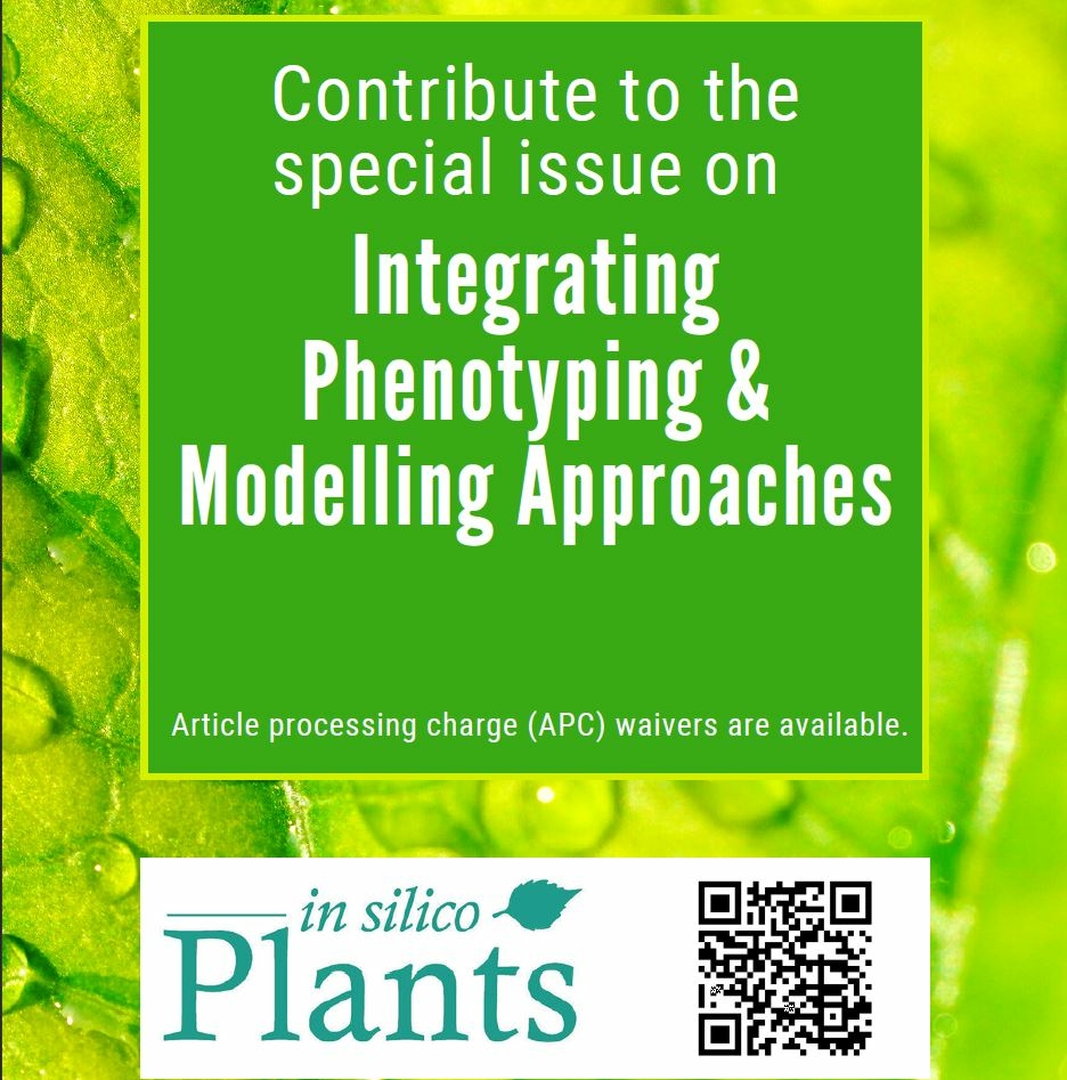
This SI published by In Sillico Plants is looking for contributions from research on the integration of phenotyping with genetic, molecular, physiological and ecological data is encouraged.
Flyer (PDF)
[Special Issue]: Plant Functional Phenotyping
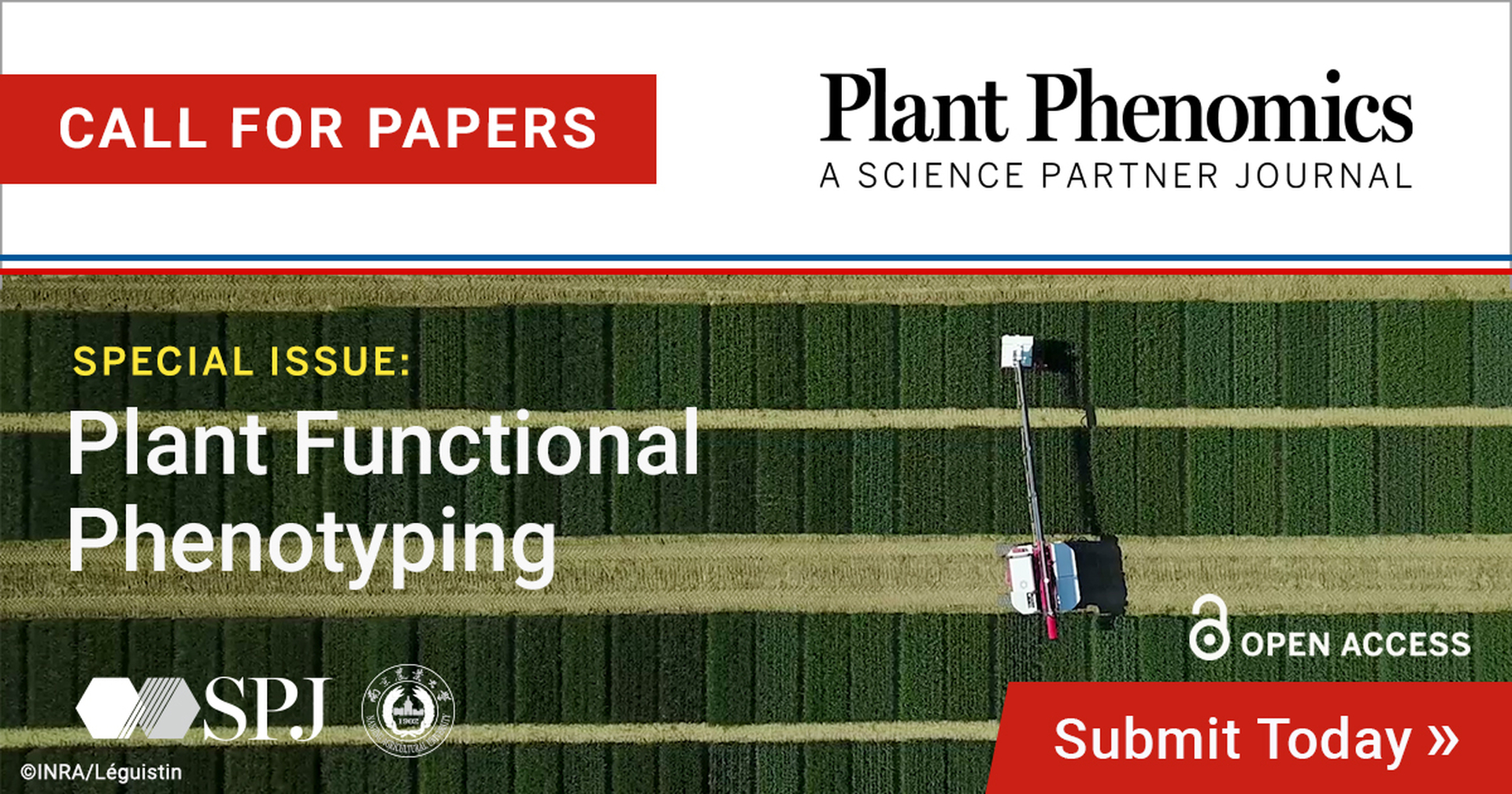
DEADLINE APPROACHING: Plant Phenomics is accepting submissions for a special issue titled Plant Functional Phenotyping.
Genomes to Fields (G2F) Genotype by Environment Prediction Competition
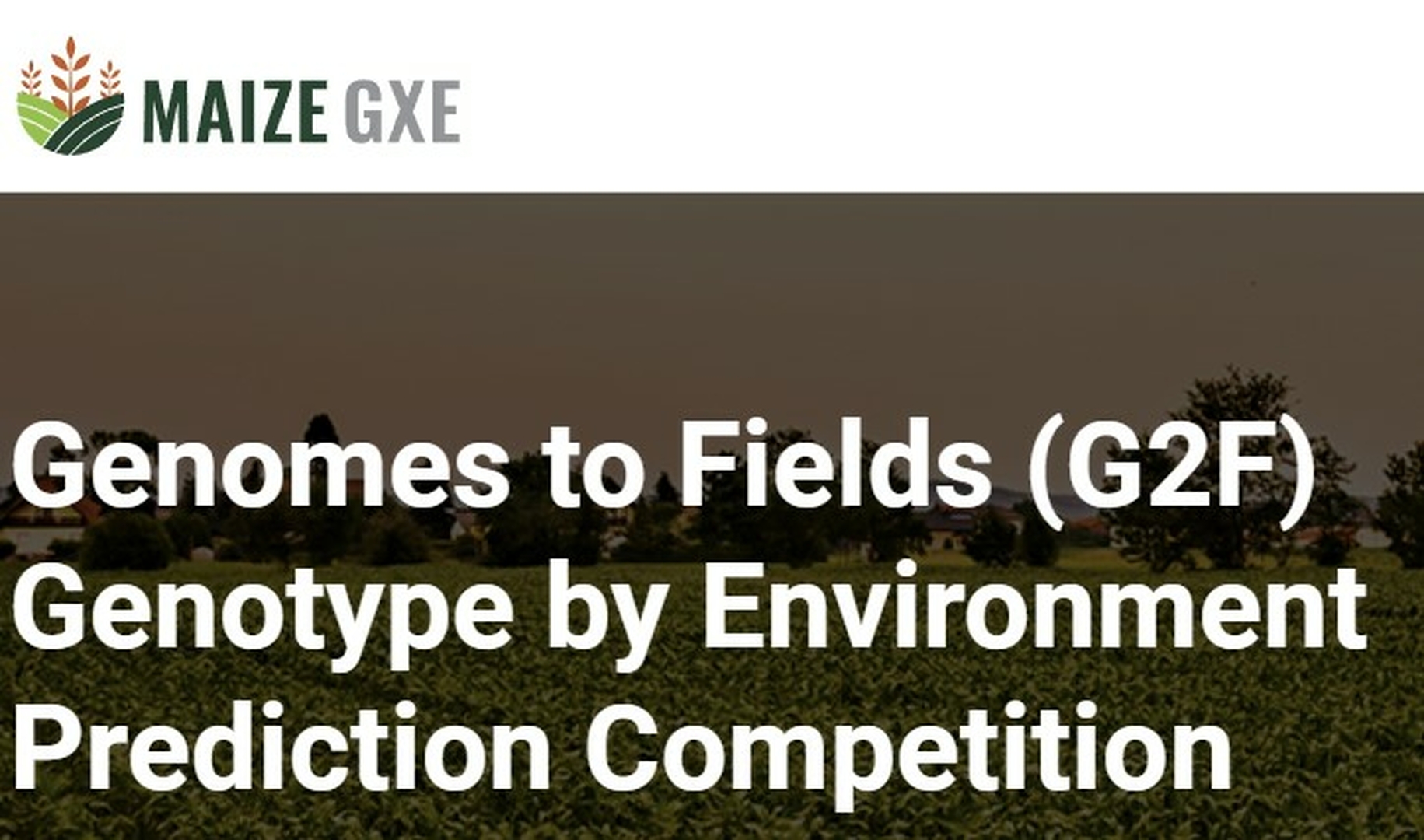
Develop models to predict corn yield in the 2022 G2F trials based on the current G2F dataset and other publicly available data.
Starting November 15 /2022 - January 15 /2023
Texas A&M AgriLife debuts automated precision phenotyping greenhouse

Featuring state-of-the-art robotics, remote sensing and data-capturing capabilities, Texas A&M AgriLife Research has launched “the future of agricultural research” with its multi-million dollar Automated Precision Phenotyping Greenhouse on the Texas A&M University.
PhenomUK Summer News: BBSRC-funded £2.4M UK Plant and Crop Phenotyping Infrastructure Scoping Project

BBSRC’s recent announcement of a £2.4M UK Plant and Crop Phenotyping Infrastructure Scoping Project,was followed by yesterday’s webinar at which BBSRC colleagues presented its aims and timeline.
IPPN Panel Discussion held during NaPPN's annual conference: "Reflection on 20 years of plant phenotyping in academia & industry in different parts of the world"
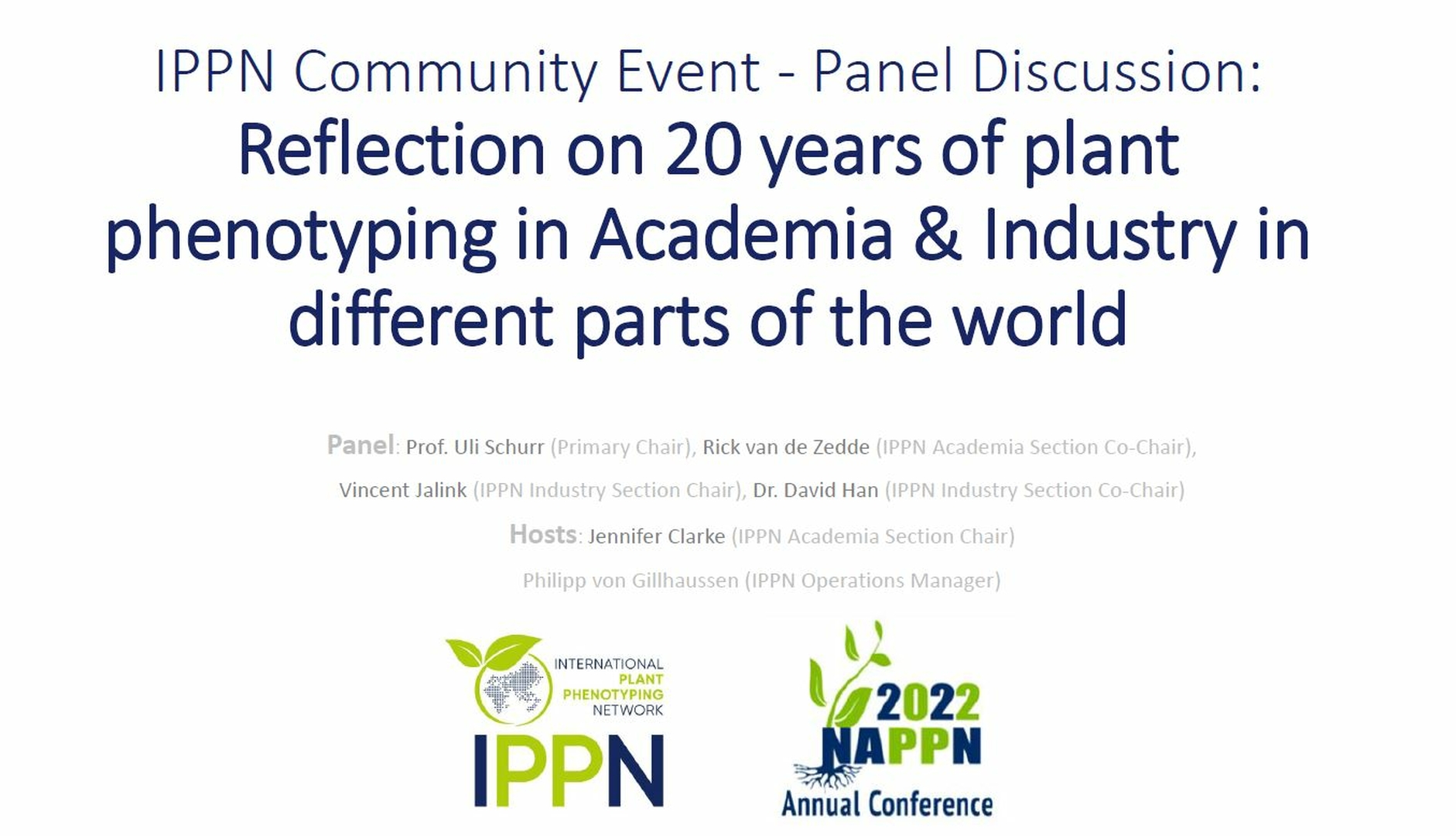
As a long term partner of the North American Plant Phenotyping Network (NaPPN) since its beginning, IPPN attended the conference in-person & remotely, adding to the program by hosting an international panel discussion during one of the morning sessions.
IPPS2022: Early bird period & abstract submission deadlines extended
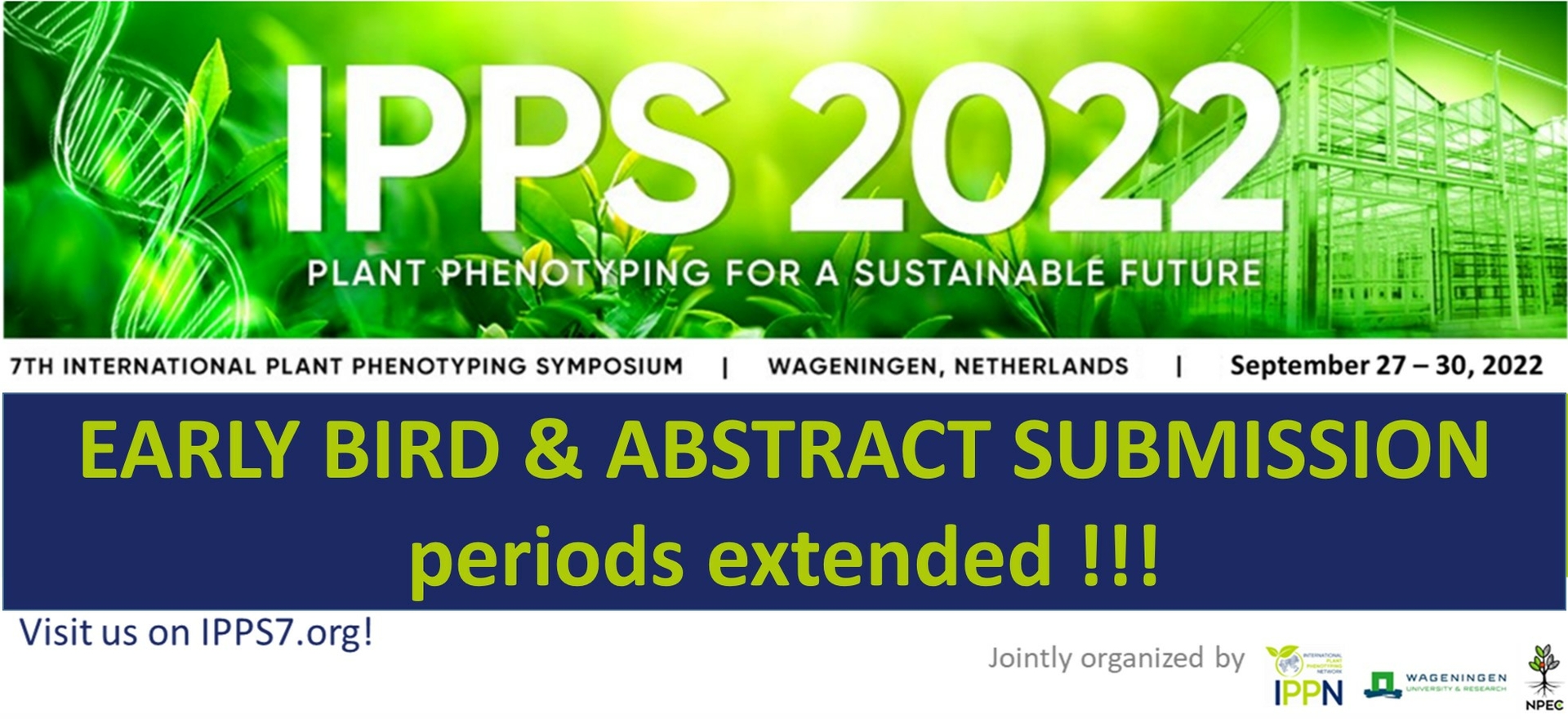
After the successful launch of the IPPS2022 registration period, the organizers have decided to extend the deadlines forearly bird registrations until May 1, 2022.
Additionally, the submission period for talks and posters got pushed back to May 15, 2022.
U.S. Drone2Phenome group launches survey to understand & identify best ways to leverage drones in research & agriculture globally

We want to help make phenotyping with drones or unoccupied aerial vehicles (UAVs) more available to the agricultural research community.
EUROPEAN PLANT SCIENCE ORGANIZATION CALLS FOR SUPPORT OF UKRAINIAN SCIENTISTS
Registration opens for the 7th International Plant Phenotyping Symposium

Registration & abstract submission for the 7th International Plant Phenotyping Symposium (IPPS7) have opened.
Visit www.ipps7.org & stay tuned for even more updates!!
Review & Opinion: A European perspective on opportunities and demands for field-based crop phenotyping
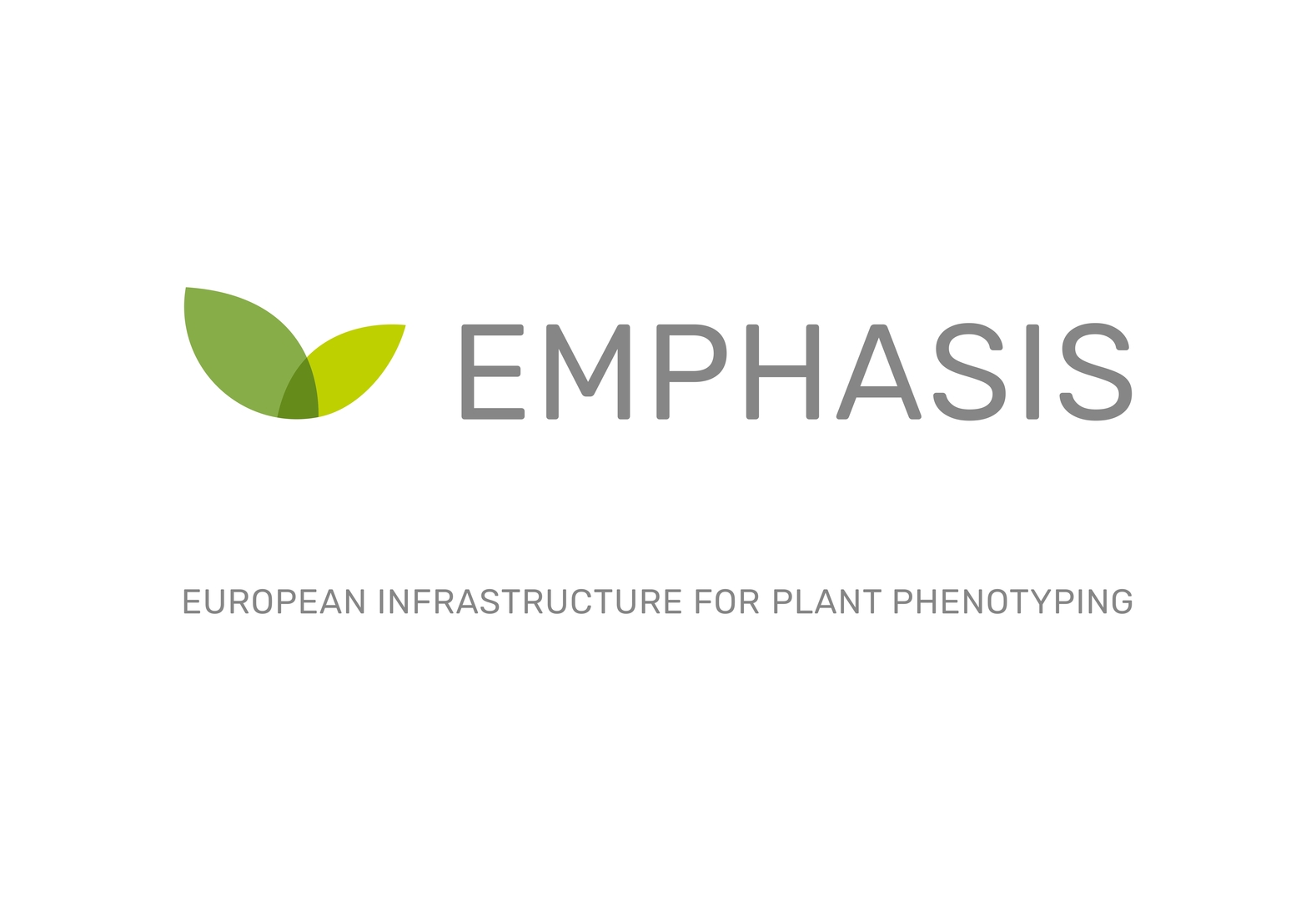
This paper provides an overview of the current status of European field phenotyping capabilities and provides a roadmap for their future use to support crop improvement. This provides a wider framework for the analysis and planning of field phenotyping activities for crop improvement.
A joint collaboration in frame of the EMPHASIS Field pilot and Experts in the the field.
Opinion Paper: EU Consortium calls for "Designing the Crops for the Future; The CropBooster Program"
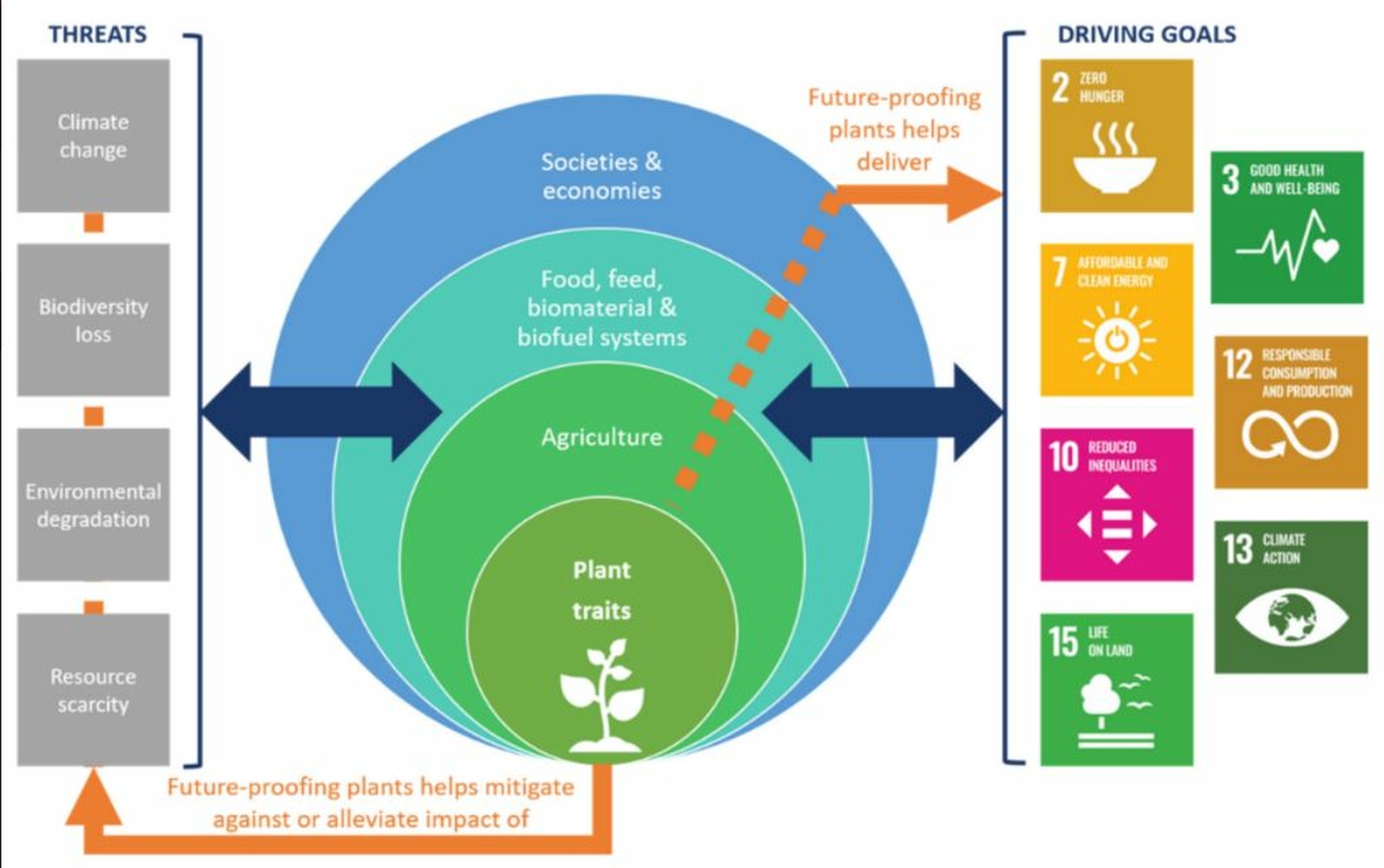
The authors call for international action and propose a pan-European research and innovation initiative, the CropBooster Program, to mobilize the European plant research community and all interested actors in agri-food research and innovation to face the challenge.
Harbinson et. al. (2021) Designing the Crops for the Future; The CropBooster Program (PDF)
MLCAS2021 launches Crop Yield Prediction Challenge
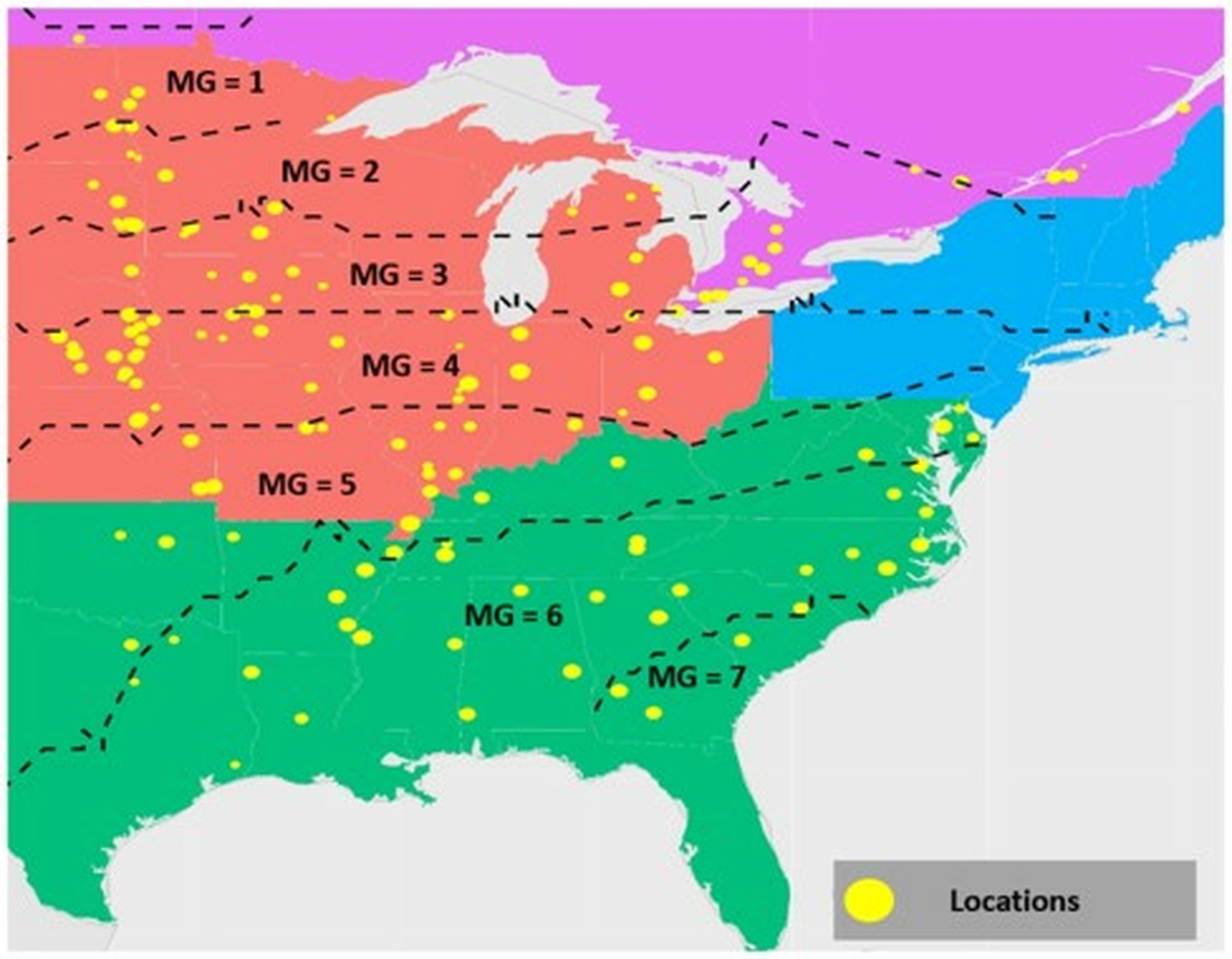
In this competition, you will utilize a dataset consisting of 103,365 performance records over 13 years and 150 locations with weekly weather data for each location throughout the growing season of 30 weeks. In particular, you will develop machine learning algorithms that can accurately predict yearly crop yield for a particular performance record.
Wheat Initiative gains new coordinator from Julius-Kuehn-Institute for their Alliance for Wheat Adaption to Heat and Drought (AHEAD) program

In 2021, the Wheat Initiative welcomes Dr. Stefanie Hagemann, as the new AHEAD Global Coordinator. Dr. Hagemann started working for the Julius Kühn-Institute and for the Wheat Initiative this summer.
Press release (PDF)
Wheat Initiative call for best phenotyping webinar in WEBINAR COMPETITION
Wheat Initiative calls for your (wheat) research video in their VIDEO COMPETITION

WHEAT PHENOTYPING AND ABIOTIC STRESS TOLERANCE: FROM THE BENCH TO THE FIELD, FROM VISUAL SCORES TO ROBOTICS
New Special Issue in Plant Phenomics

Plant Phenomics, a Science Partner Journal, is now accepting submissions for a special issue titled Advances in Proximal Sensing and Image Analysis for Time-Series Phenotyping.
Submission Deadline: June 30, 2023
IPPN's General Assembly 2021 will take place Virtually, on November 10 2021
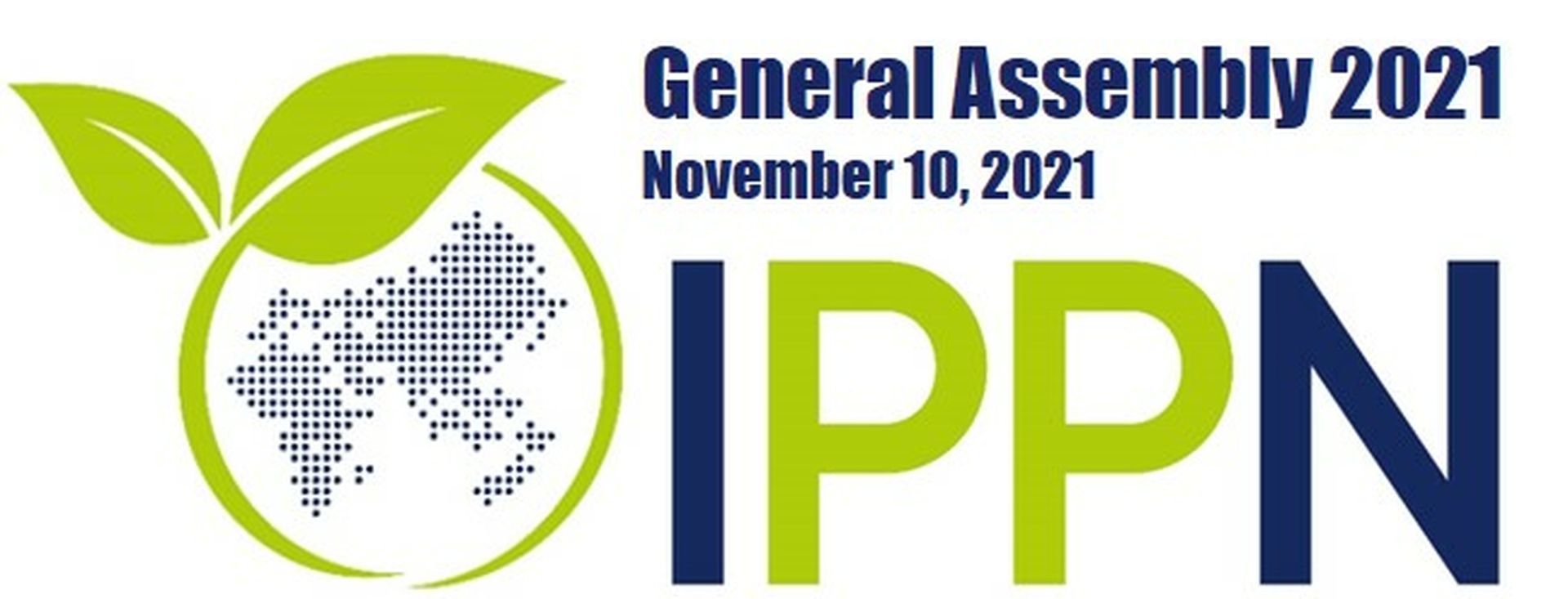
As decided by the IPPN Executive Board, this year’s IPPN General Assembly will be held virtually. The decision was based on the still prevalent national & international COVID-19 restrictions for meetings & travelling. In order to give each member representative near-equal opportunities to attend this mandatory meeting, an exact time will be announced later this year.
Austria: New high-throughput phenotyping platform at Vienna BioCenter Core Facilities (VBCF)
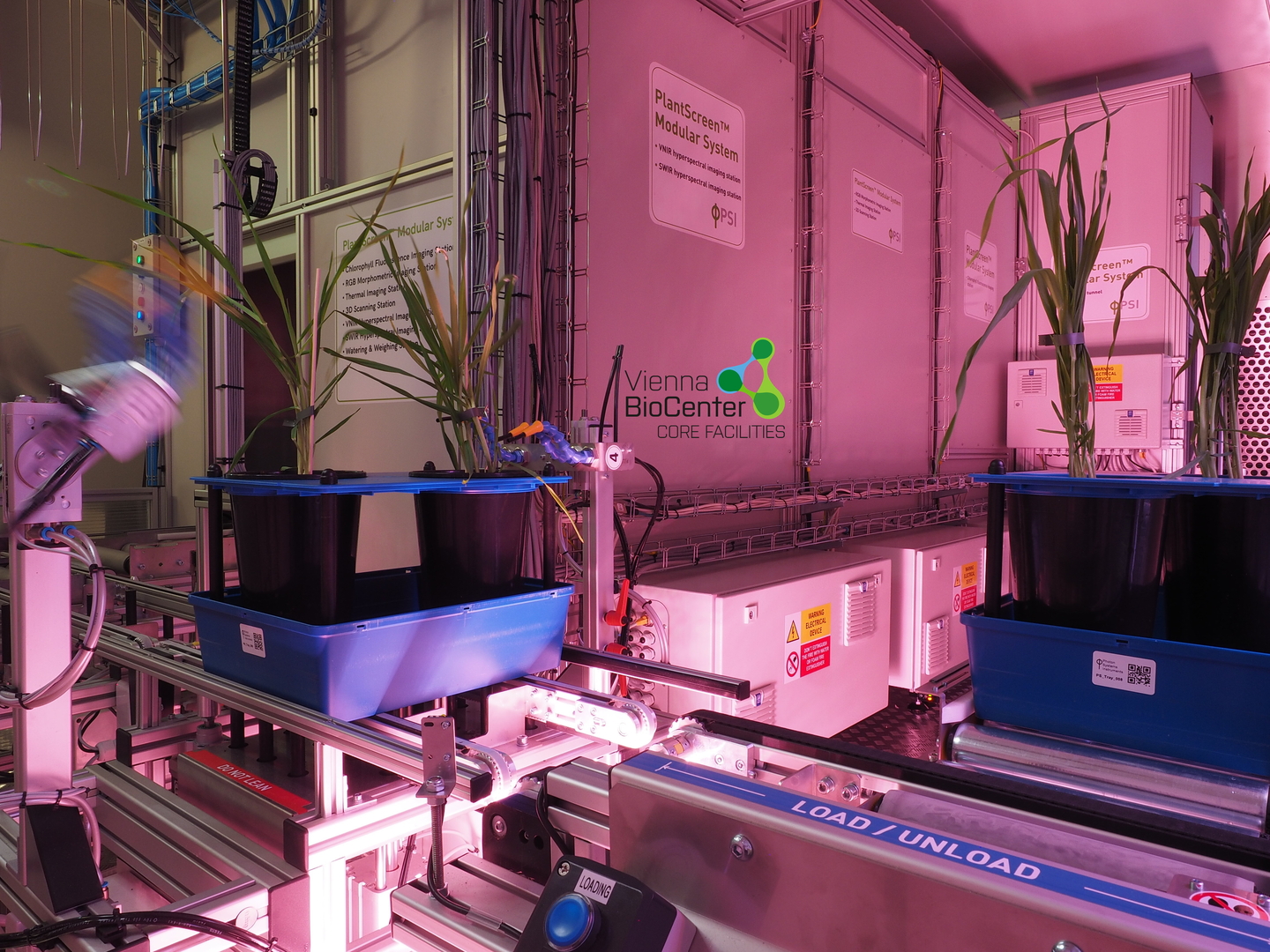
The PHENOPlant phenotyping platform is designed for non-invasive, morphometric and physiological high-throughput phenotyping of mid-size crop plants as well as Arabidopsis and is fully integrated into a state-of-the-art walk-in phytotron providing highly homogeneous plant growth conditions. The platform facilitates precise environmental simulations across different climate zones as well as controlled plant stress experiments. Cutting-edge sensors include multi-excitation PAM kinetic chlorophyll fluorescence, RGB, VNIR/SWIR hyperspectral, thermal and 3D.
Final EPPN2020 call for transnational access now closed
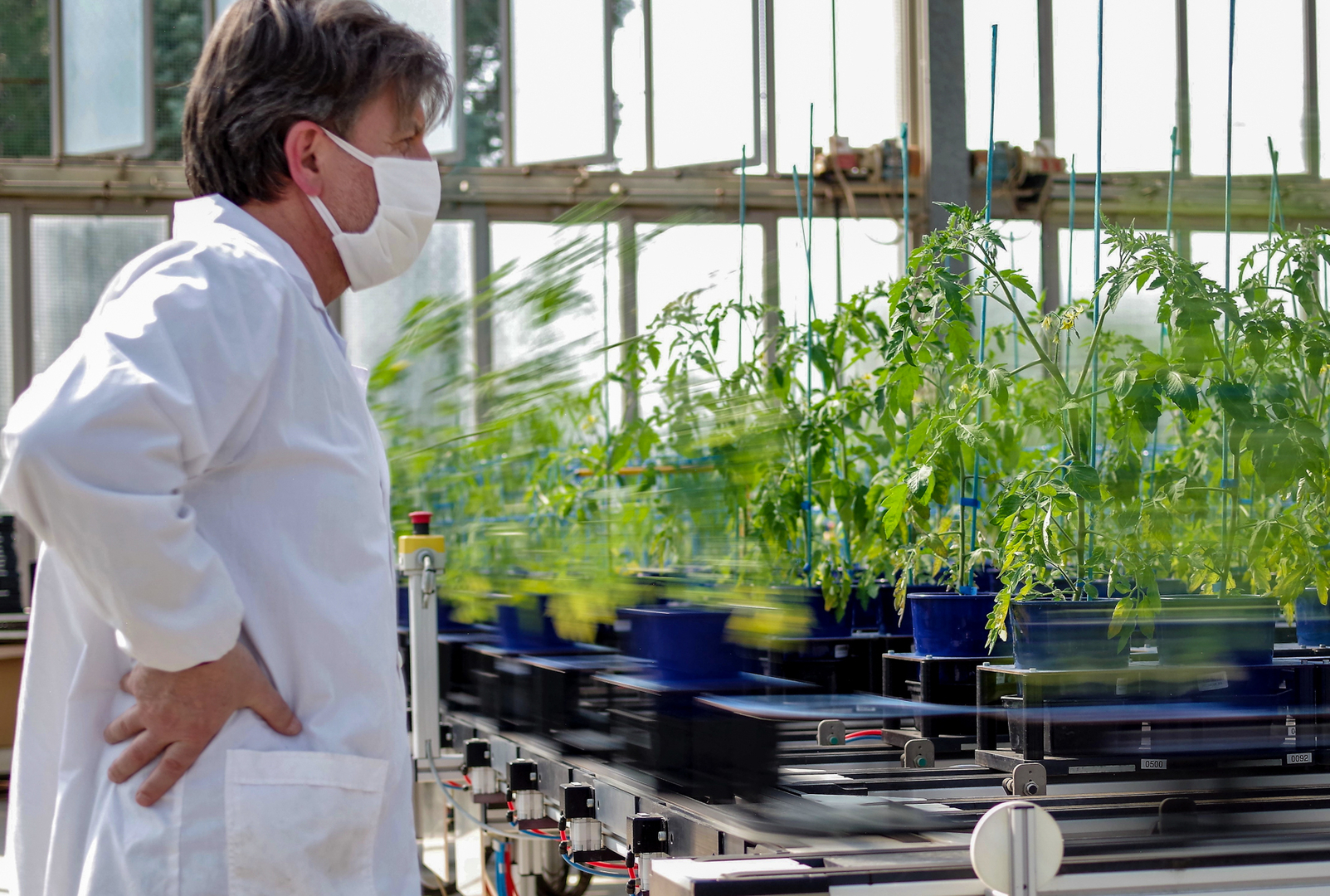
The EPPN2020 project has provided transnational access for researchers from public and private sectors from Europe and beyond to 31 state-of-the-art plant phenotyping installations, techniques and methods from 15 different institutions across Europe. Calls for transnational access to these installations were released at regular intervals between 2018 and 2021, and the sixth and final call has now closed. Throughout the project period 198 applications were submitted and based on external and independent review process 152 transnational access experiments were successfully implemented.
Greece: Intelligent system to monitor health of olive groves
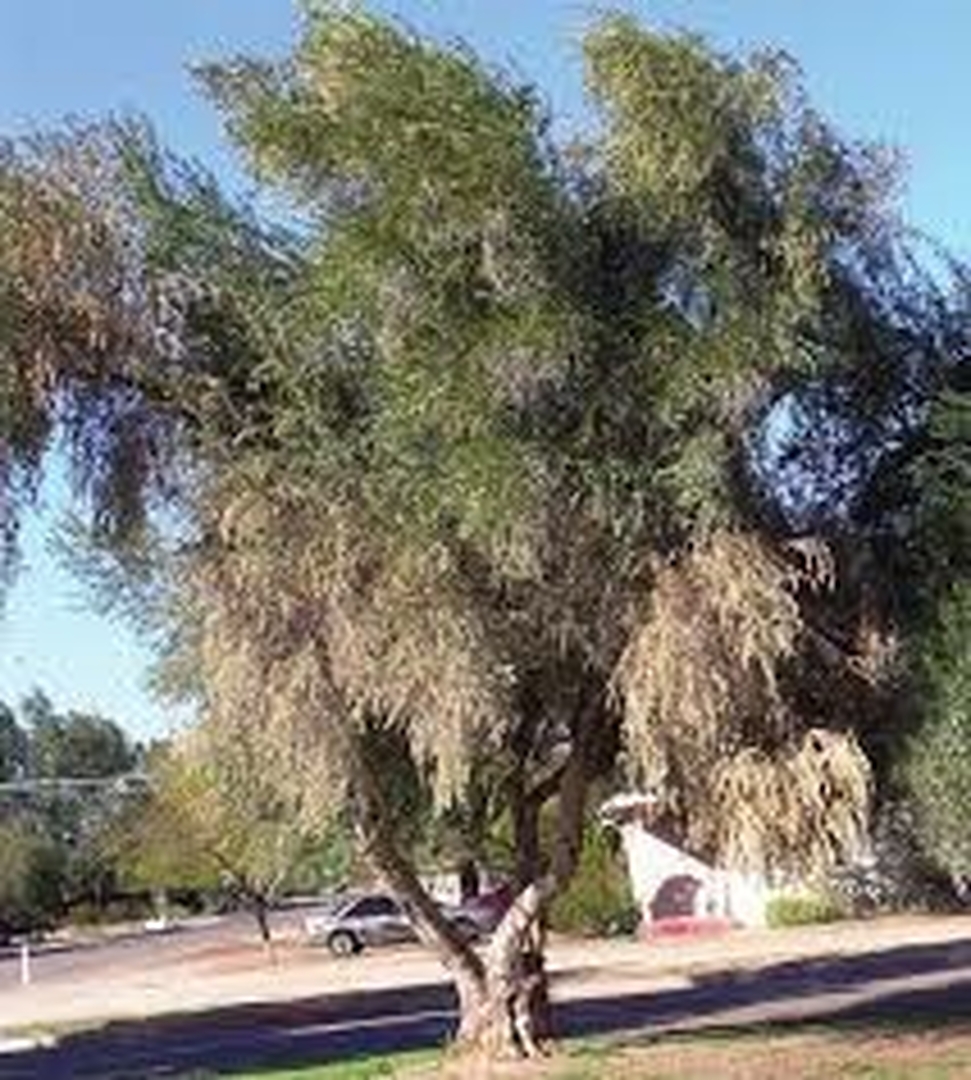
Early stage Verticillium Wilt affected trees
Verticillium wilt is a major problem for olive growth and very difficult to detect at early stages of infestation. The project MyOliveGroveCoach has been launched to develop an intelligent system that will monitor olive groves and support farmers in the detection and treatment of Verticillium. The system employs multispectral imaging from unmanned aerial vehicles and automatic image processing using computer vision and machine learning techniques. The goal is to assess the health of olive groves and provide novel solutions for the early detection of Verticillium wilt and its spread.
Sweden: A virtual tour of the Biotron at SLU Alnarp
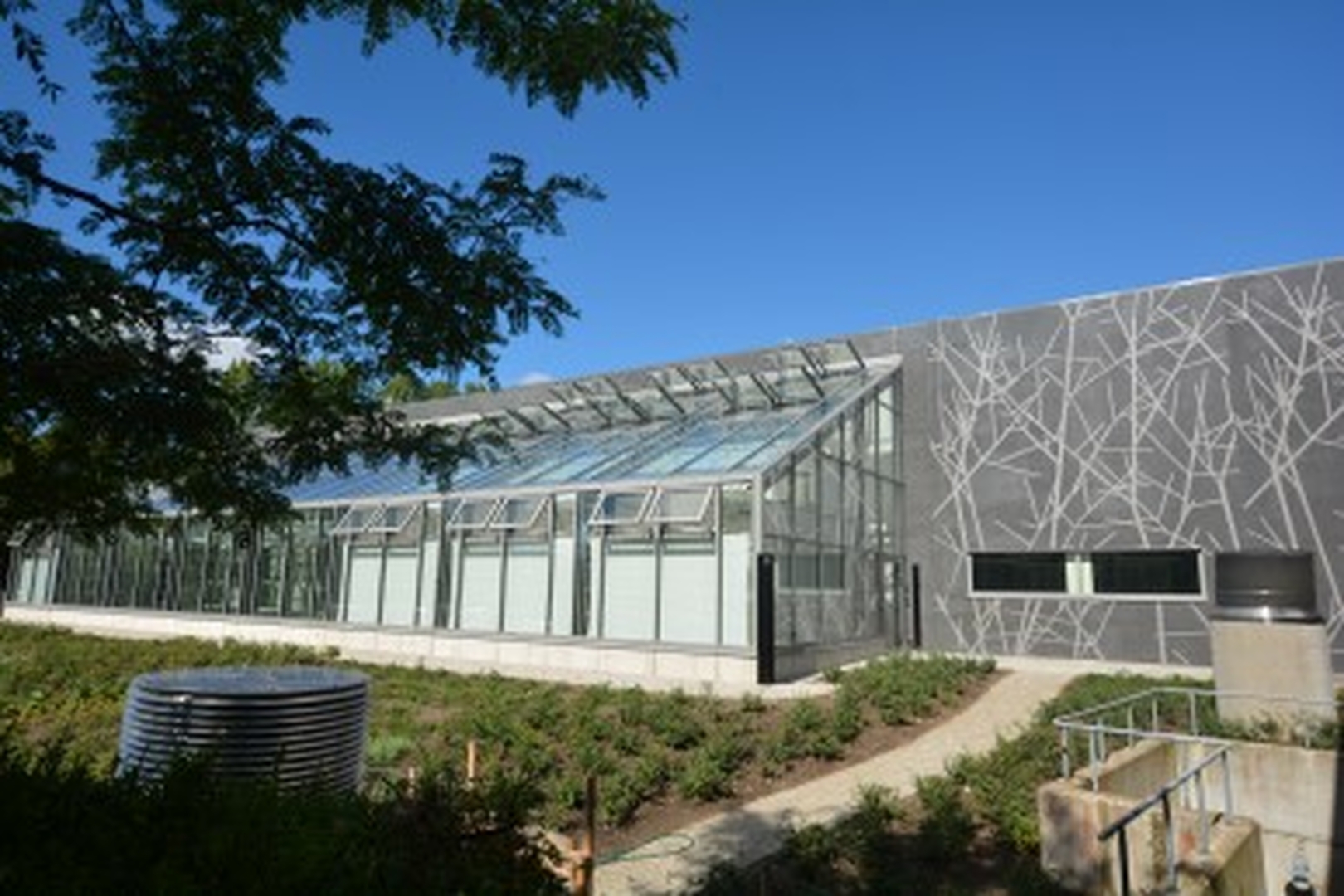
On 27 May 2021, NordPlant organized a virtual tour of the Biotron at SLU Alnarp. The Biotron is a facility for modern plant research with climatized rooms, with high precision and accuracy climates. One purpose of this tour was to fulfill NordPlants mission to spread information about the participating facilities. Another was to continue building the Facility Managers Network, which is intended to let the staff who work at the different facilities learn more about other facilities in the network.
Italy: Successfull first Phen-Italy call for access to plant phenotyping infrastructures
Greece: Lab-in-the-field, multi-spectral imaging technology for early warning of plant stress and pathologies

The Mediterranean Agronomic Institute of Chania, the Hellenic Agricultural Organization Dimitra and QCELL, the inventor of field-deployable, real-time multispectral imaging technology, have joined forces to expand the applications of multi-spectral imaging in plant phenotyping. The SpectraPlant project supported by the Region of Crete and the Hellenic Ministry of Development and Investment uses the PhenoCheck lab-in-the-field device from QCELL to collect and classify spectral data for the early diagnosis of stress and pathological conditions in economically important crops.
New tools for data sharing in plant research
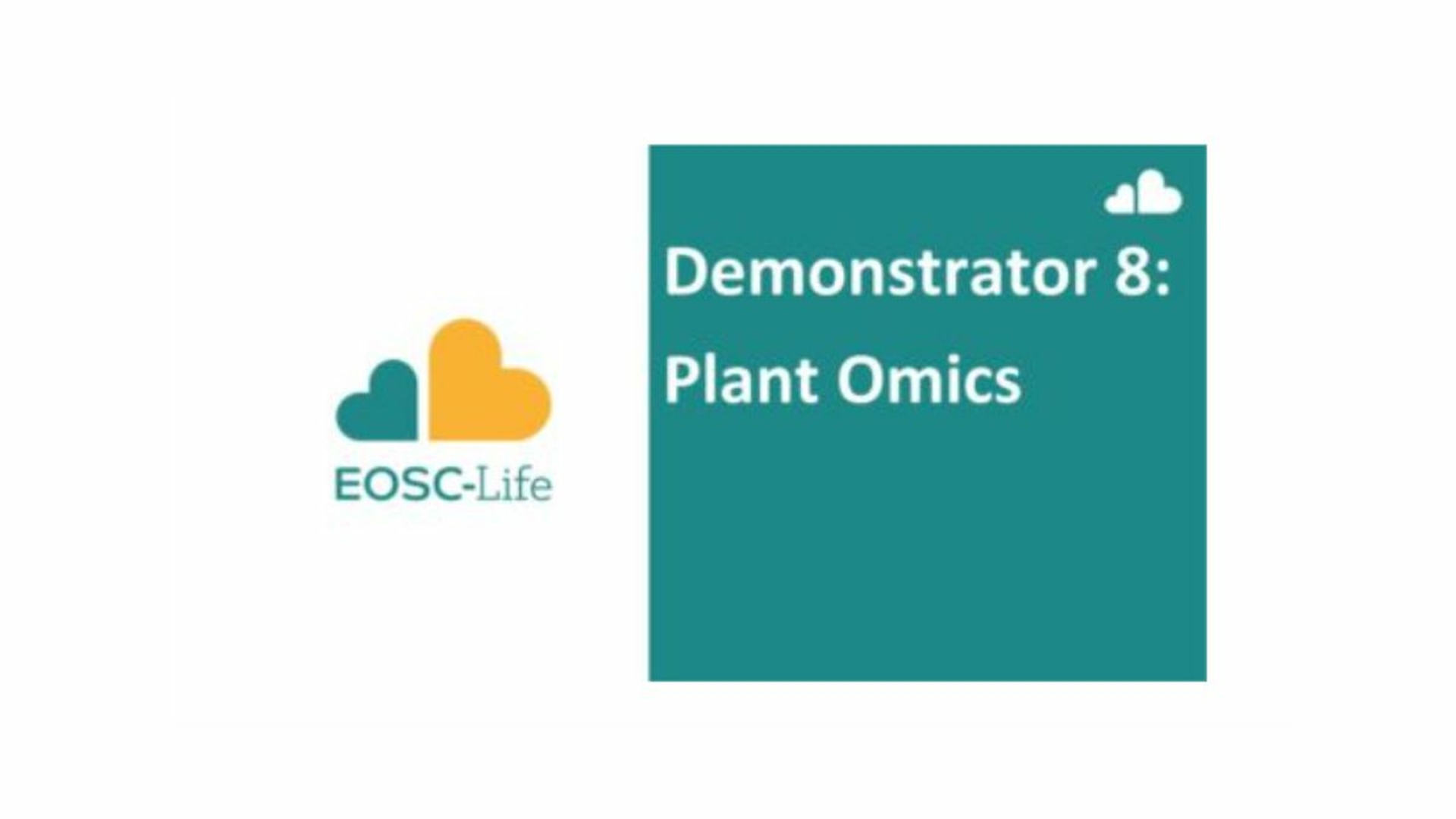
Three new data management tools designed to help plant researchers with data analysis, visualisation and integration following FAIR principles are now available for the community.
Italy: Phen-Italy launches first call for access to national phenotyping infrastructures
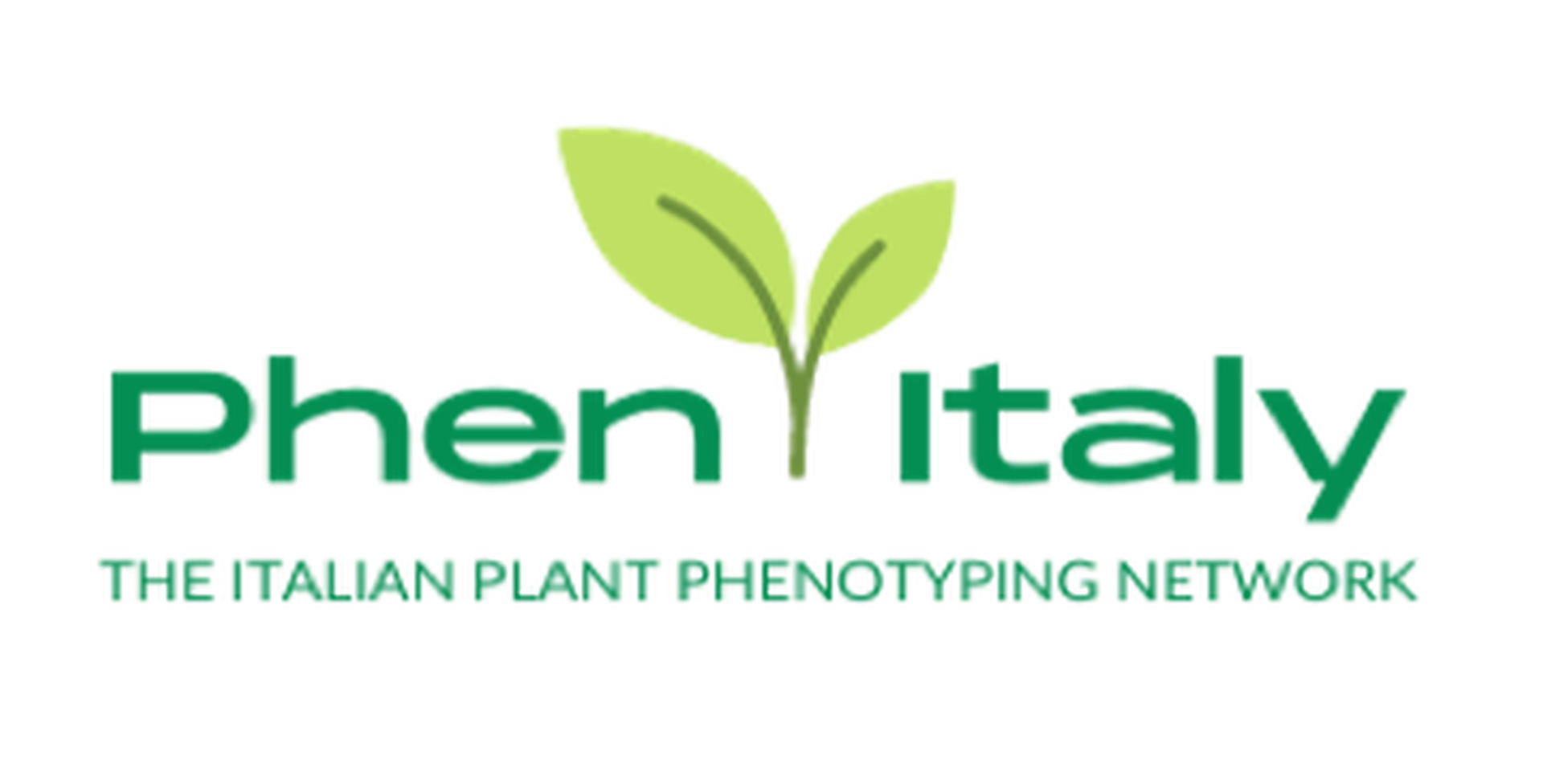
The Italian Plant Phenotyping Network Phen-Italy has launched a call to fund access to plant phenotyping participating infrastructures within the Joint Research Unit Phen-Italy.
The International Plant Phenotyping Syposium has been postponed to 2022

After careful deliberation and consideration of the global status of the SARS-CoV2 pandemic, the IPPN Executive Board has taken the decision to postpone its 7th International Plant Phenotyping Symposium (IPPS7) to 2022.
Update: The IPPS7 organizing committee has published the exact date to which IPPS7 will be shifted, which is which is Tuesday September 27th till Friday September 30th 2022.
Present your research to the community: PhenomicsWebinars relaunch in new format

Now open: abstract submission for the upcoming season of the newly revised PhenomicsWebinars series on plant phenotyping.
Special issue: Plant Phenotyping for a Sustainable Future
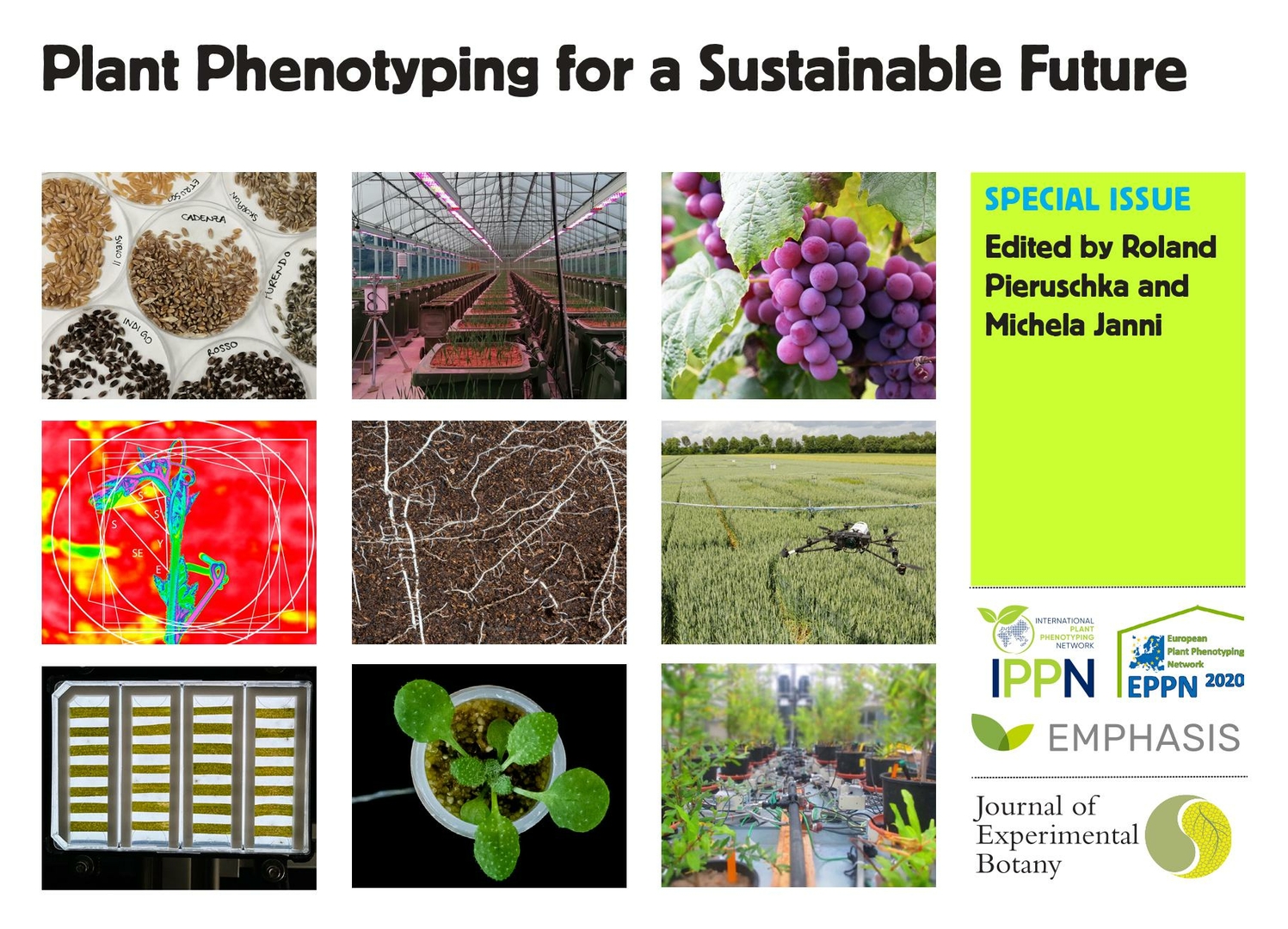
Contributions to the special issue are welcome and may include research papers as well as review articles. Authors should submit a title and brief outline for the consideration of the editors via email by 31 October 2021. All papers are peer reviewed to the usual standards and must fit within the scope of the journal.
What kind of bioinformatics do plant scientists need?
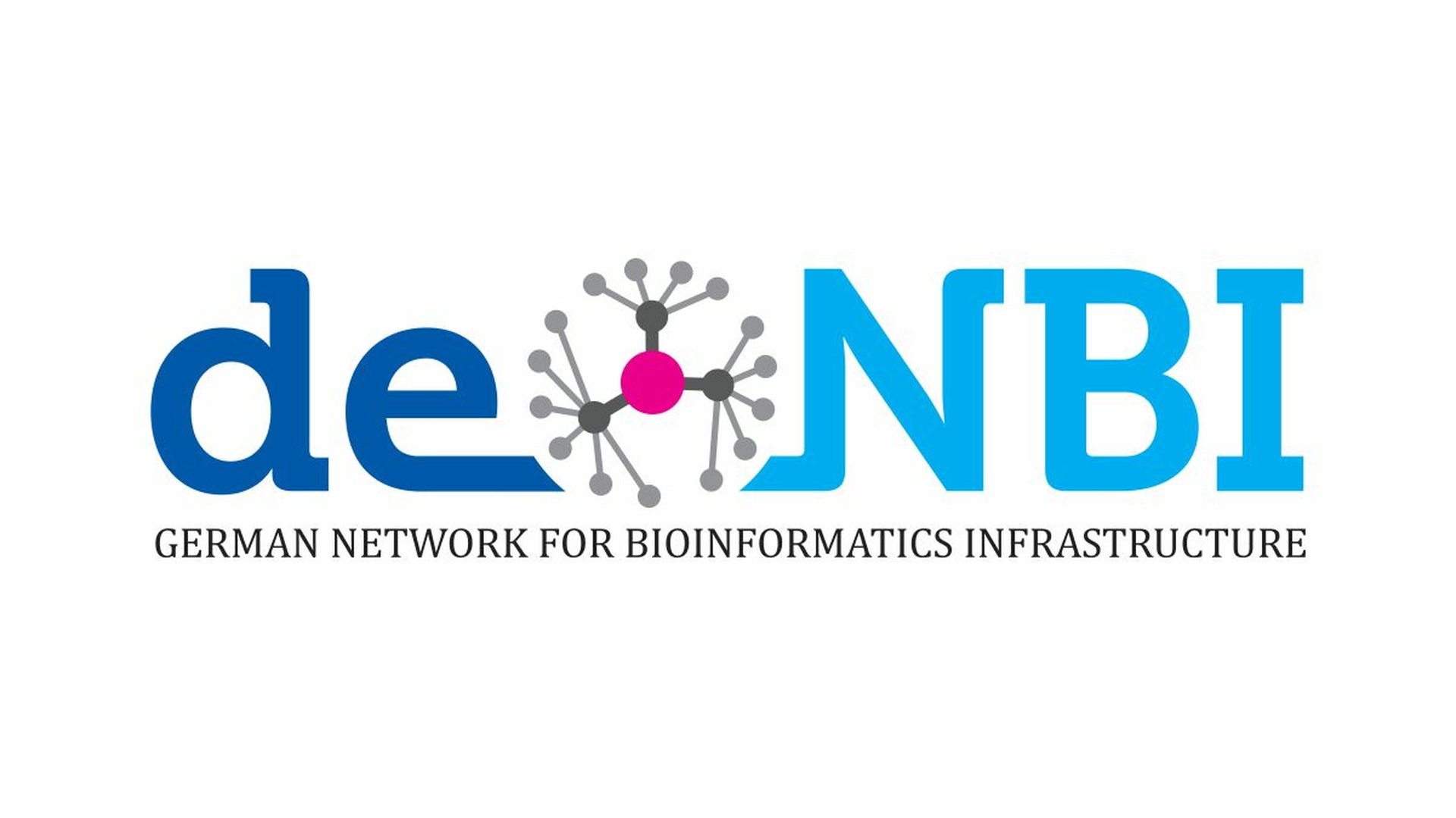
Your input is needed: the German Network for Bioinformatics Infrastructure de.NBI would really appreciate if you could take a couple of minutes to answer five short questions here.
Launch of AG2PI Seed Grant Program
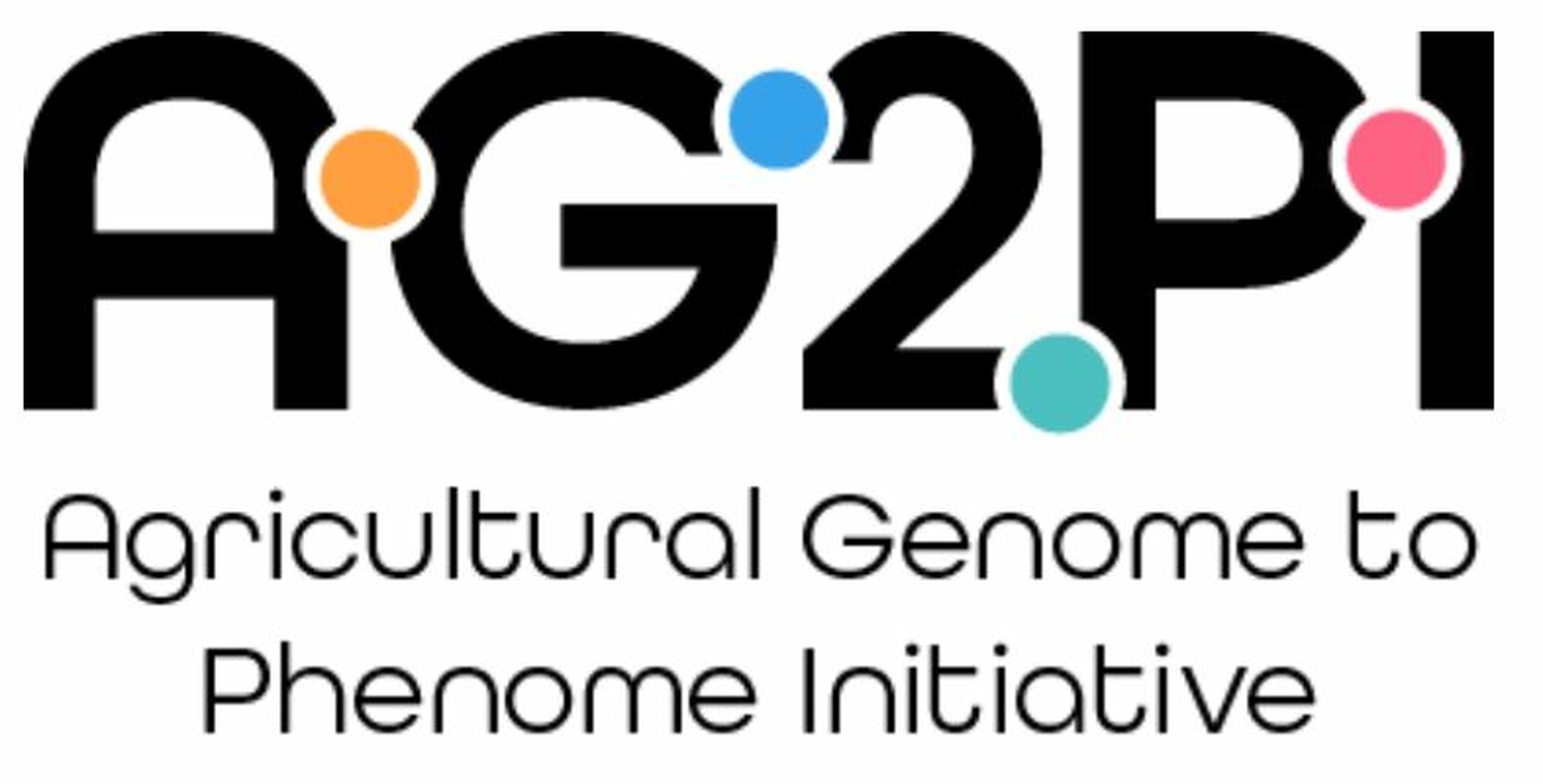
A major goal of the Agricultural Genome to Phenome Initiative (AG2PI) is to bring together agricultural scientists across disciplines to work together in addressing shared challenges in genome-to-phenome. As such, we have launched a seed grant program to foster first steps towards the development of community solutions to research needs and opportunities, as well as gaps in physical infrastructure and data management.
Special Issue: "From Phenotyping to Phenomics—Techniques for Exploring Plant Traits and Diversity"
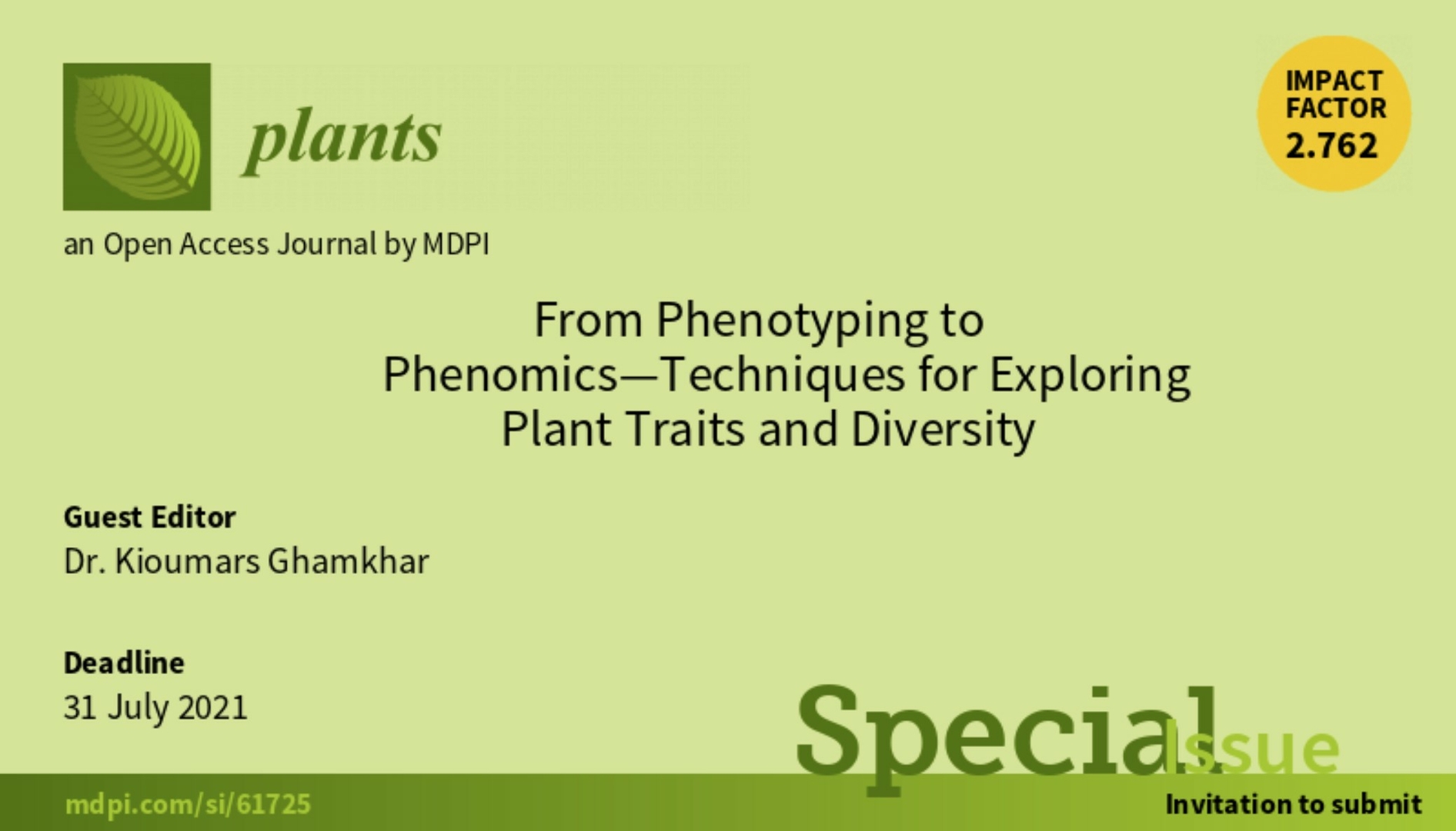
IPPN member AgResearch (New Zealand) kicks-off new Special Issue in "plants". This Special Issue aims to bring together a range of research papers that cover plant phenotyping at large-scale from hundreds of genotypes using simple and repeatable technology to small-scale using high-tech and accurate methods and anything in between.
Belgium: VIB acquires CropDesign site from BASF and launches its first agricultural biotechnology incubator
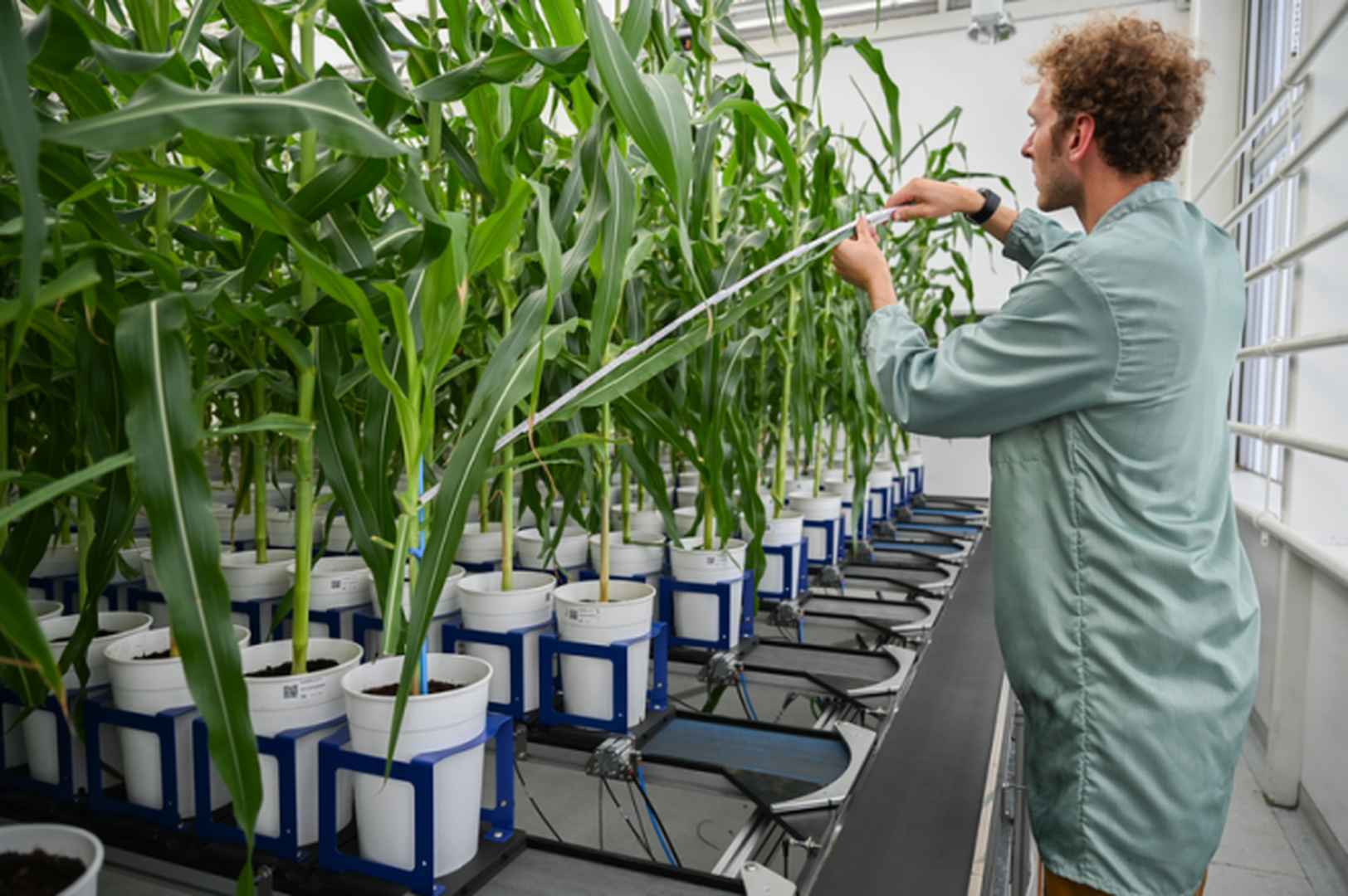
VIB, a leading life sciences institute in Flanders, has signed an agreement with BASF to acquire its CropDesign site in Nevele, Belgium. VIB and CropDesign have had a close scientific relationship for more than 15 years. CropDesign, currently part of BASF’s Agricultural Solutions division, was established in 1998 as a VIB spinoff and has grown into a biotech company specializing in plant phenotyping technology. The divesture includes site infrastructure and intellectual property. All former CropDesign employees found new jobs within or outside BASF.
Israel: Functional Phenotyping of Plant Response to Abiotic Stress
Denmark: Collaborative SUSWHEAT project receives funding from Independent Research Fund Denmark
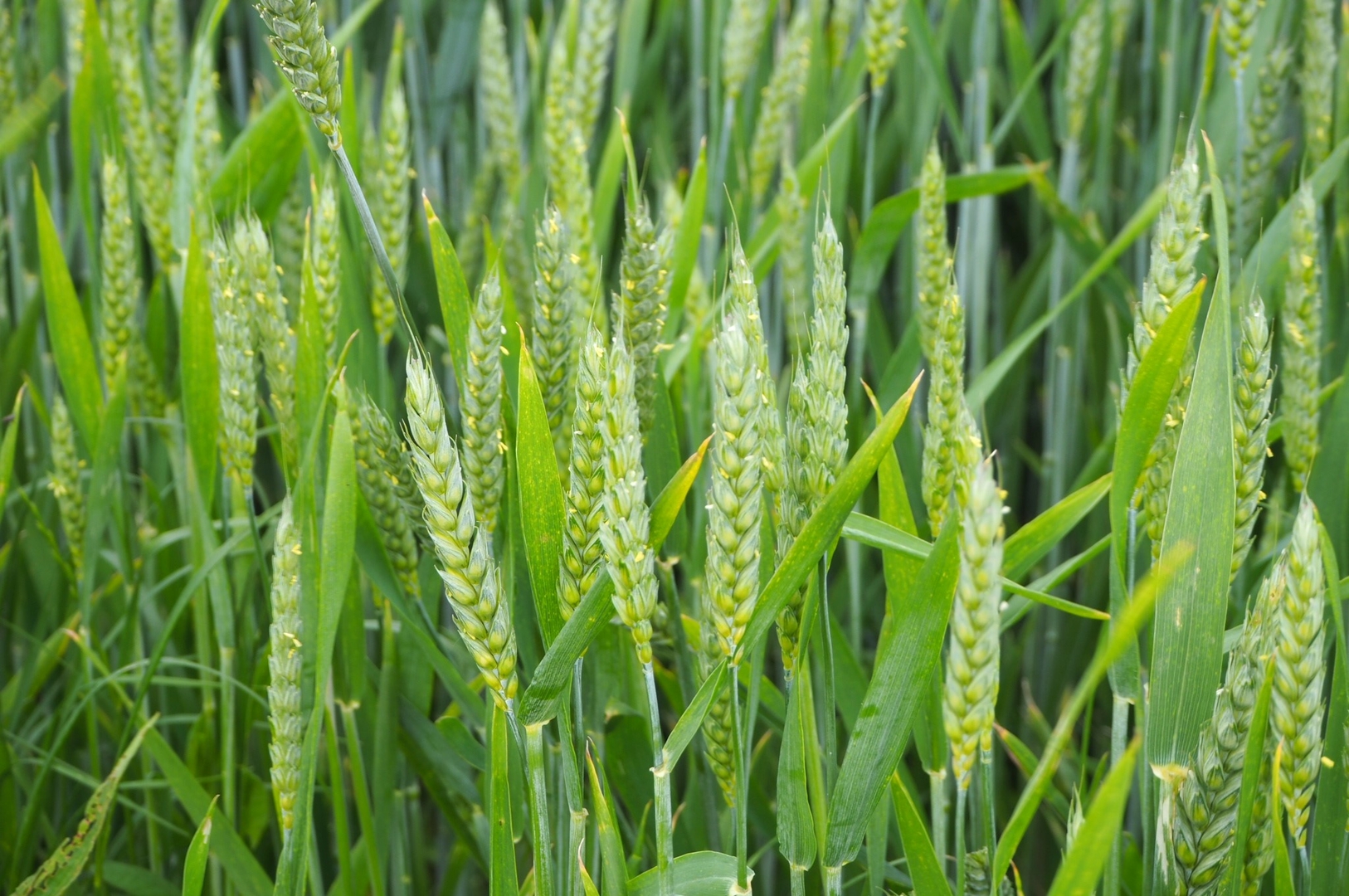
The SUSWHEAT project combines globally leading research expertise on wheat from complementary teams at Copenhagen and Aarhus University, China and the UK, creating a strong partnership to dissect the resilience mechanisms in response to future climate. The collaborative project has recently been granted funding from the Independent Research Fund Denmark.
Italy: First call for access to national phenotyping infrastructures launching soon

In early 2021, Phen-Italy (the Italian Network of Plant Phenotyping Infrastructures) will launch the first call for access to the national plant phenotyping infrastructures. The applicants are requested to submit a project proposal aiming at answering a clear scientific question and/or addressing a technological challenge in the field of plant phenotyping. The project proposals will be evaluated by a Commission of independent experts. More information will be circulated in January 2021 on www.phen-Italy.it.
Netherlands: Two new gantries installed in NPEC greenhouse
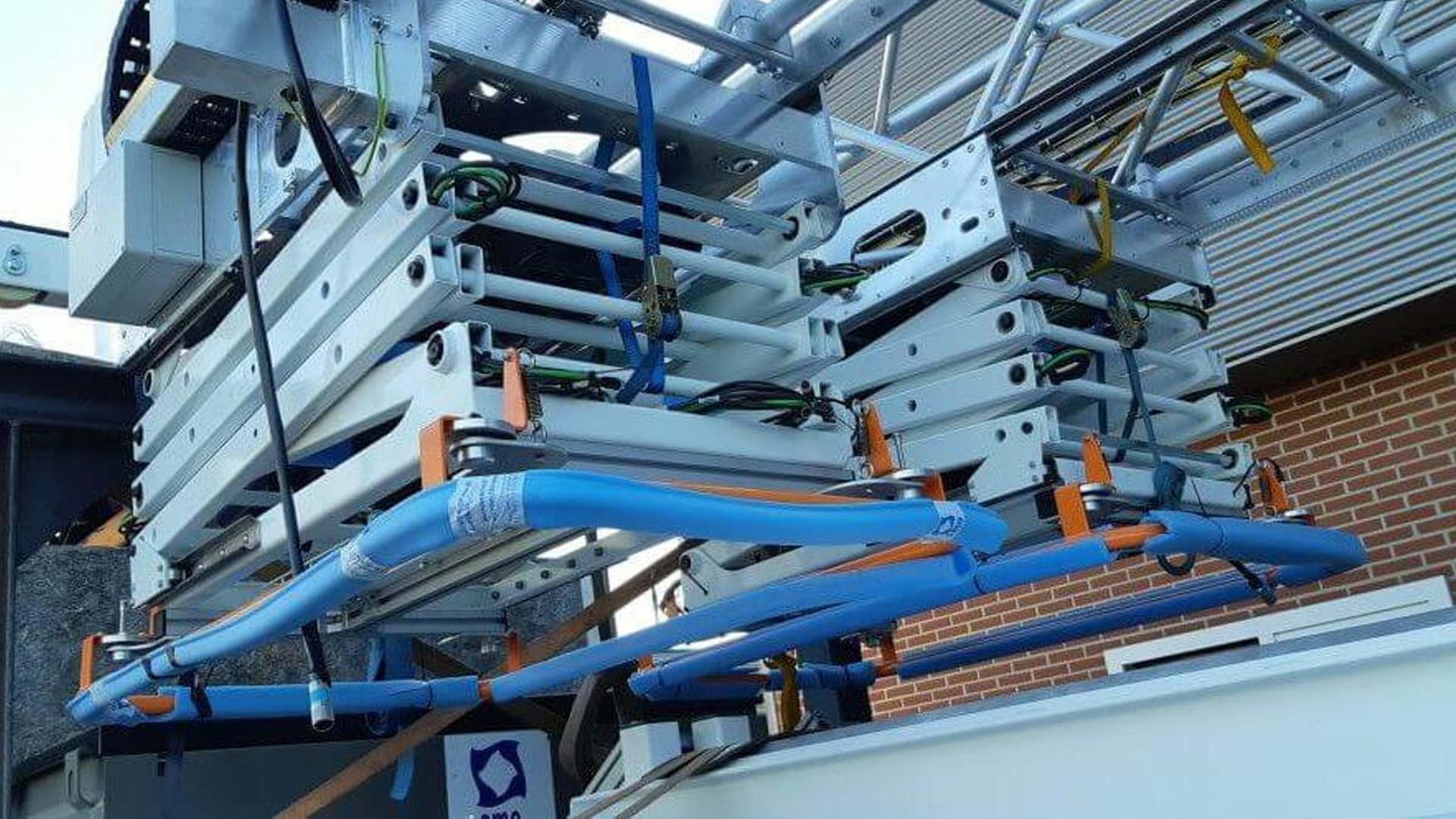
The gantries will allow multispectral imaging, 3D scanning and high-resolution thermal imaging of plants as well as a combination of multispectral- and thermal imaging with gravimetric phenotyping to study plant water household.
Norway: Application submitted for the Norwegian Plant Phenotyping Platform (PheNo)
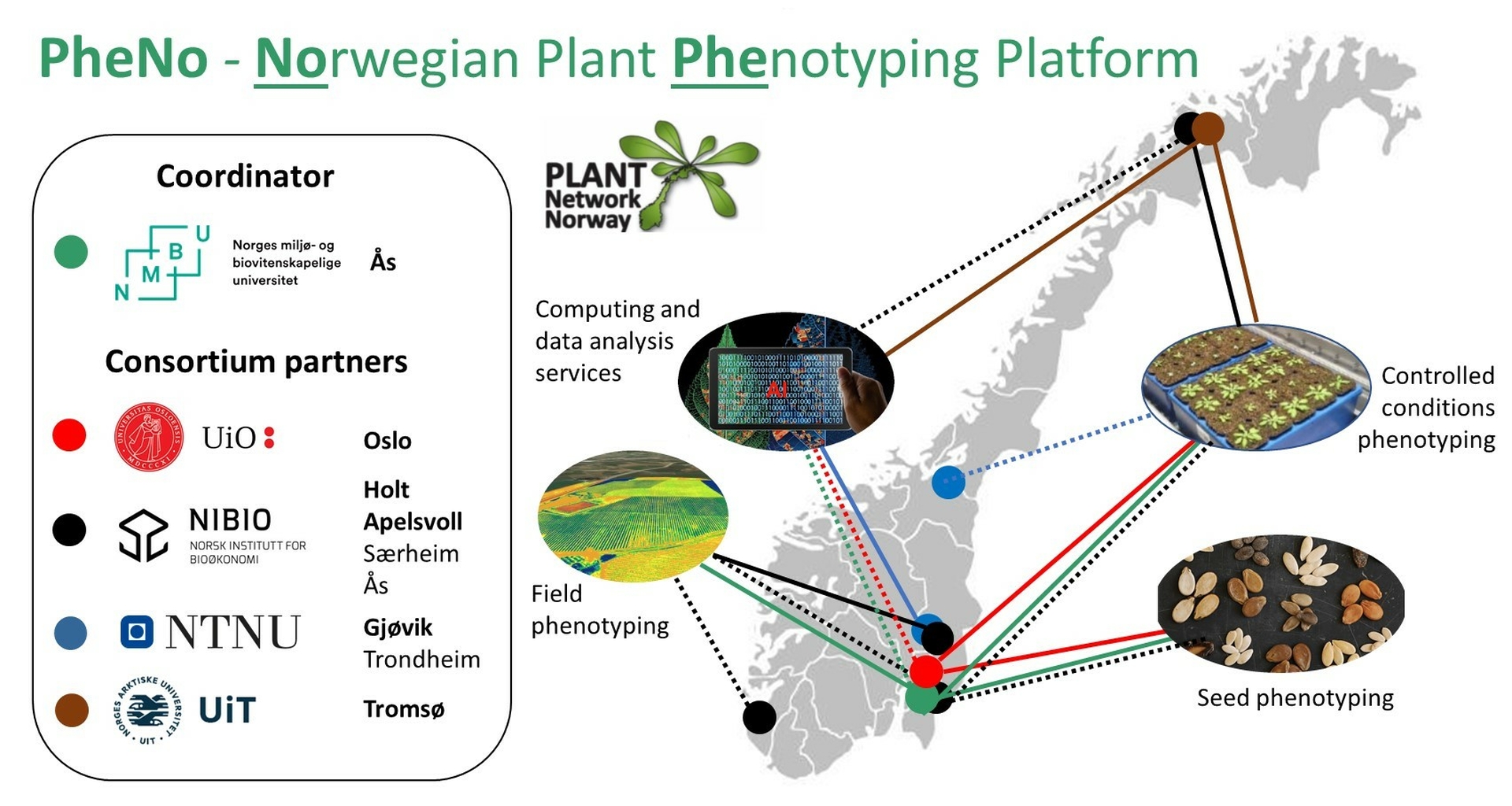
The plant research community in Norway has joined forces and submitted a national infrastructure proposal to establish the Norwegian Plant Phenotyping Platform (PheNo).
Spain: New user-friendly application for smallholder farmers for detection of plant diseases and nutritional disorders
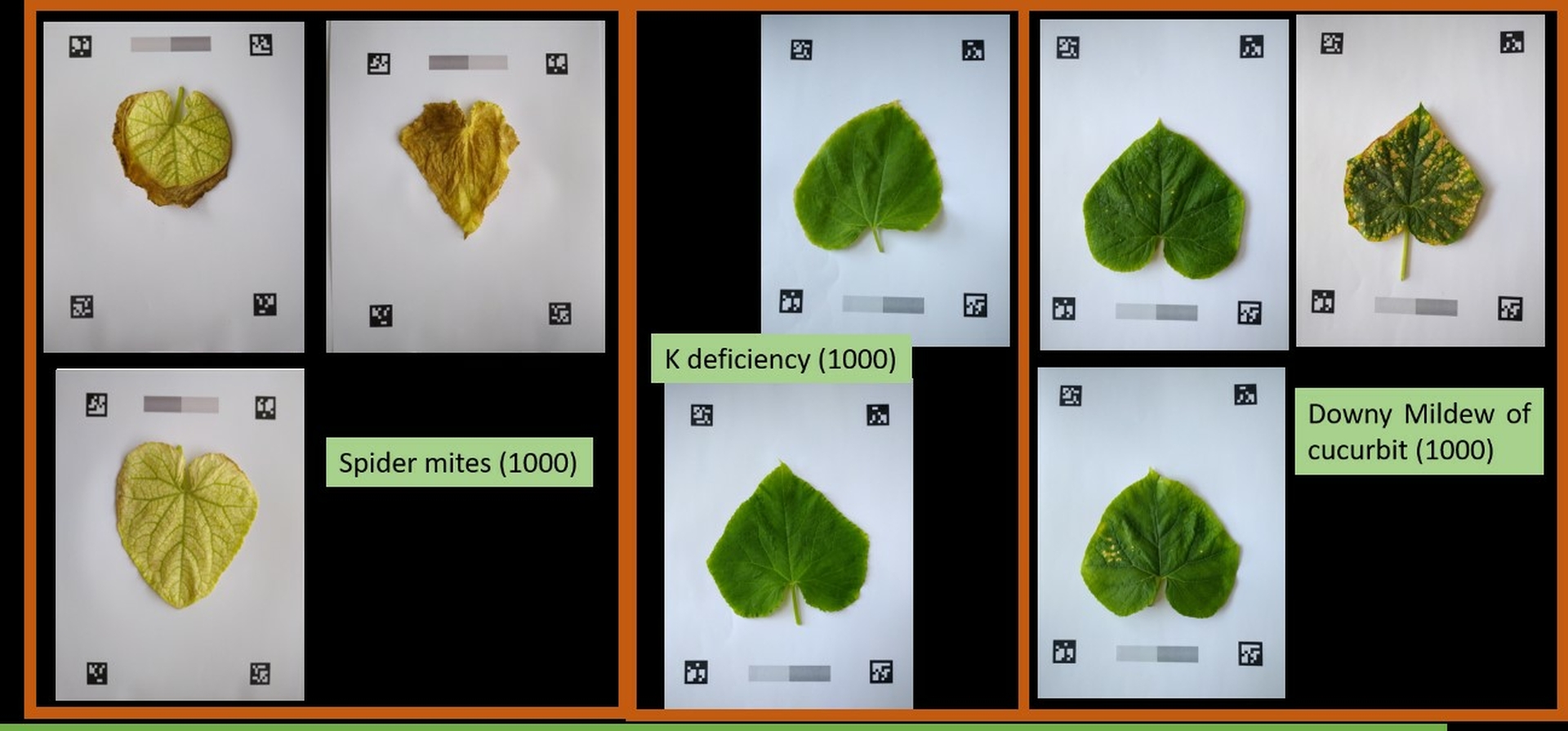
The University of Barcelona in partnership with the International Center for Biosaline Agriculture (ICBA) are developing a smartphone-based, user-friendly application for smallholder farmers from the MENA region (Morocco, Egypt, Tunisia) and United Arab Emirates (UAE) aiming to identify major biotic and abiotic stresses in key relevant herbaceous crops.
Landmark study: First genomic atlas for global wheat improvement

In a landmark discovery for global wheat production, an international team has sequenced the genomes for 15 wheat varieties representing breeding programmes from around the world.
Press release (PDF)
Ireland: New PlantScreen System at University College Dublin
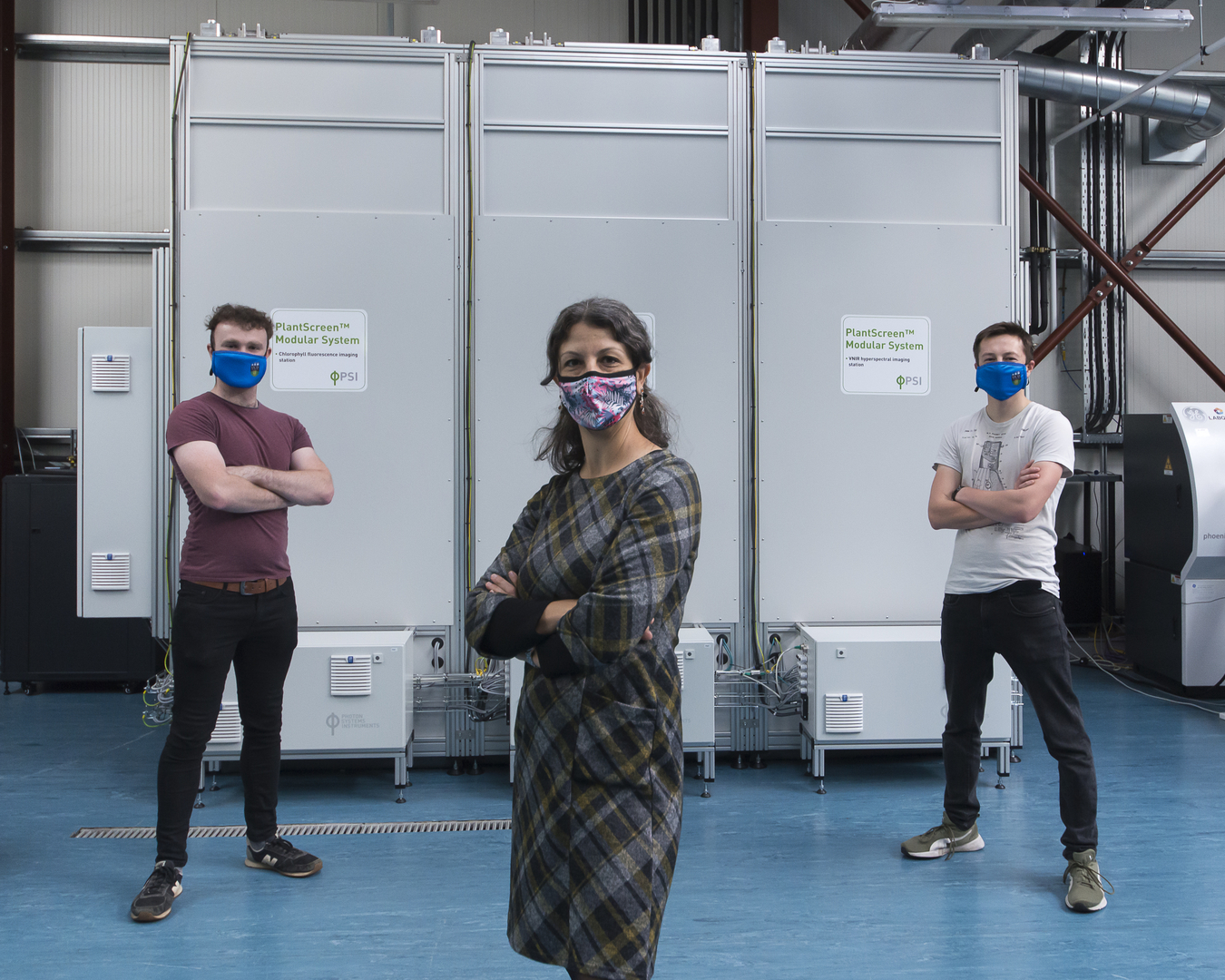
University College Dublin (UCD-Ireland) has acquired a PlantScreen system from Photon System Instruments (PSI) with the financial support of Science Foundation Ireland Future Research Leaders Programme (SFI-FRL) awarded to Dr. Sónia Negrão.
Australia: International collaboration targets plant-based vaccine development
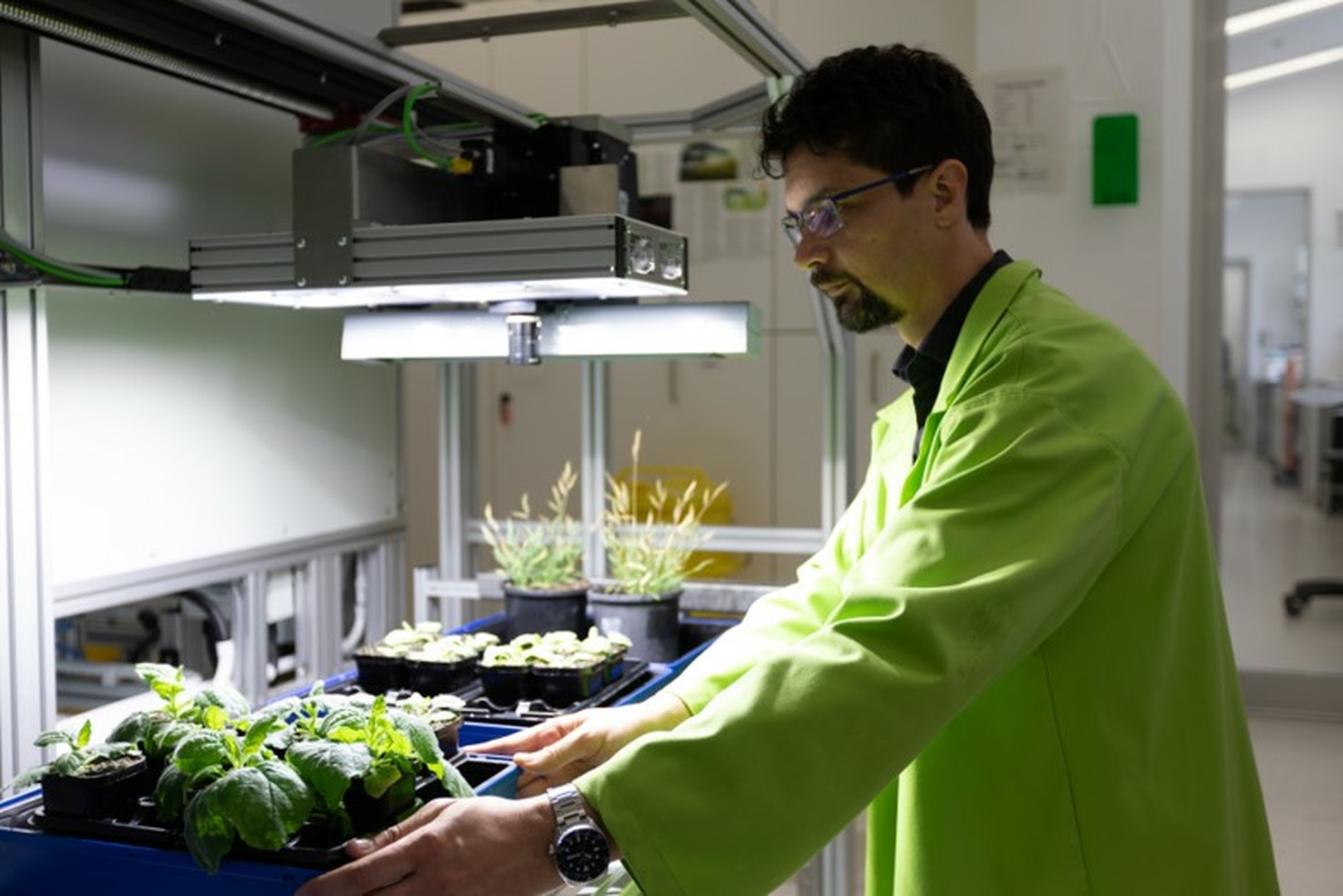
Plant phenomics is helping optimise biotechnology for plant-based vaccine development in a new research collaboration between Australia’s Australian National University (ANU) and Canadian biopharmaceutical company, Medicago R&D Inc.
Press release (PDF)
Your participation needed: Global Plant Phenotyping Survey 2020/21
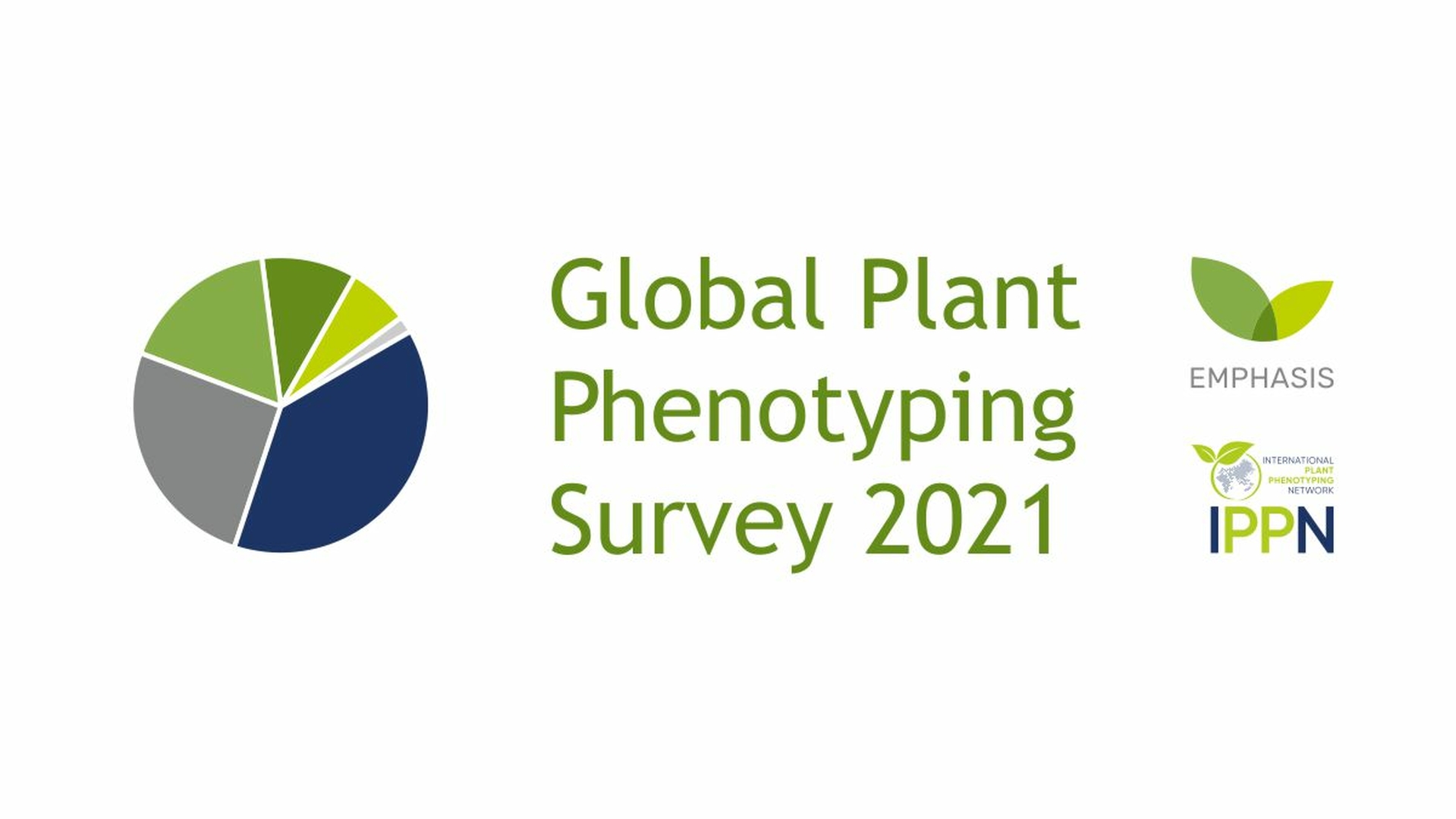
For the past six years, IPPN and EMPHASIS have carried out their bi-annual "Plant Phenotyping Surveys". They cover basic and advanced questions related to plant phenotyping for the purpose of assessing the status of global plant phenotyping and emerging fields. The surveys address participants from all geographic regions and in all professional disciplines in any way related to plant phenotyping.
International Bioeconomy Forum (IBF) launches website
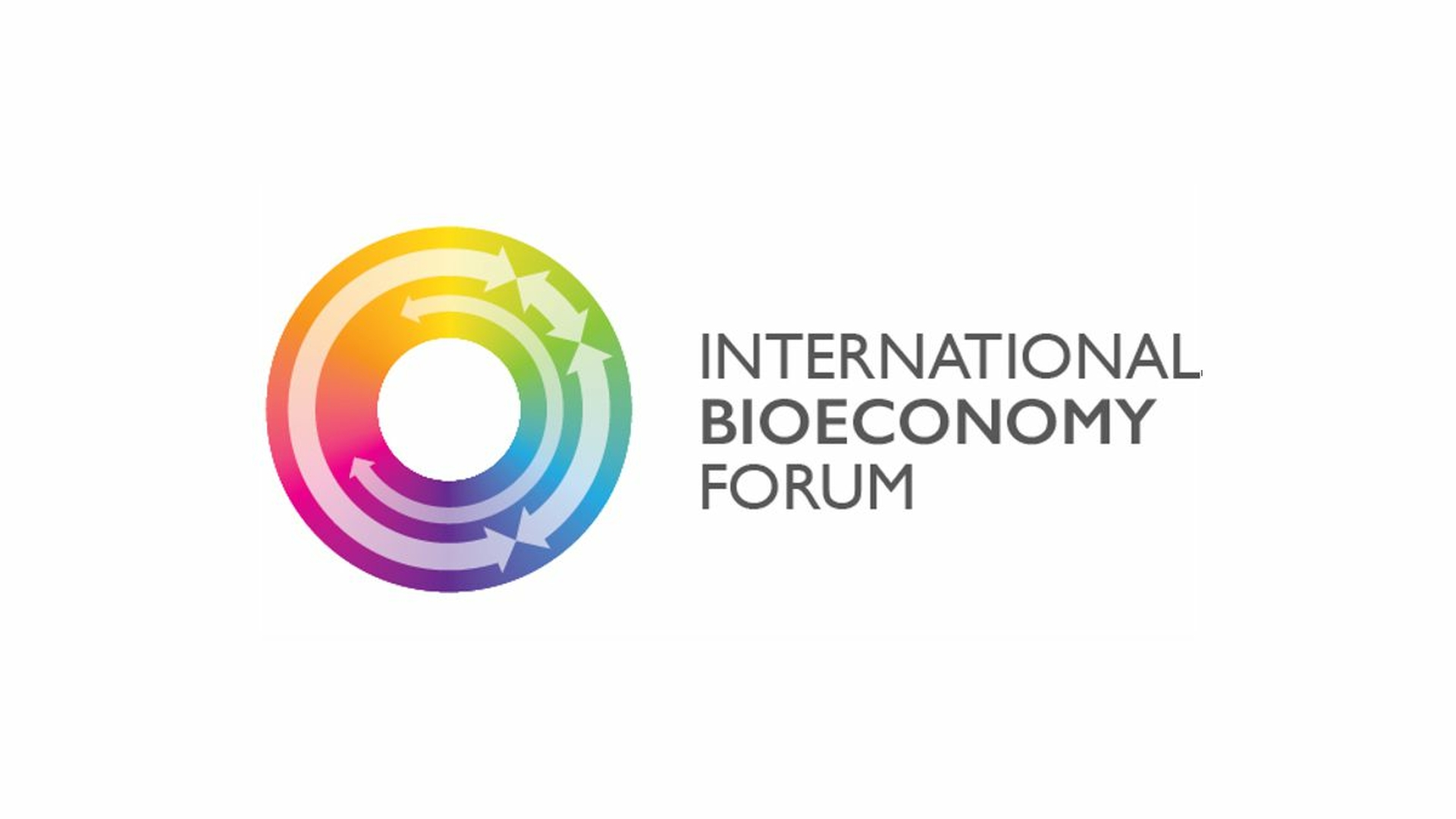
The new website of the International Bioeconomy Forum (IBF) is now online. The IBF was launched in 2016 by the European Commission and provides a platform for international communication and cooperation regarding the development of a sustainable bioeconomy. Members are the European Commission, Argentina, Canada, China, India, New Zealand, South Africa and USA.
Series of animated movies
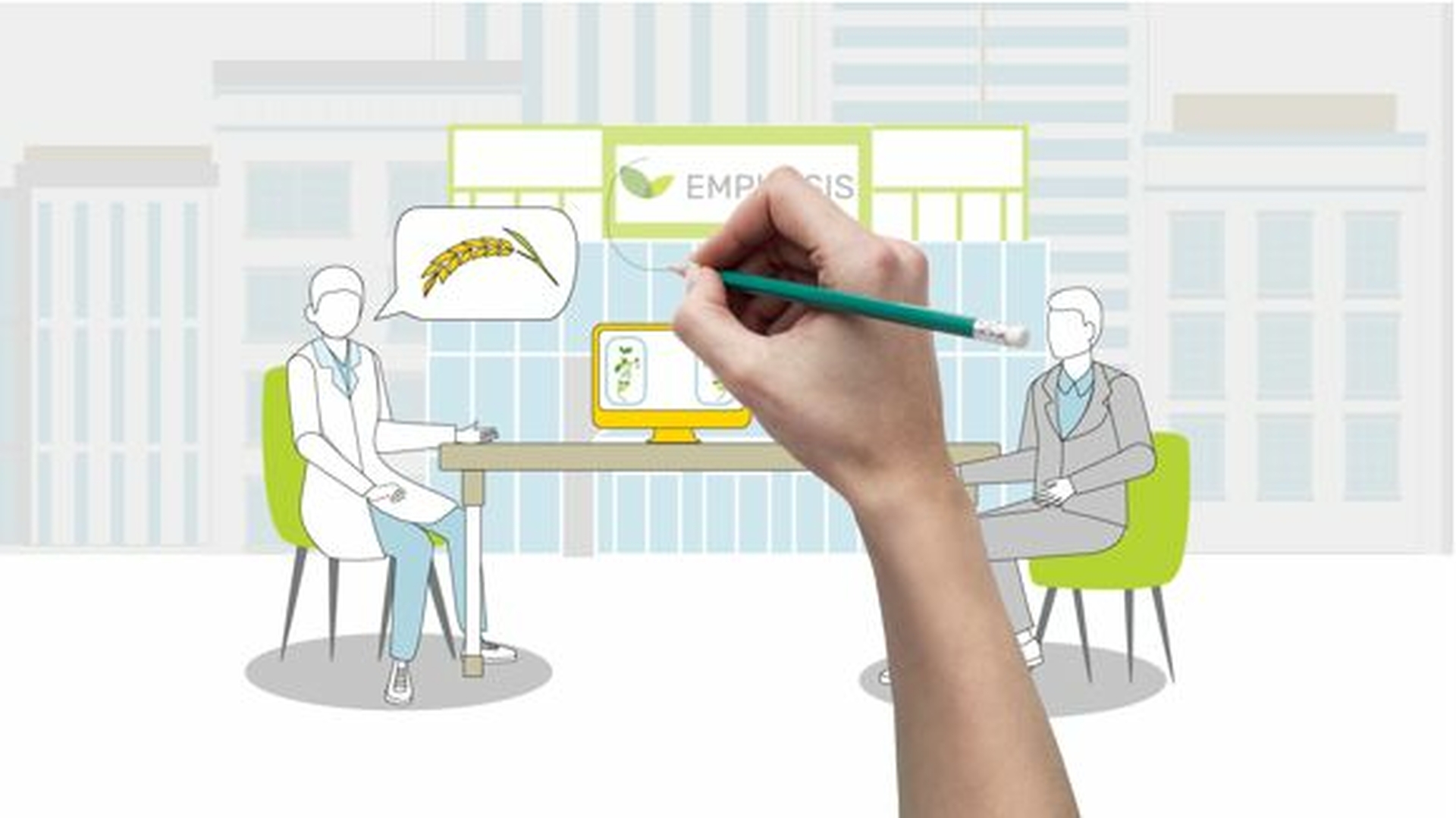
We are excited to present the EMPHASIS Scribble Series: three short animated videos produced in scribble style illustrate the basic concepts of research infrastructures, why we do plant phenotyping and what EMPHASIS is all about.
First services for researchers as EMPHASIS moves into implementation phase
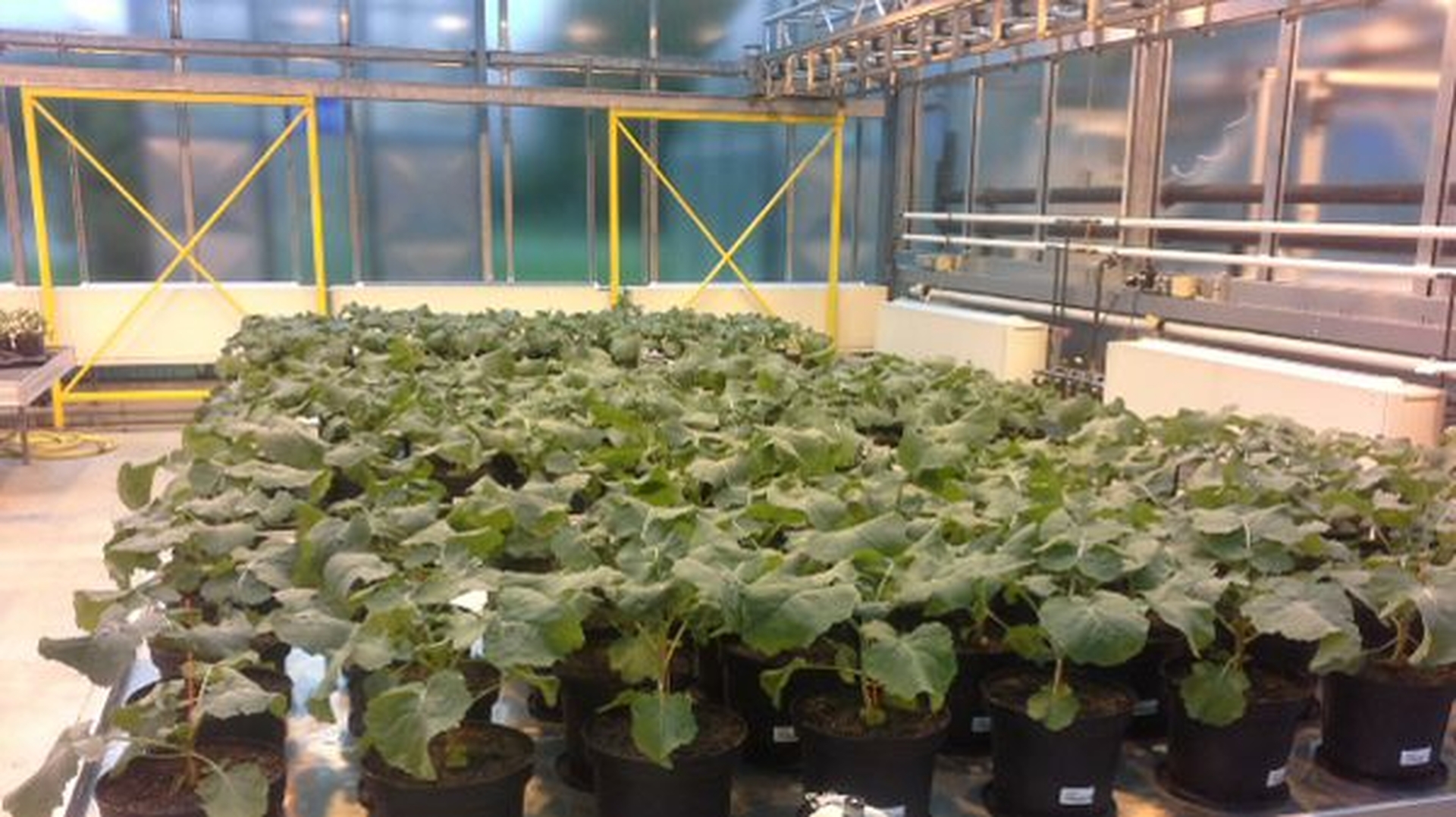
Earlier this year, EMPHASIS has reached an important milestone: the establishment of the Interim General Assembly (IGA), a board of ten countries that have formally declared their intention of moving EMPHASIS towards operation.
Phenomics Webinars User Survey

We are constantly striving to improve our webinar series and would very much appreciate your feedback.
Phenome Emphasis Prolonged Until 2025
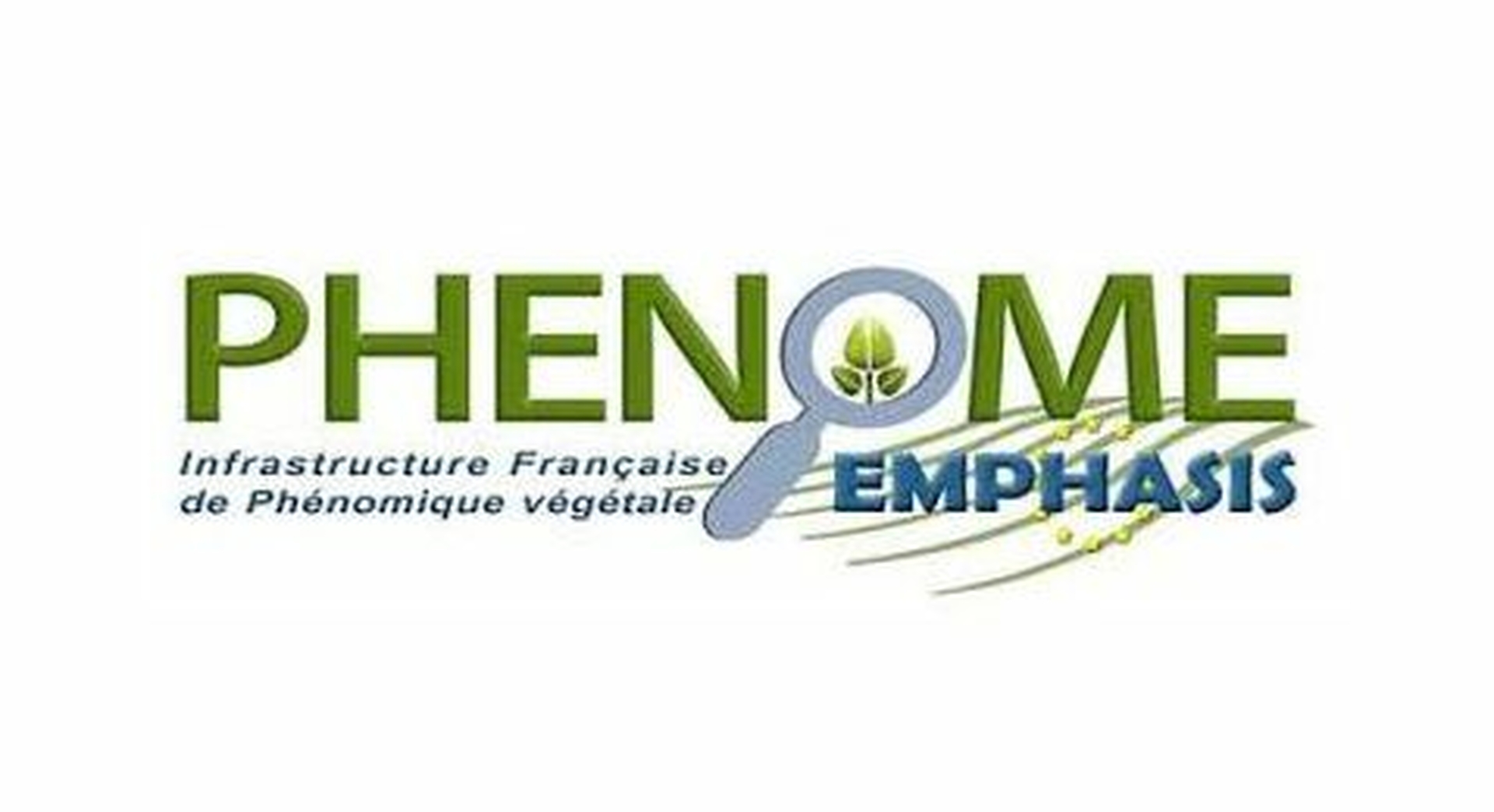
The French infrastructure Phenome Emphasis has been officially prolonged until 2025, with an extra funding of EUR 5 million.
Nordic Network NordPlant Prolonged for Three Years
Computer Vision Problems in Plant Phenotyping (CVPPP) 2020
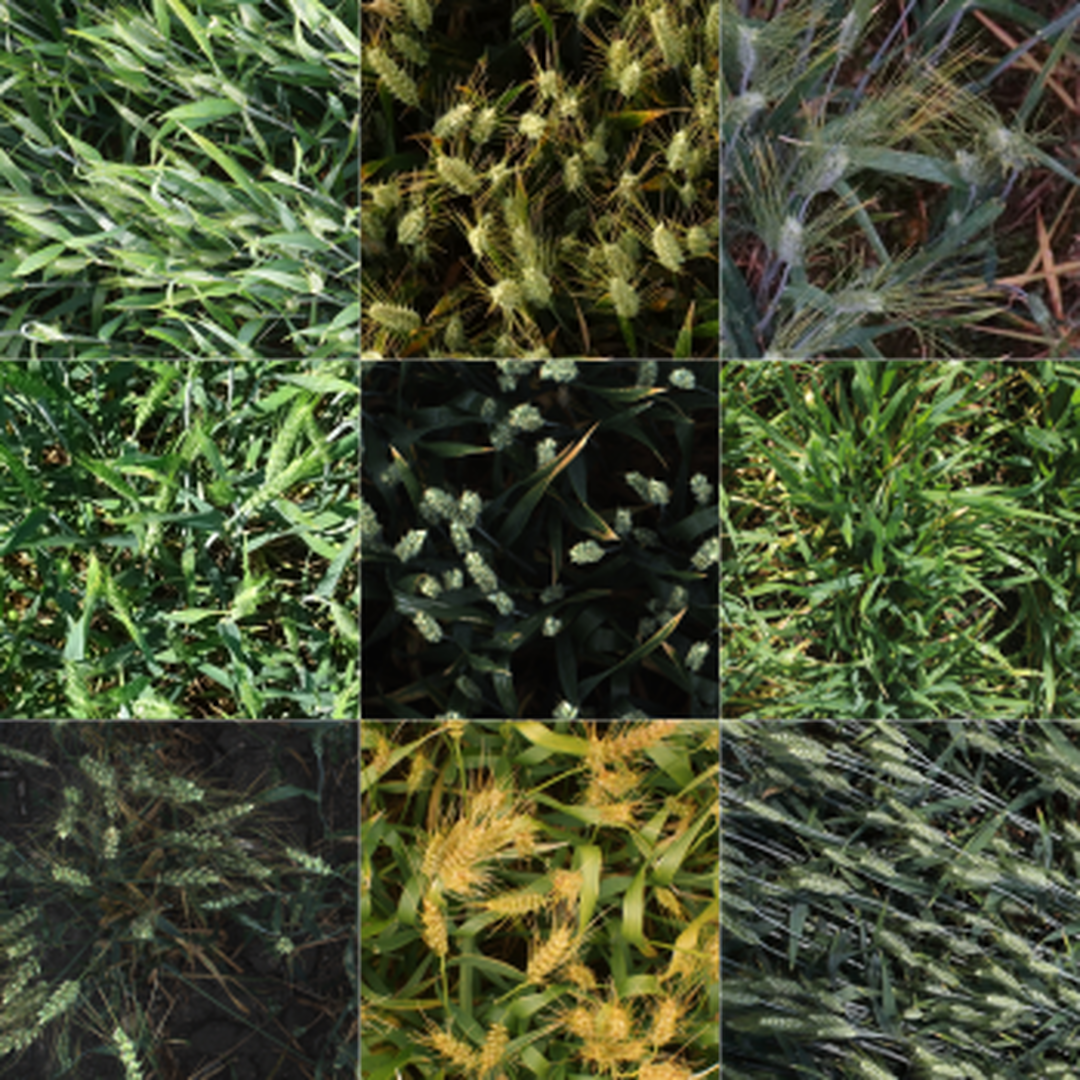
This year’s CVPPP was held alongside the European Conference on Computer Vision (ECCV) on Friday 28 August online.
Presentation material of the Nordic Plant Phenotyping field day available online
The Nordic Plant Phenotyping field day that was held here at NMBU on 17 June. This is an annual get-together for plant breeders and scientists in the Nordic countries to get in touch with field phenotyping activities and learn about the latest development.
Industry News: Agronomix Software & Progeny Drone launch strategic alliance on UAS data integration to accelerate plant breeding and agronomic research
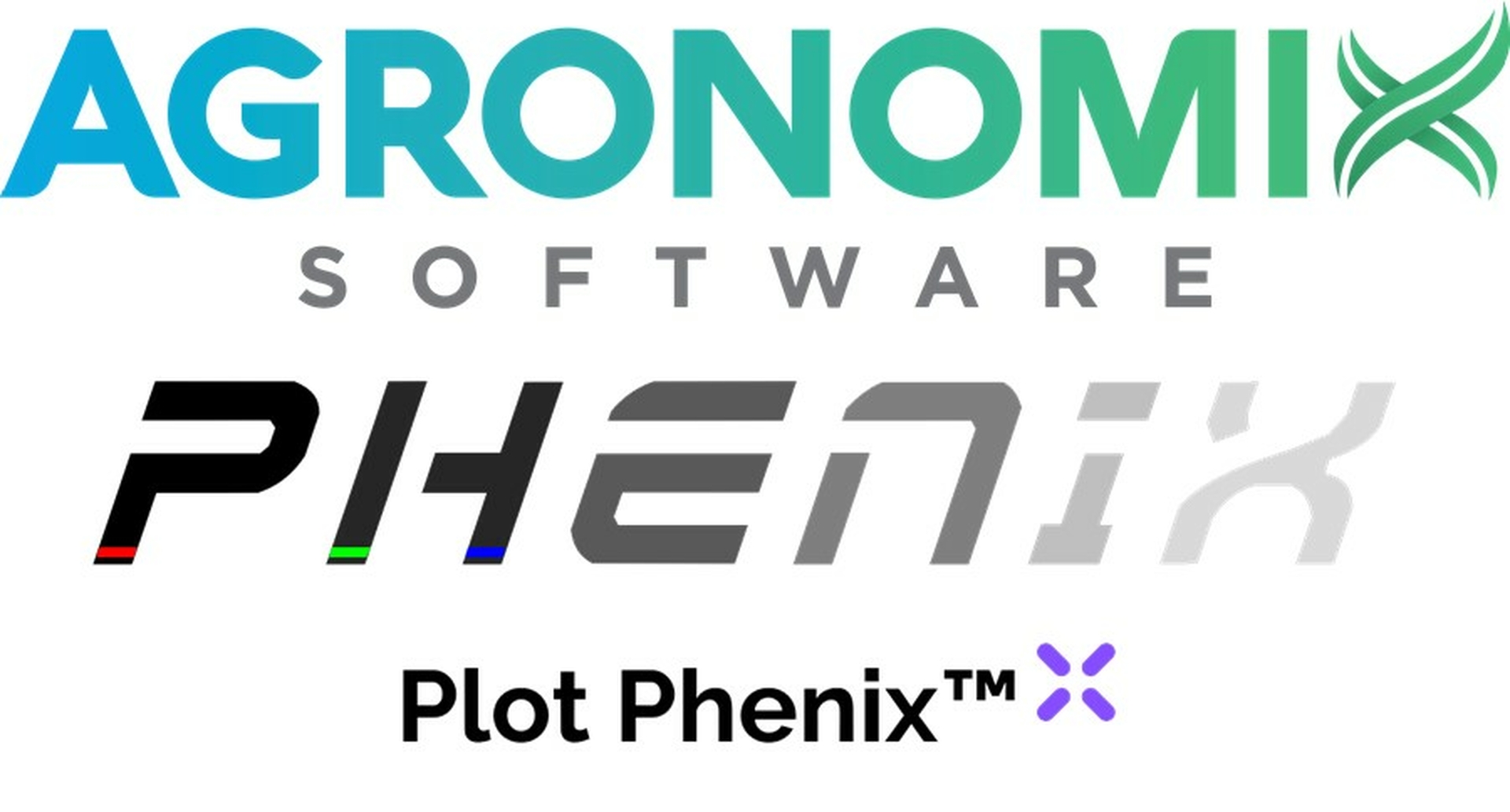
Leading Agricultural Research Software company teams with fast-growing startup on integrating outputs from its unique image stitching and data extraction application for images from Unoccupied Aerial Systems (UAS, also referred to as UAVs).
Interdrought 2020 congress proceedings now online
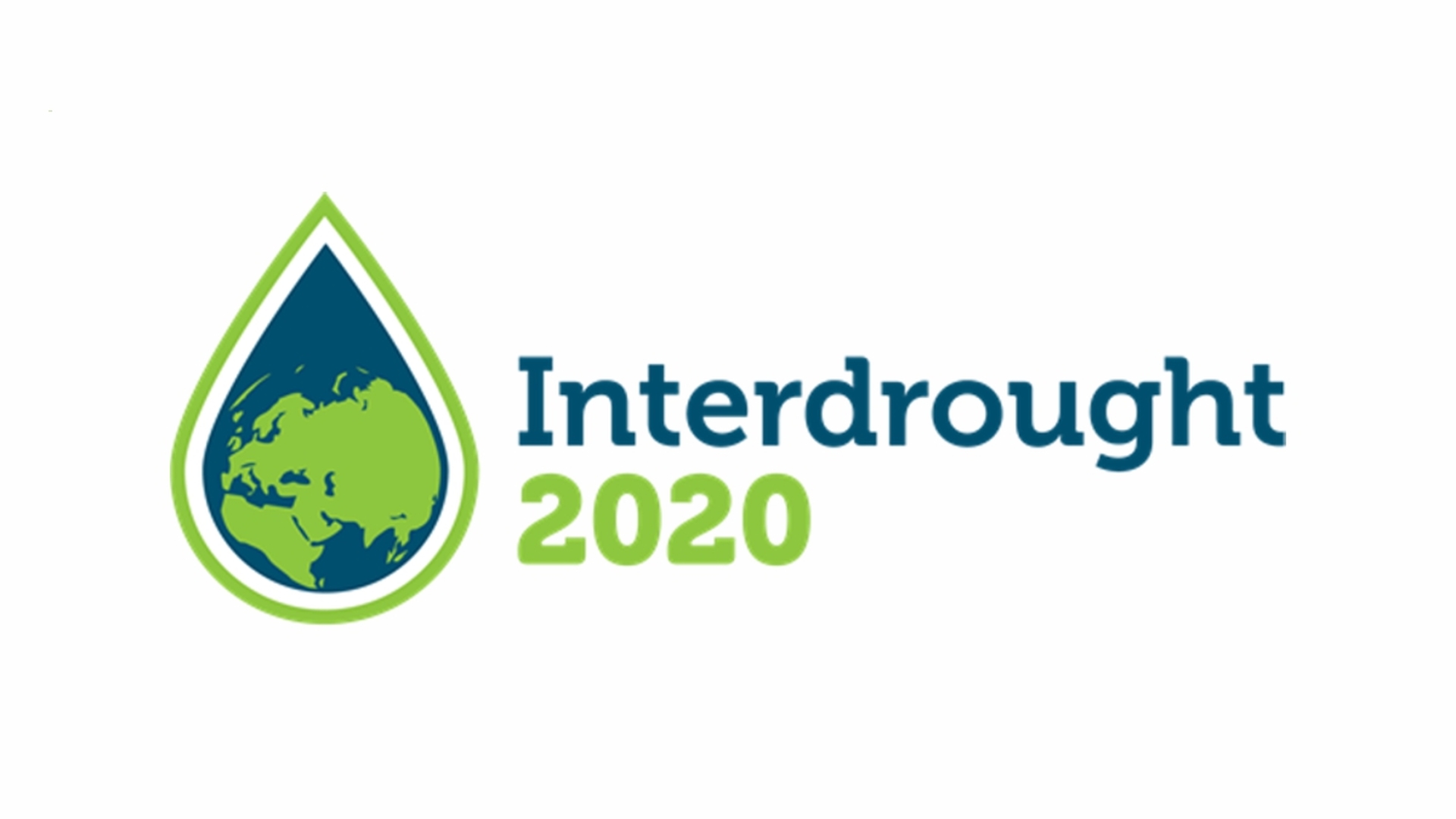
Interdrought 2020, organized by CIMMYT and the University of Queensland, was scheduled to take place in Mexico City in March 2020. As it was not possible to proceed with face-to-face meetings due to the travel restrictions associated with the COVID-19 pandemic, the organizing committee delivered the scientific program online.
Sixth and final call for application for transnational access to European plant phenotyping facilities
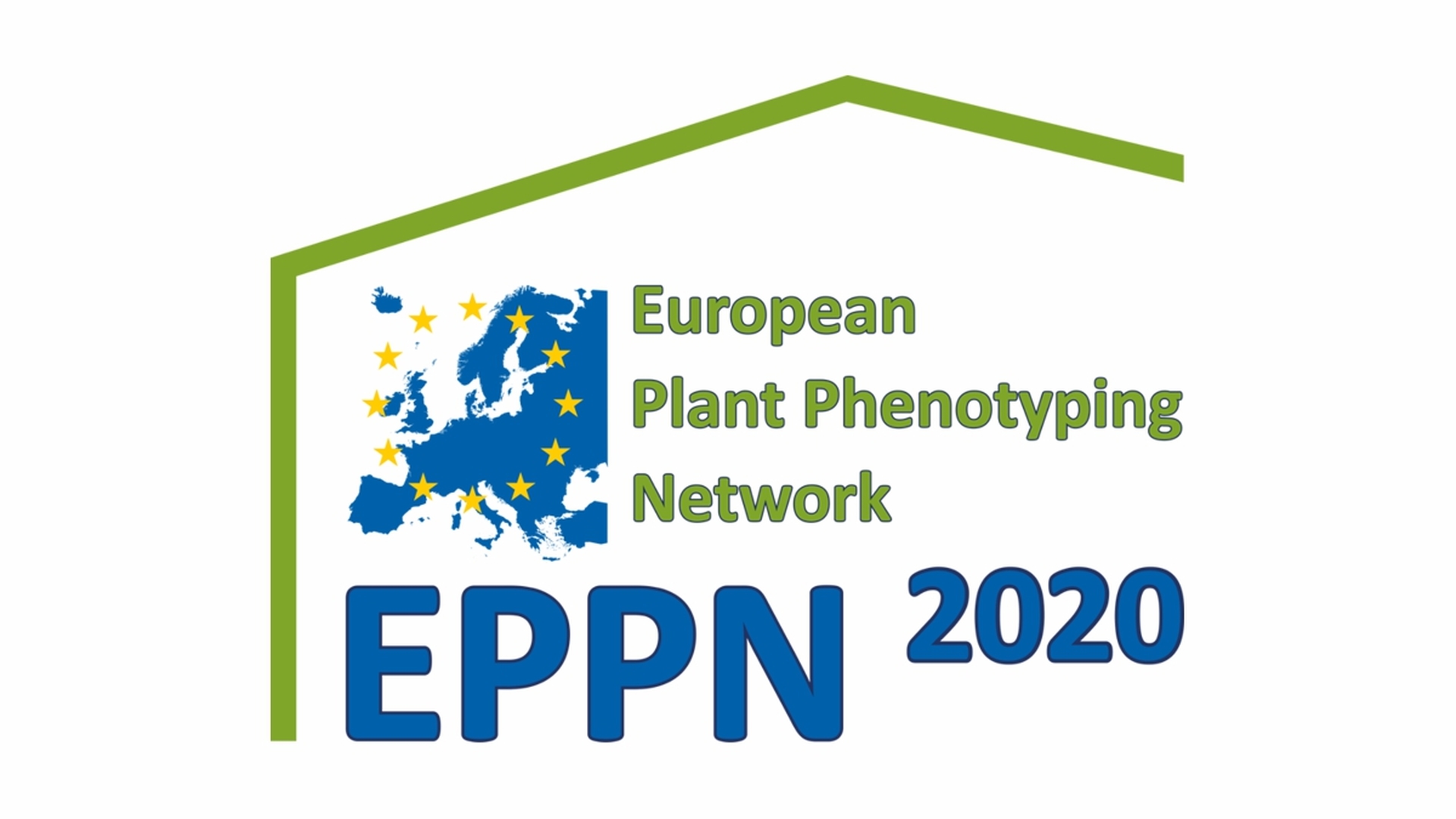
EPPN2020 has just launched its sixth call for application for transnational access, open to European groups but also open (to a limited extent) to groups originating from emerging countries or international research centers. The call closes on 26th of October 2020.
Launch of Phenomics Webinars
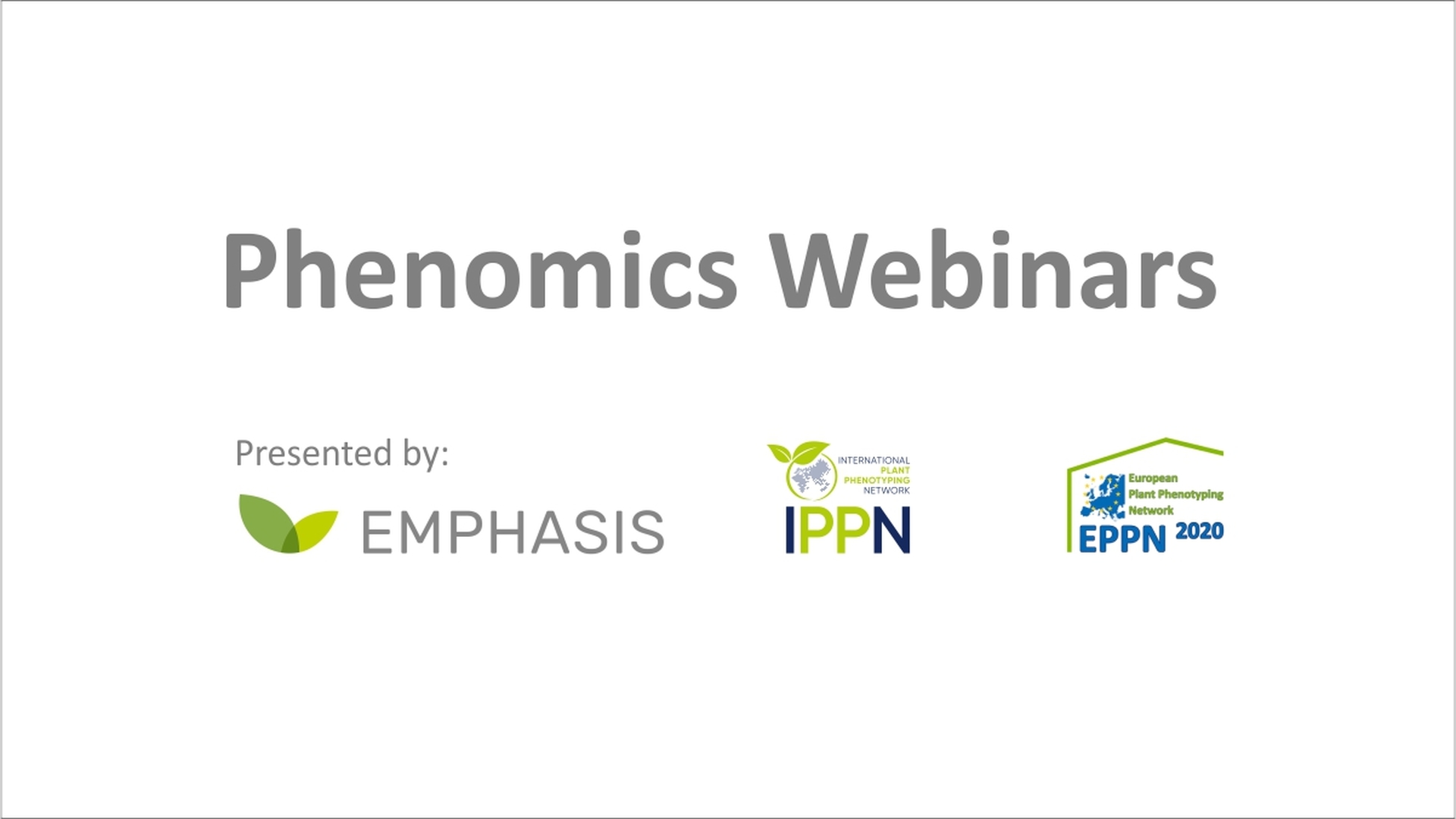
To compensate for the cancellation of many scientific conferences and opportunities to discuss latest developments in the field, the plant phenotyping initiatives IPPN, EPPN2020 and EMPHASIS are launching a webinar series on plant phenotyping. We are looking for contributions from researchers from all phenotyping-related fields.
The EMPHASIS Photo Competition
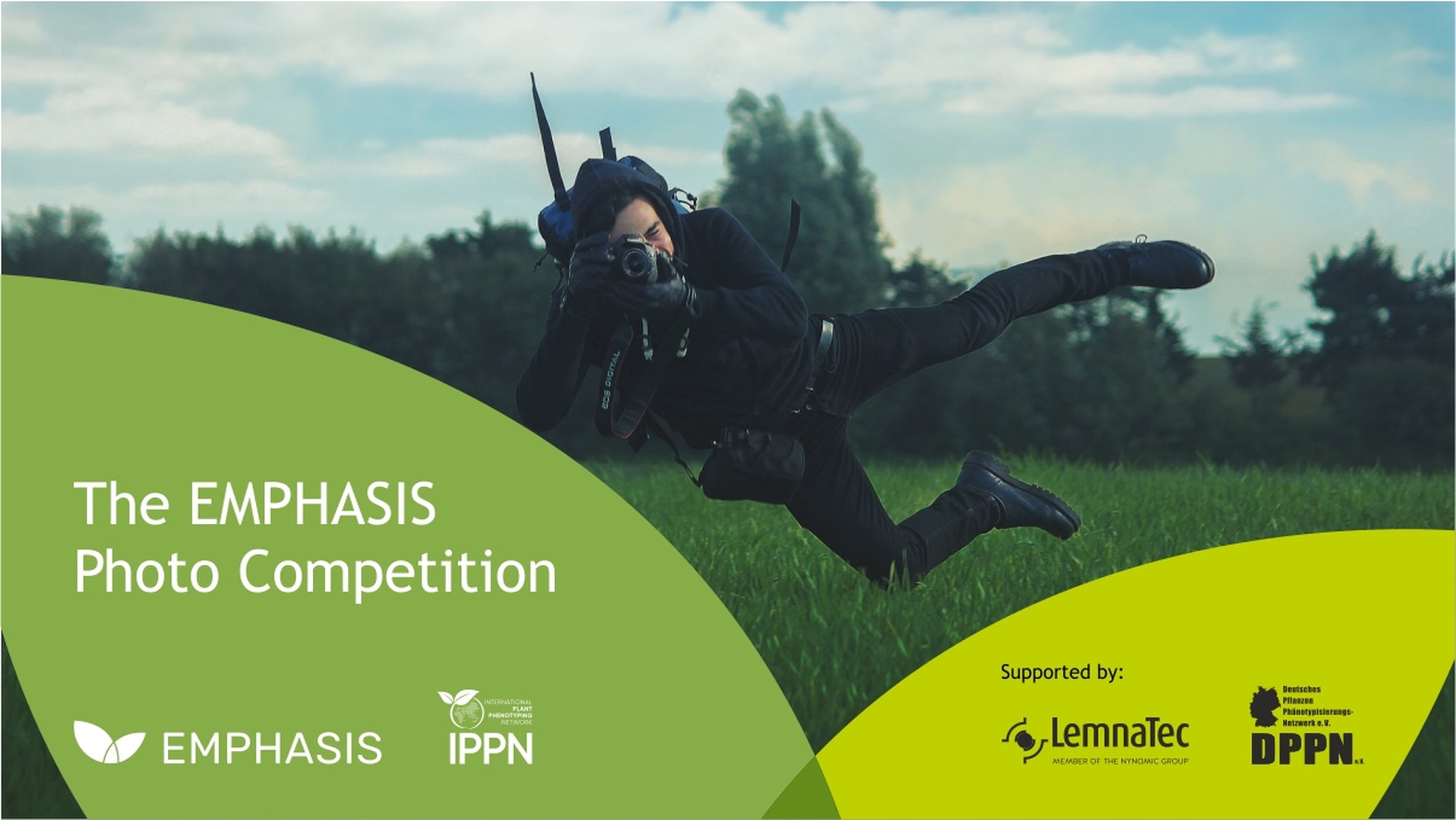
It’s competition time: EMPHASIS is launching a photo competition in plant phenotyping in collaboration with IPPN and sponsored by LemnaTech and DPPN. Send us your best plant phenotyping photos and be in for a chance of winning a high-end camera!
Special issue on Statistics, Bioinformatics, and Machine Learning Methods in Phenomics

Plant Phenomics is pleased to announce a special issue on Statistics, Bioinformatics, and Machine Learning Methods in Phenomics.
Submission Deadline: April 1st, 2020
Call for papers: "Plant Phenomics And Precision Agriculture"

PLOS ONE is calling for papers on plant phenomics and precision agriculture research. The deadline for submission is 5 June 2020.

